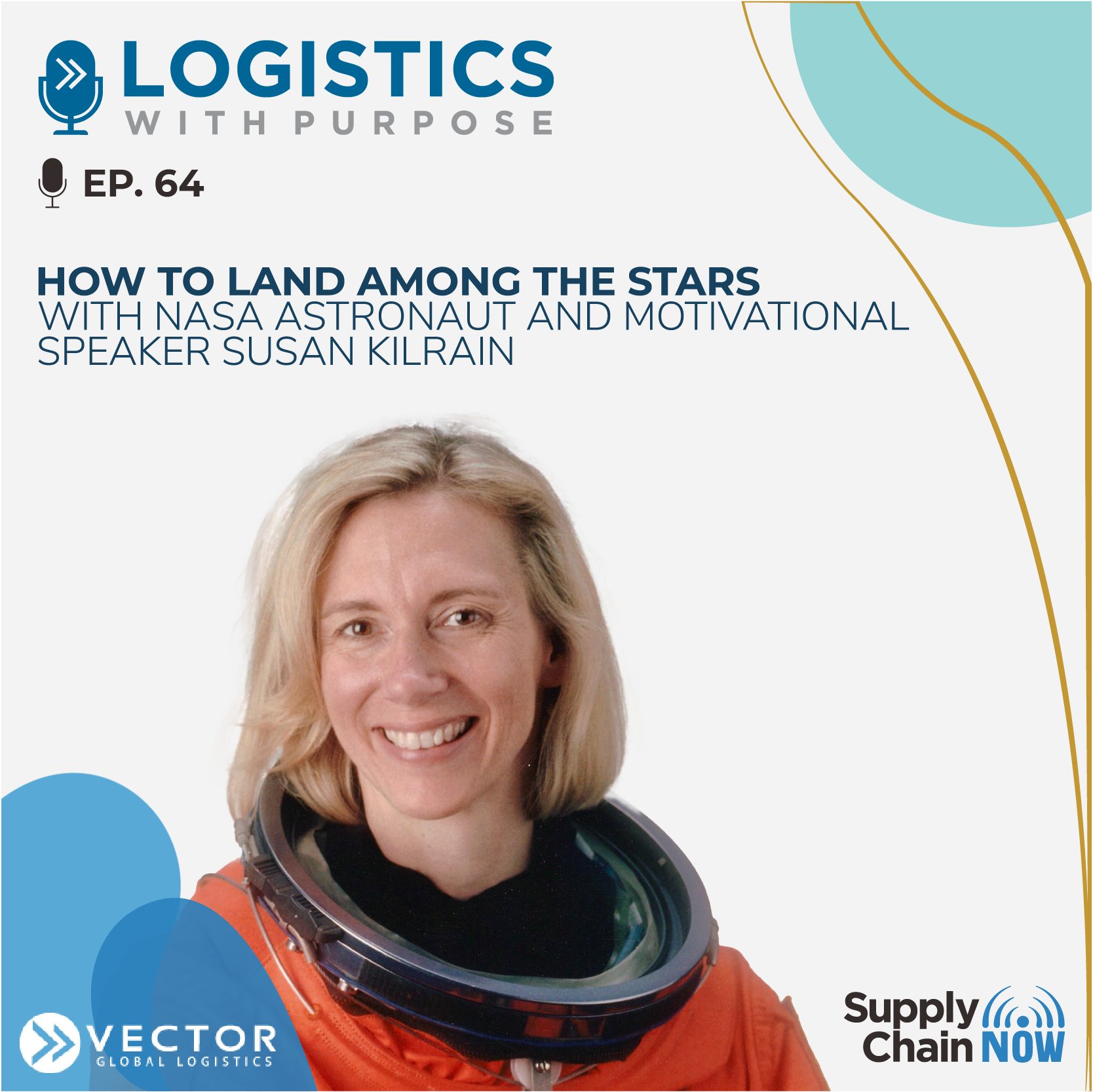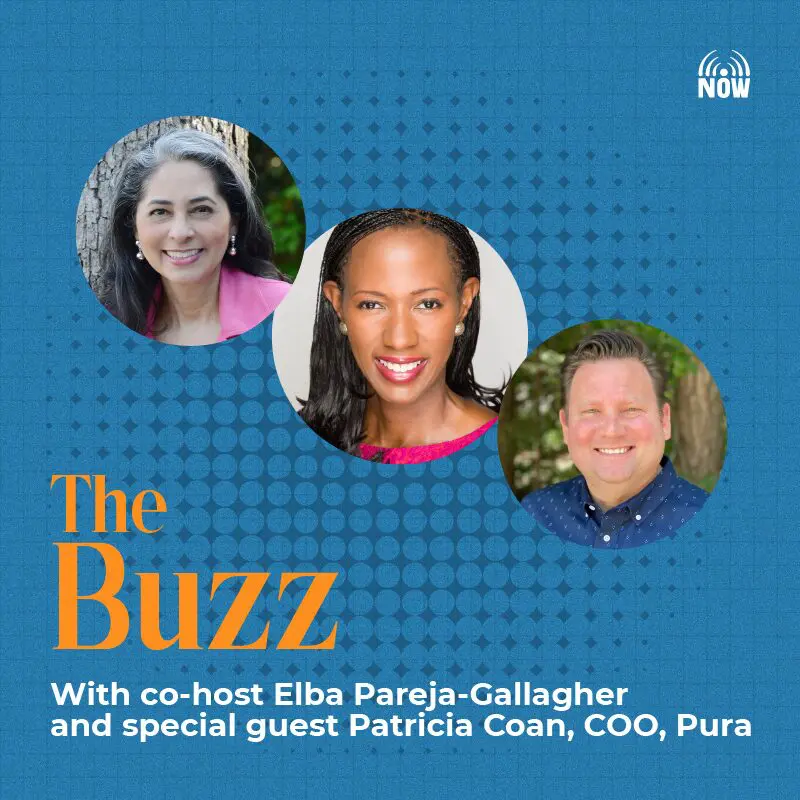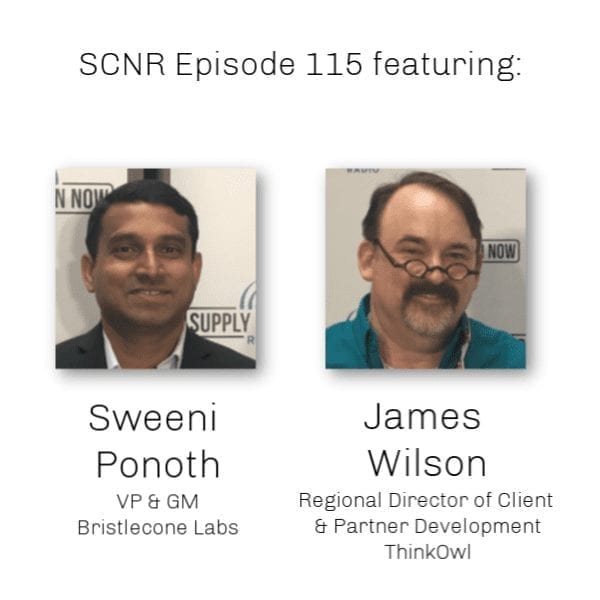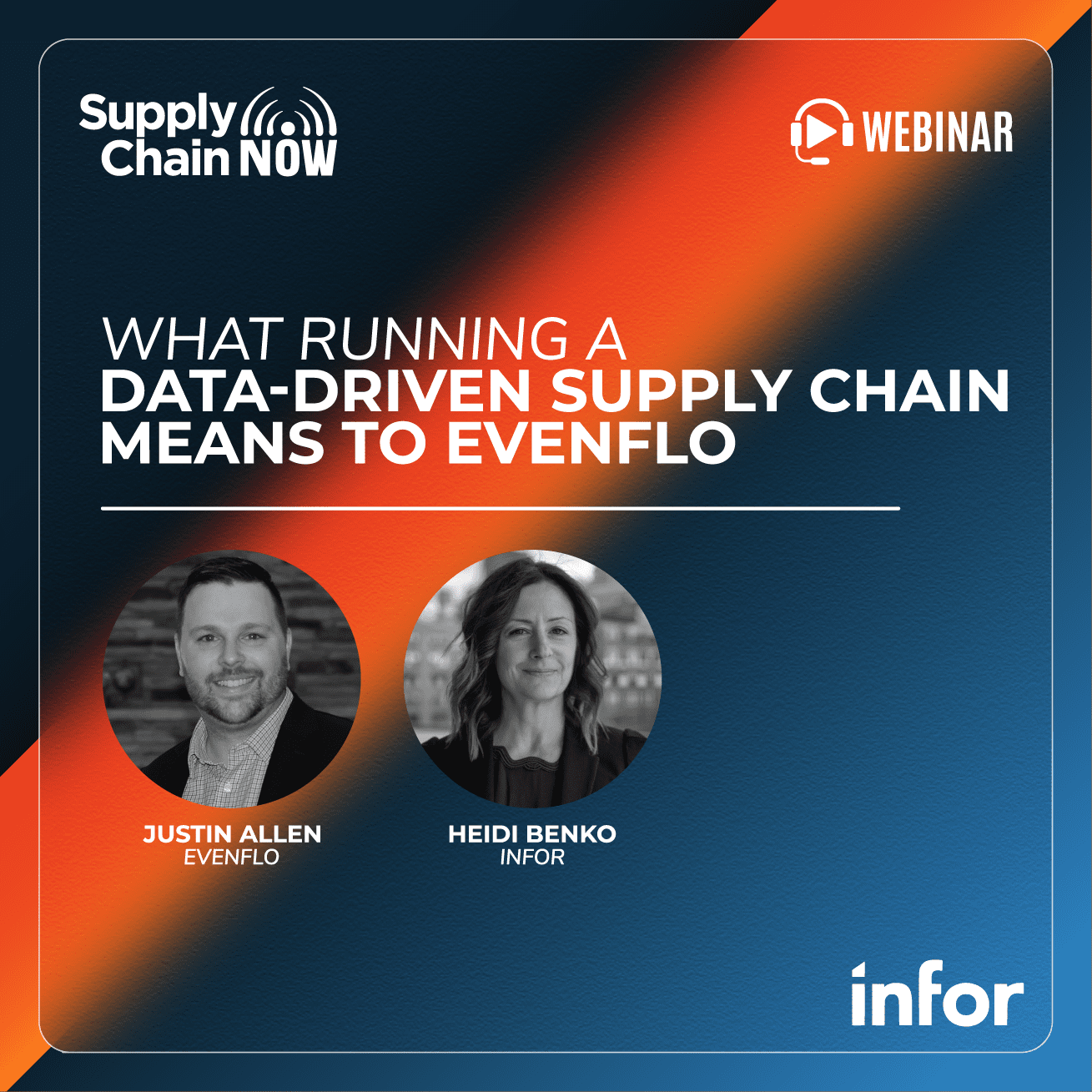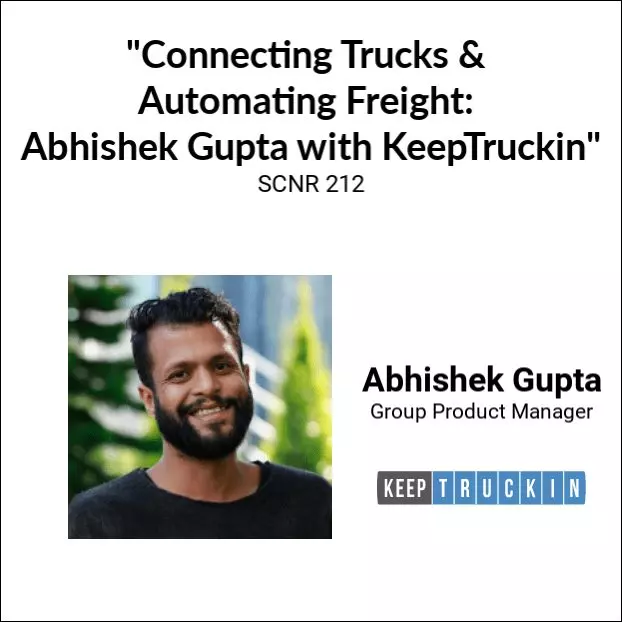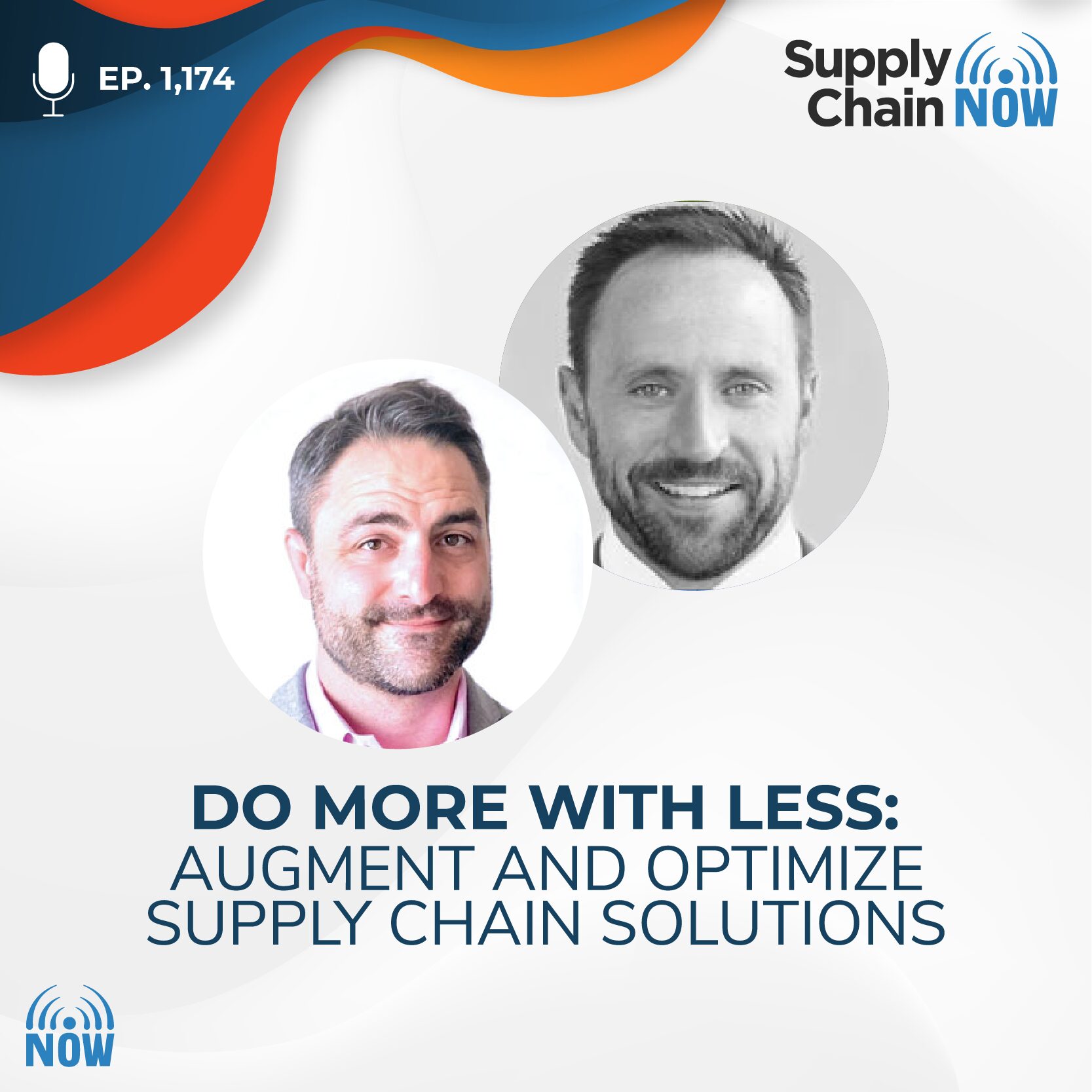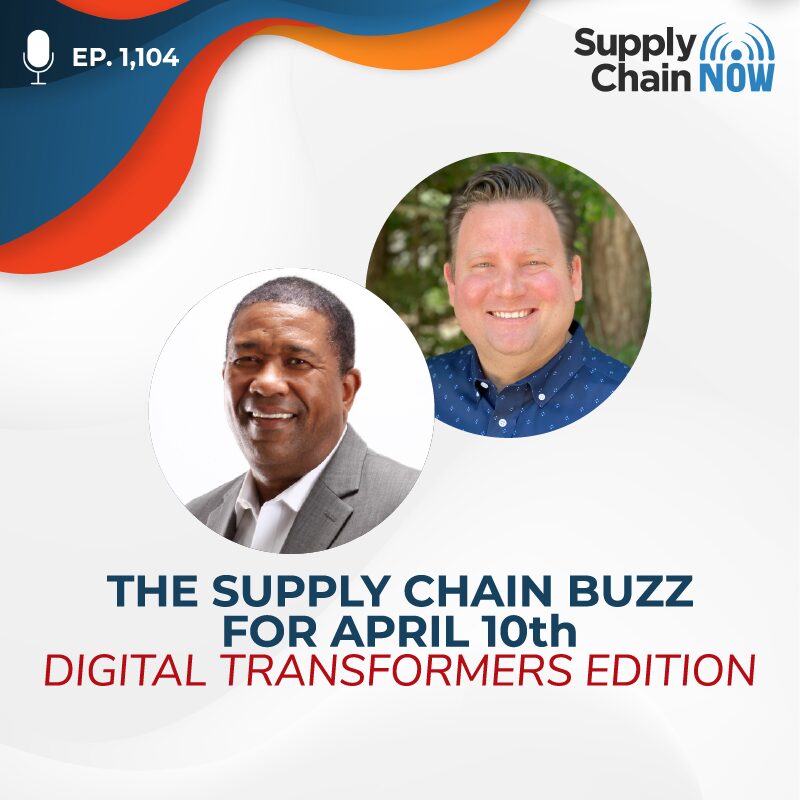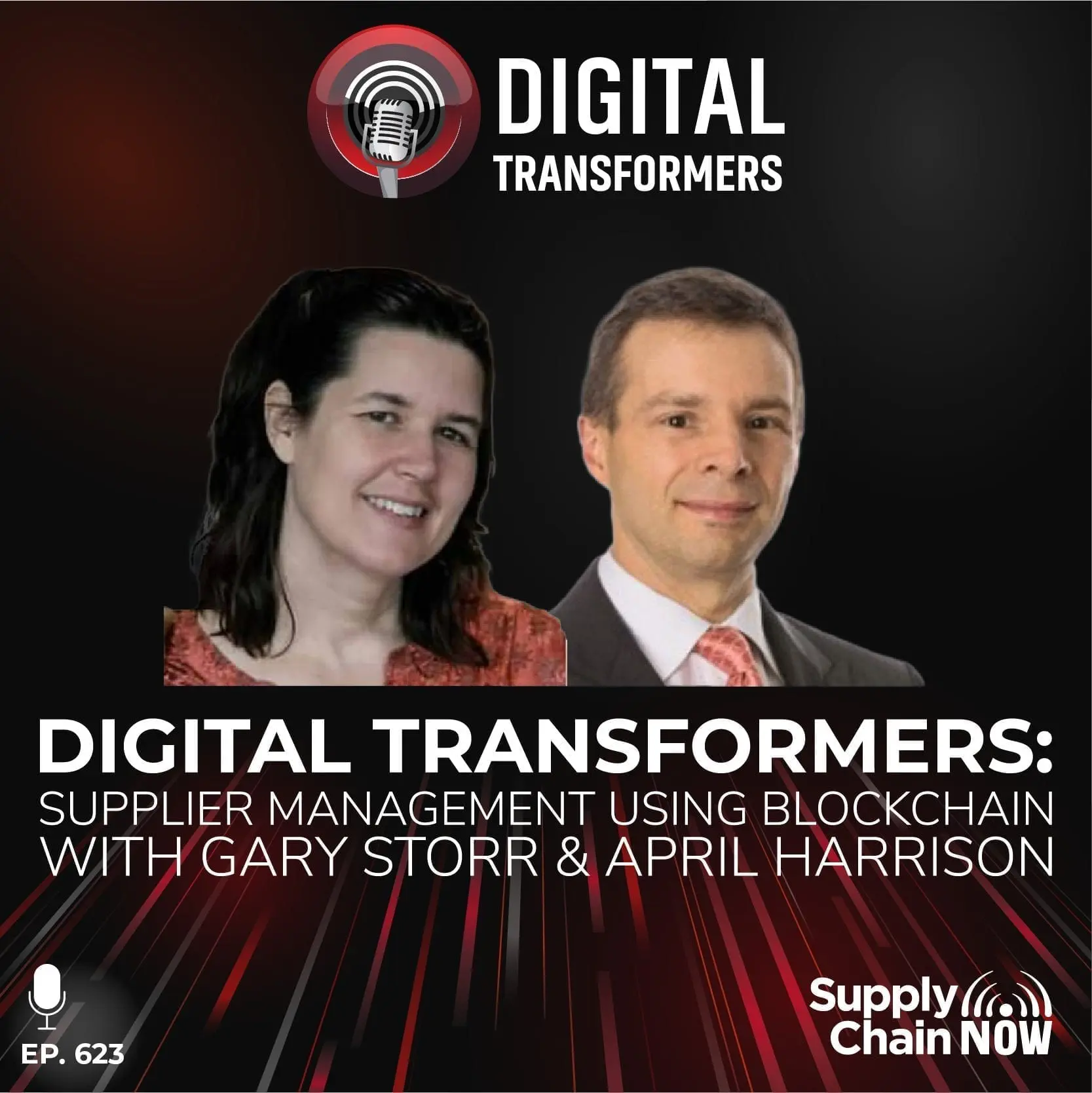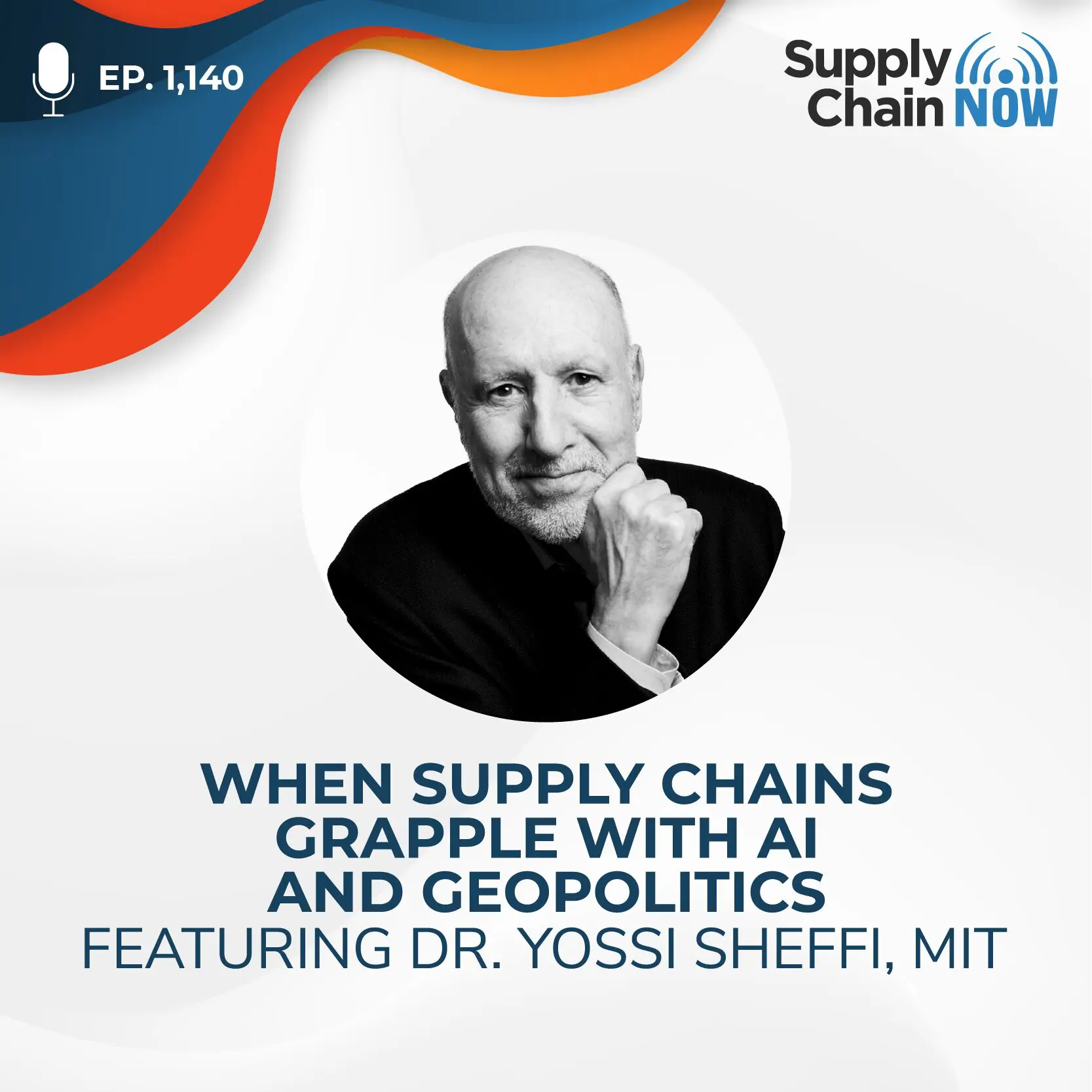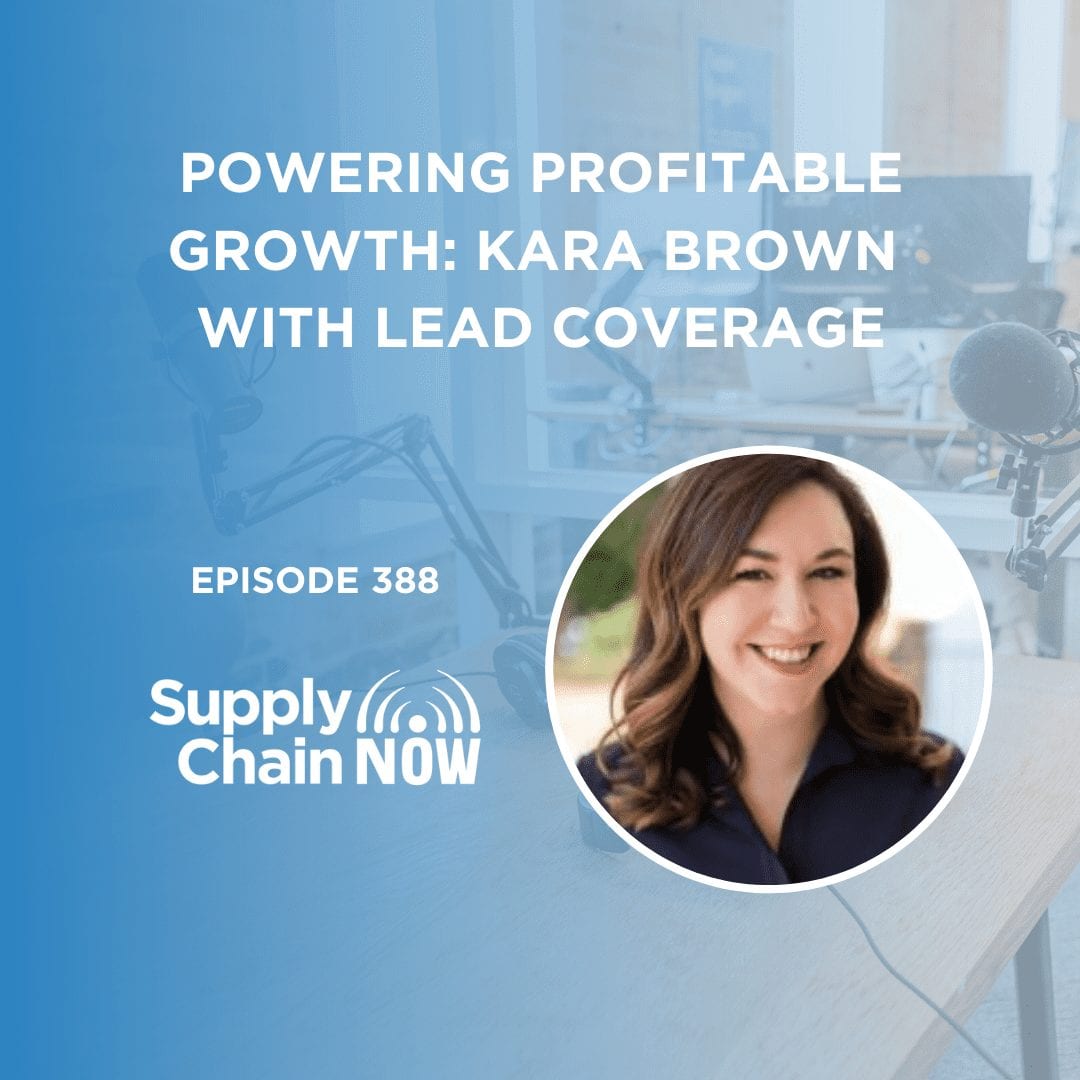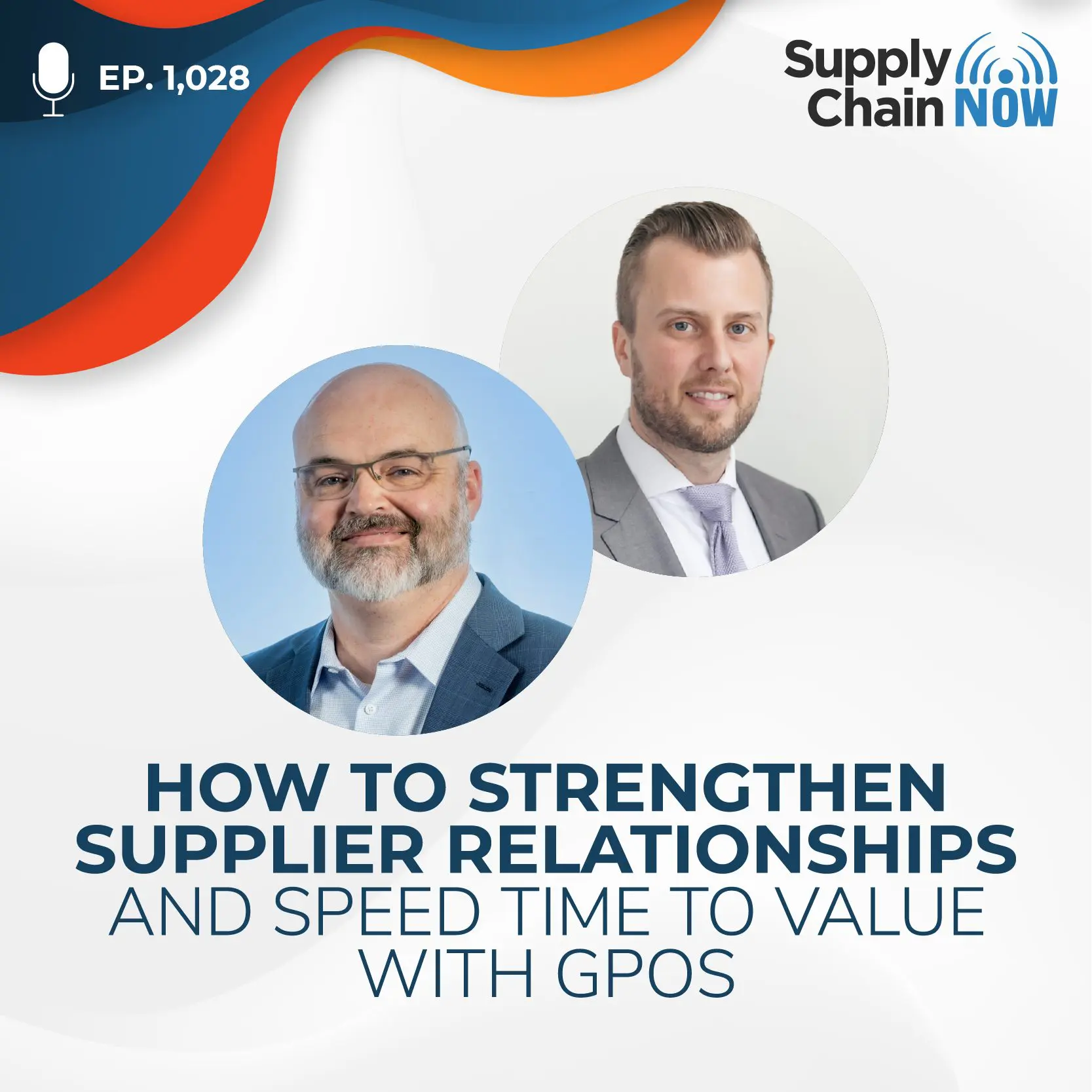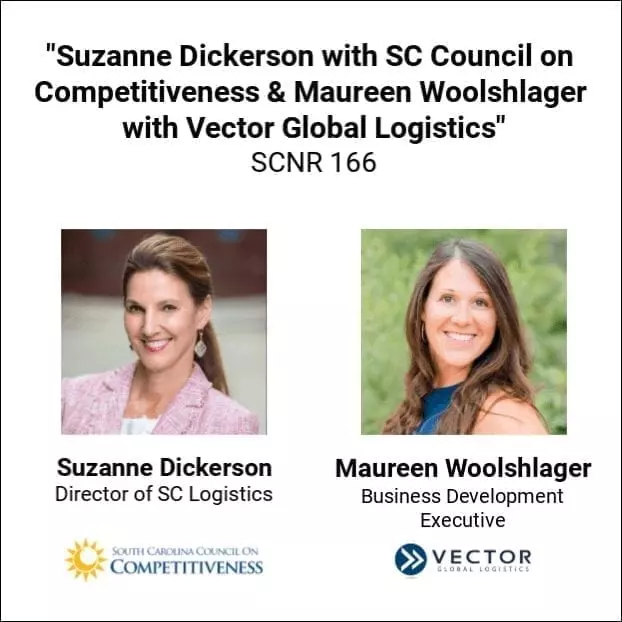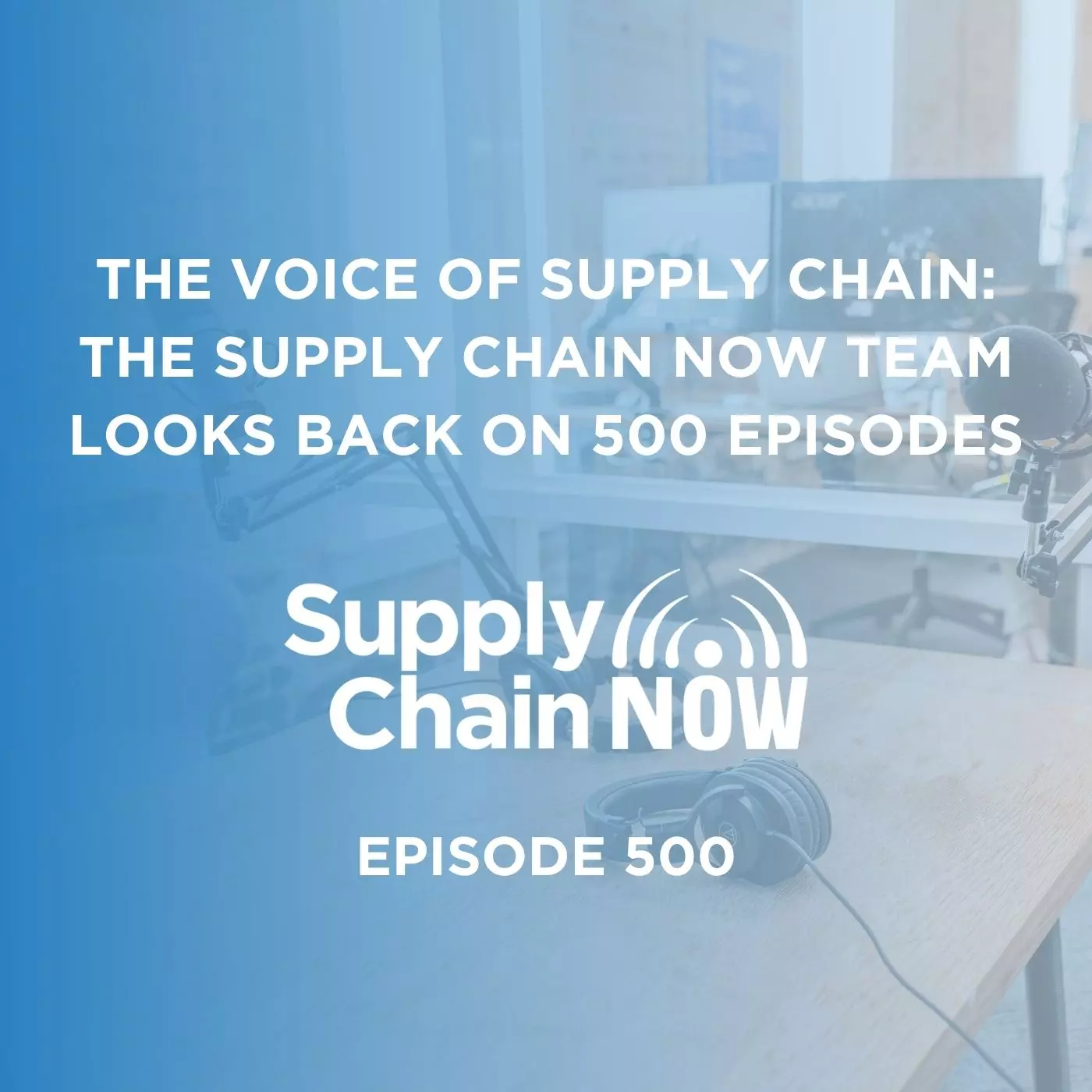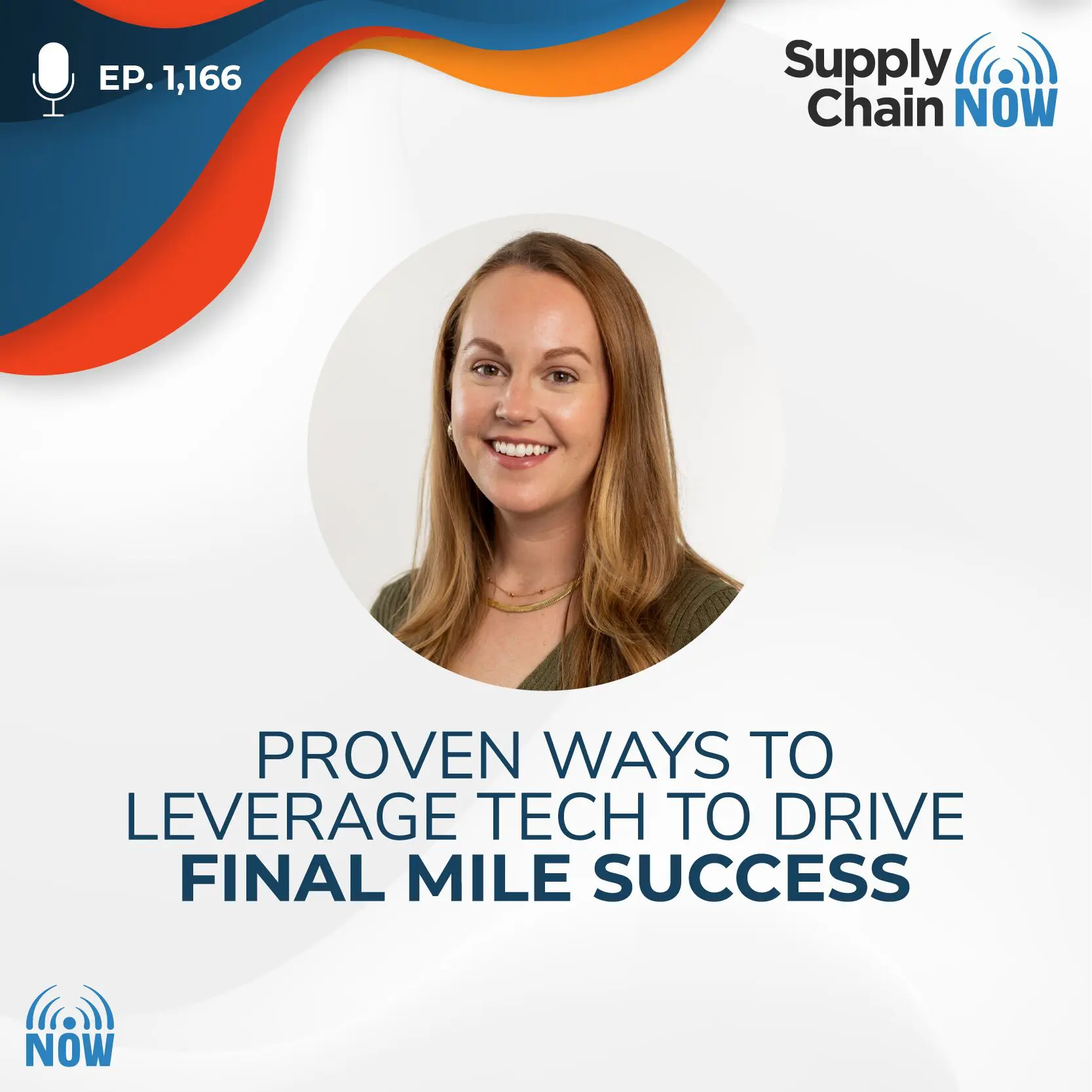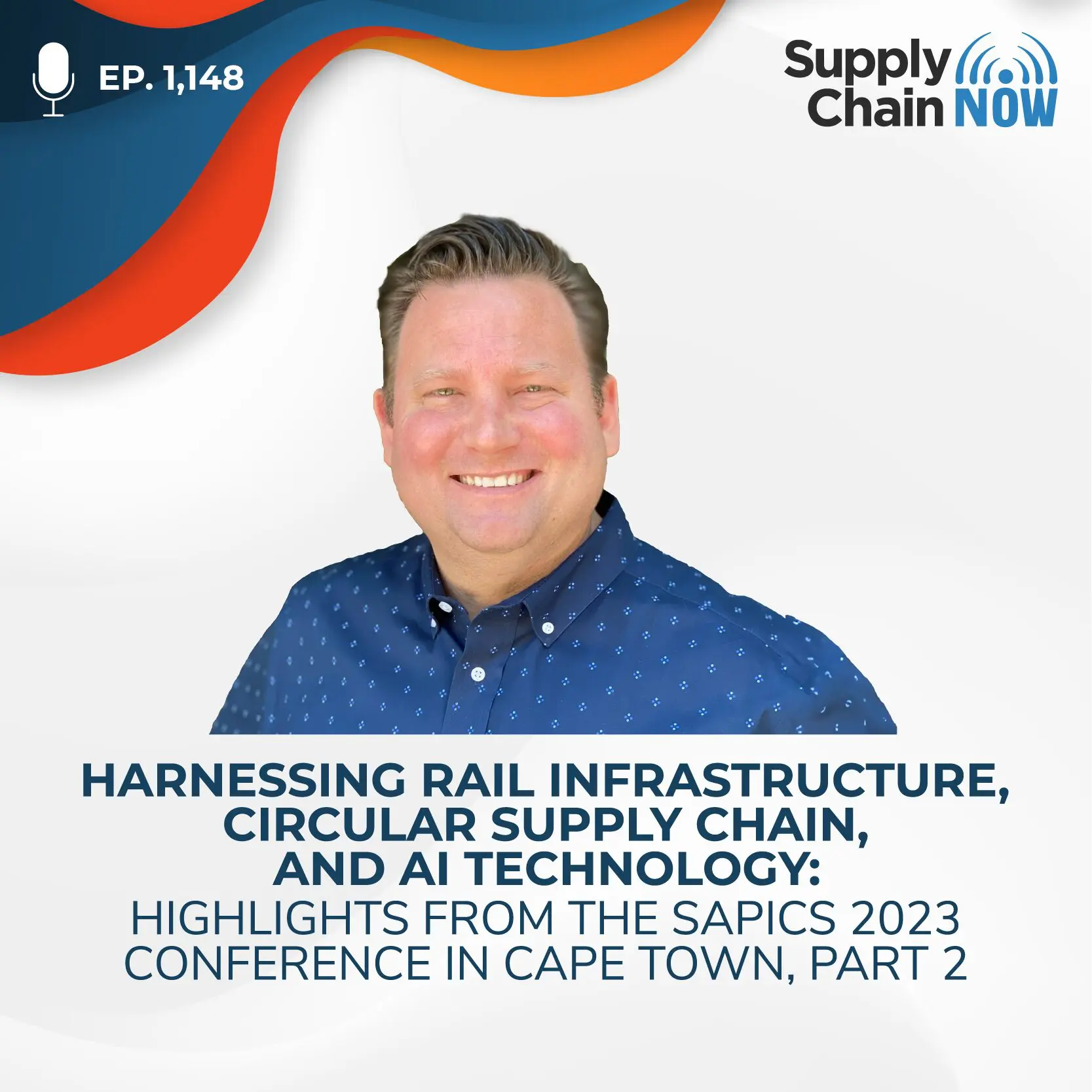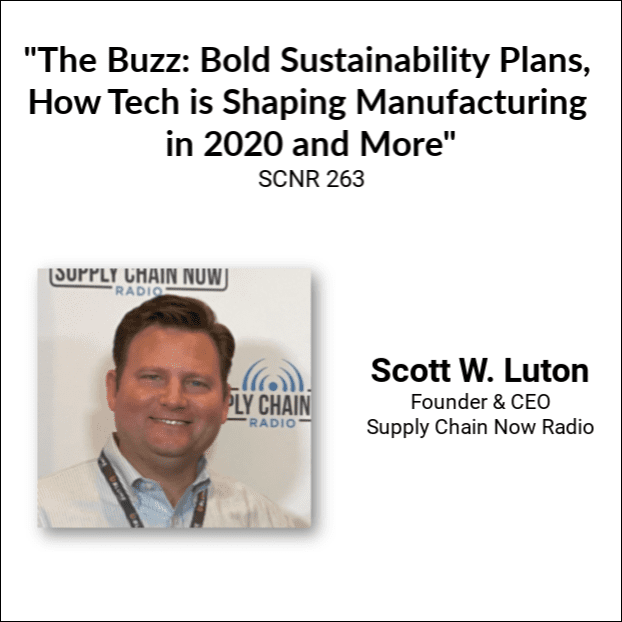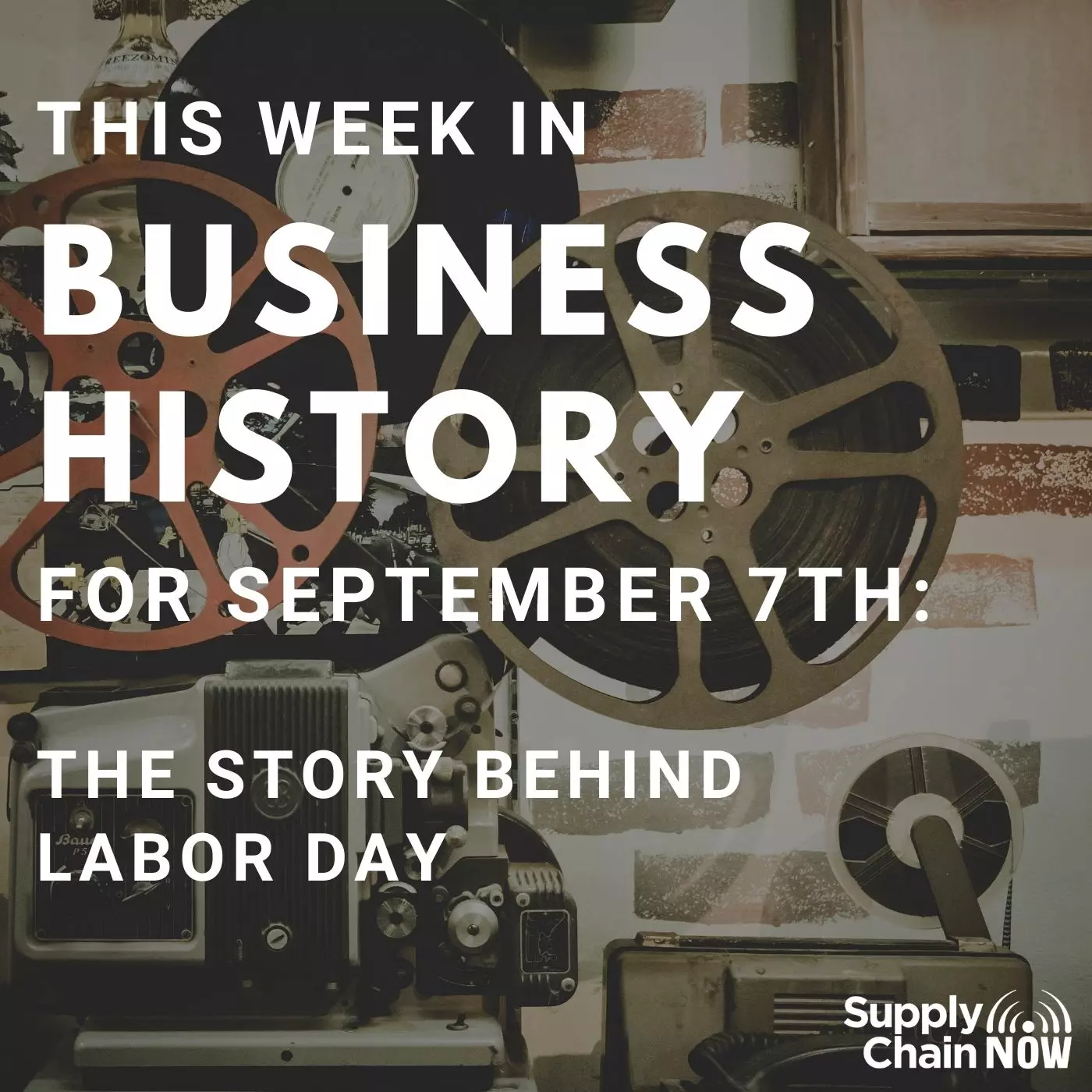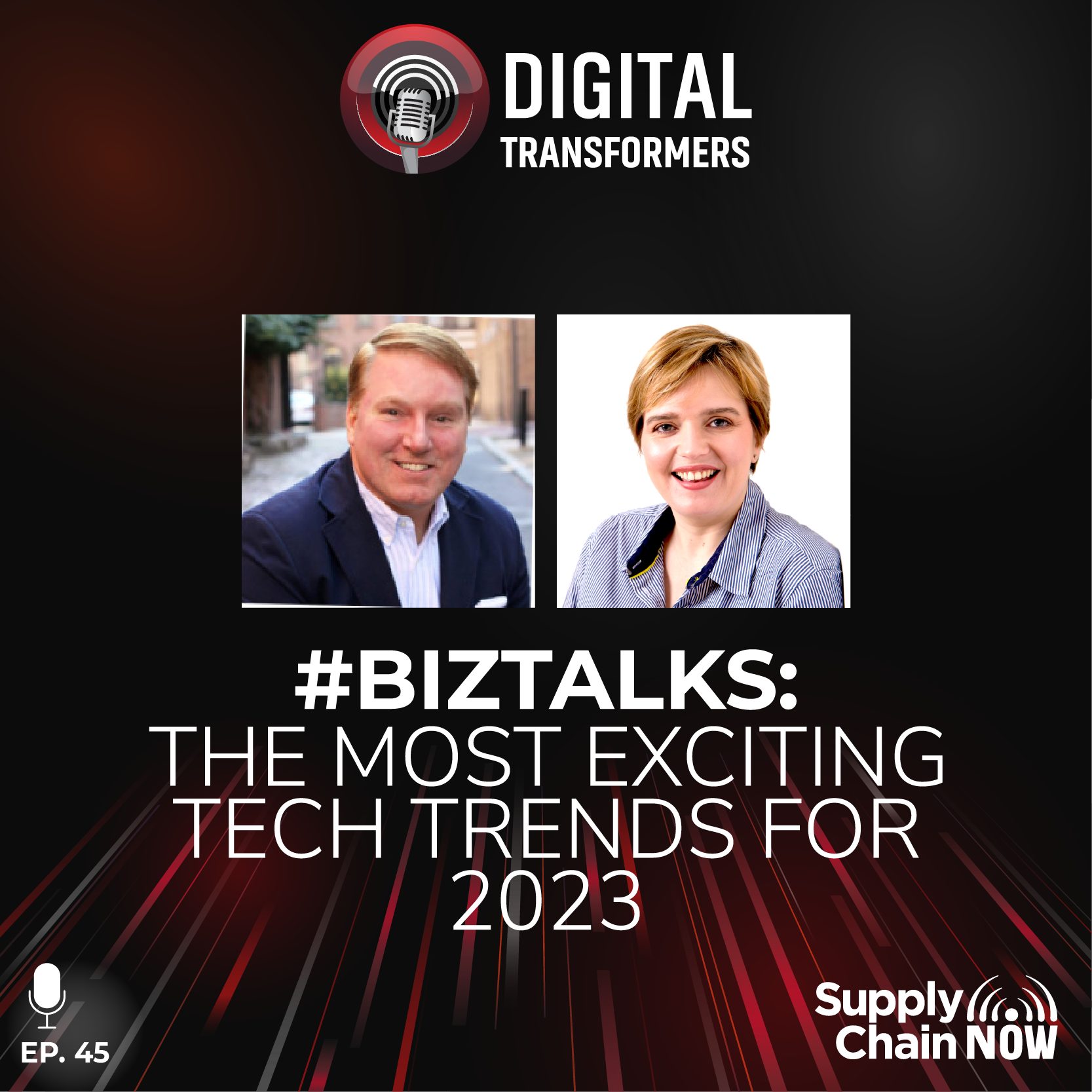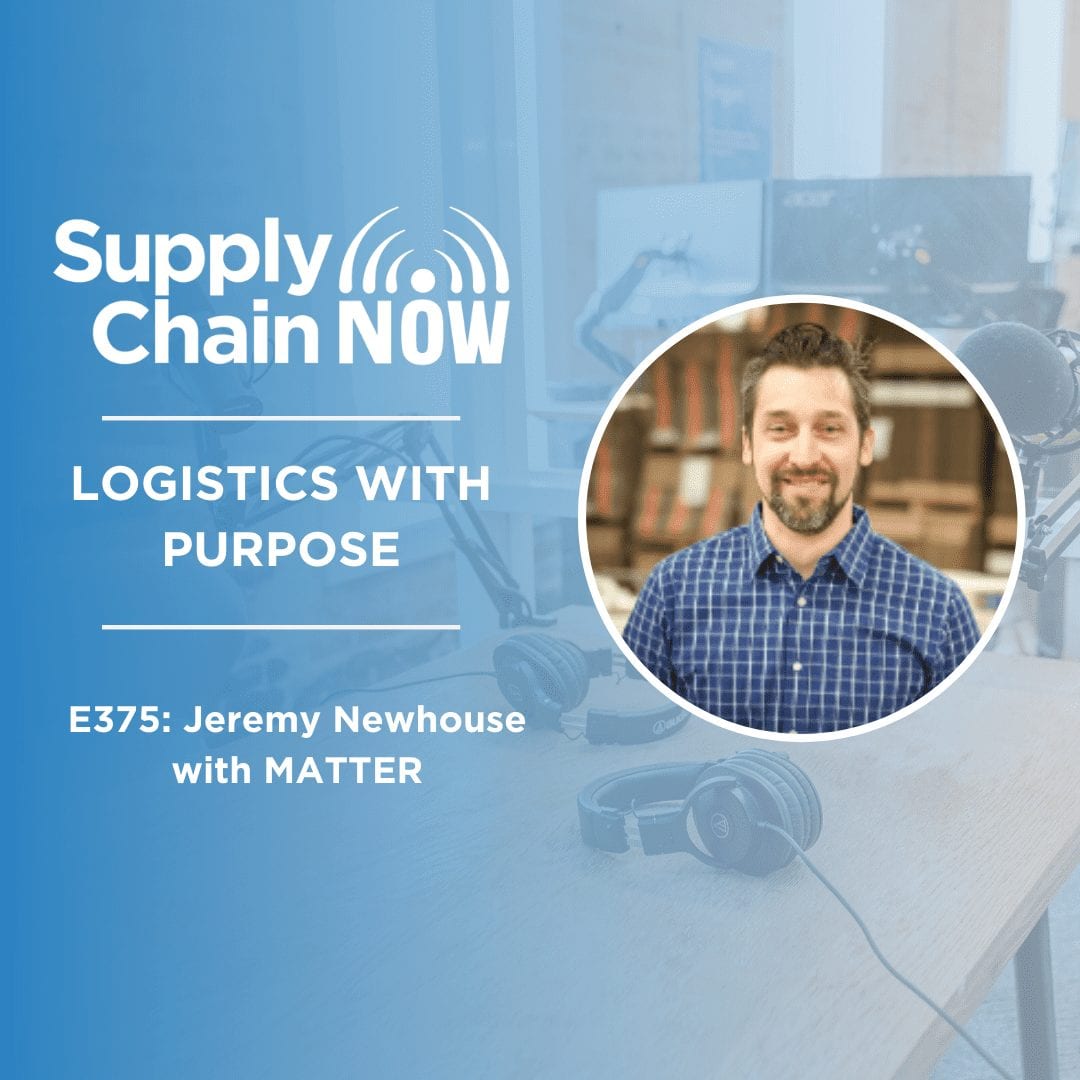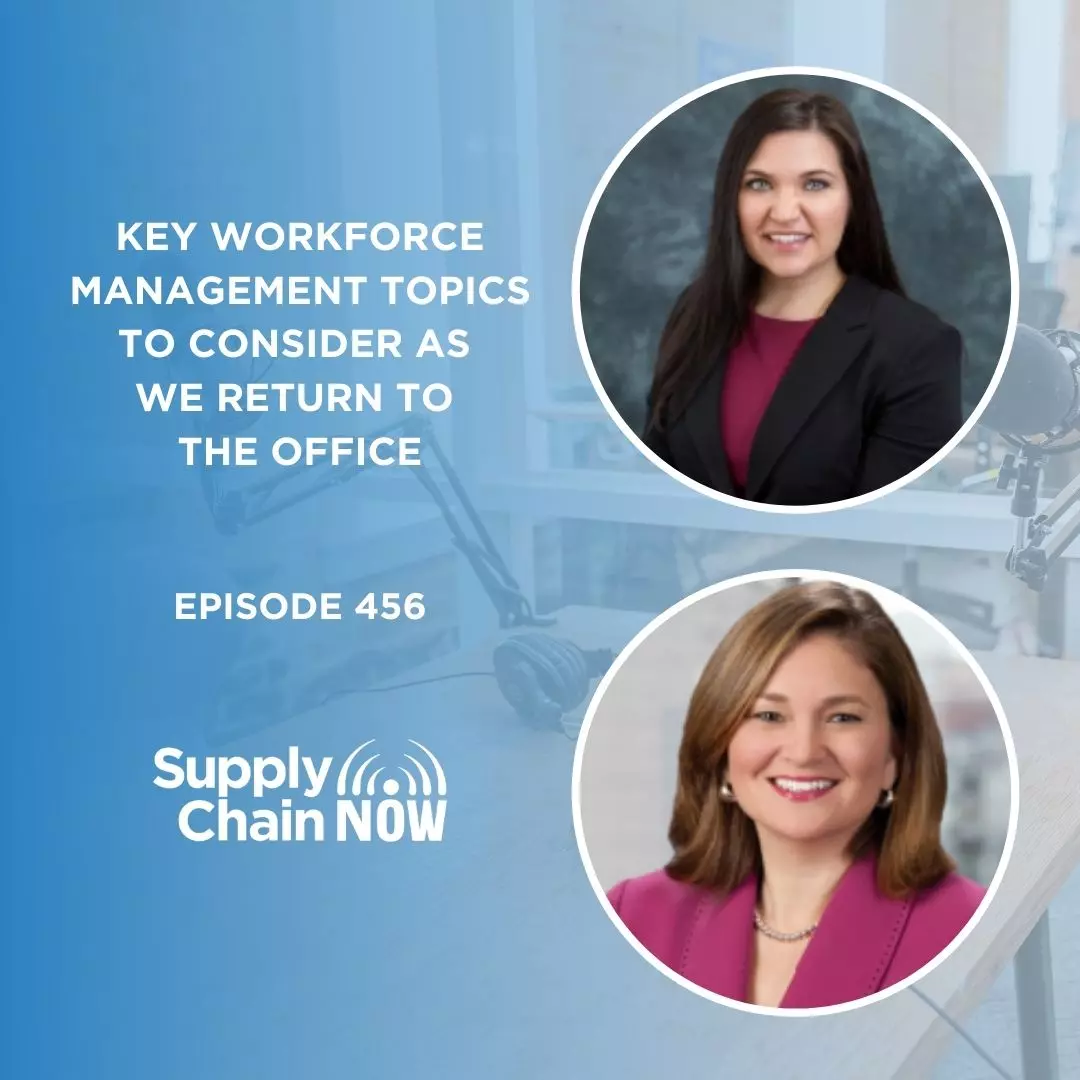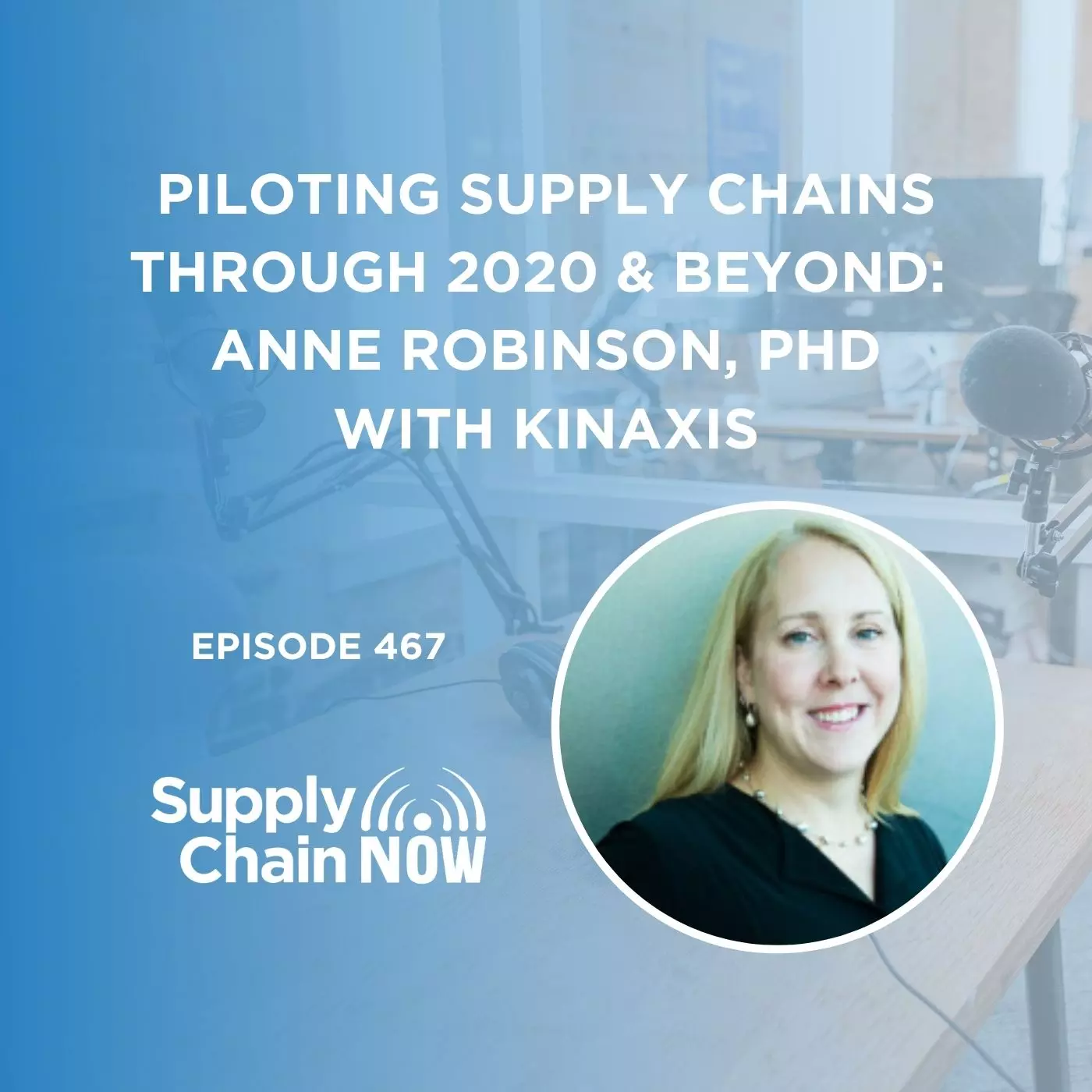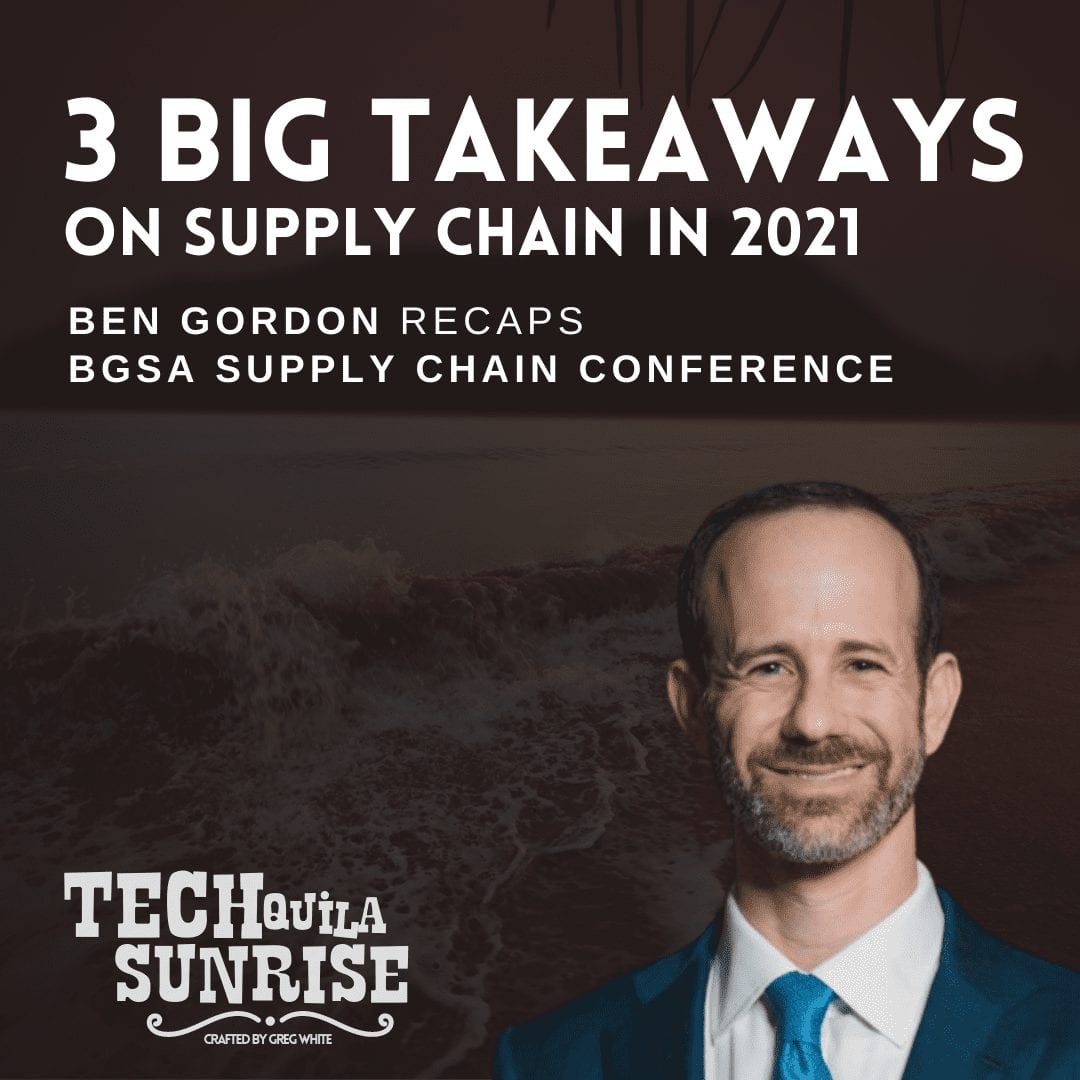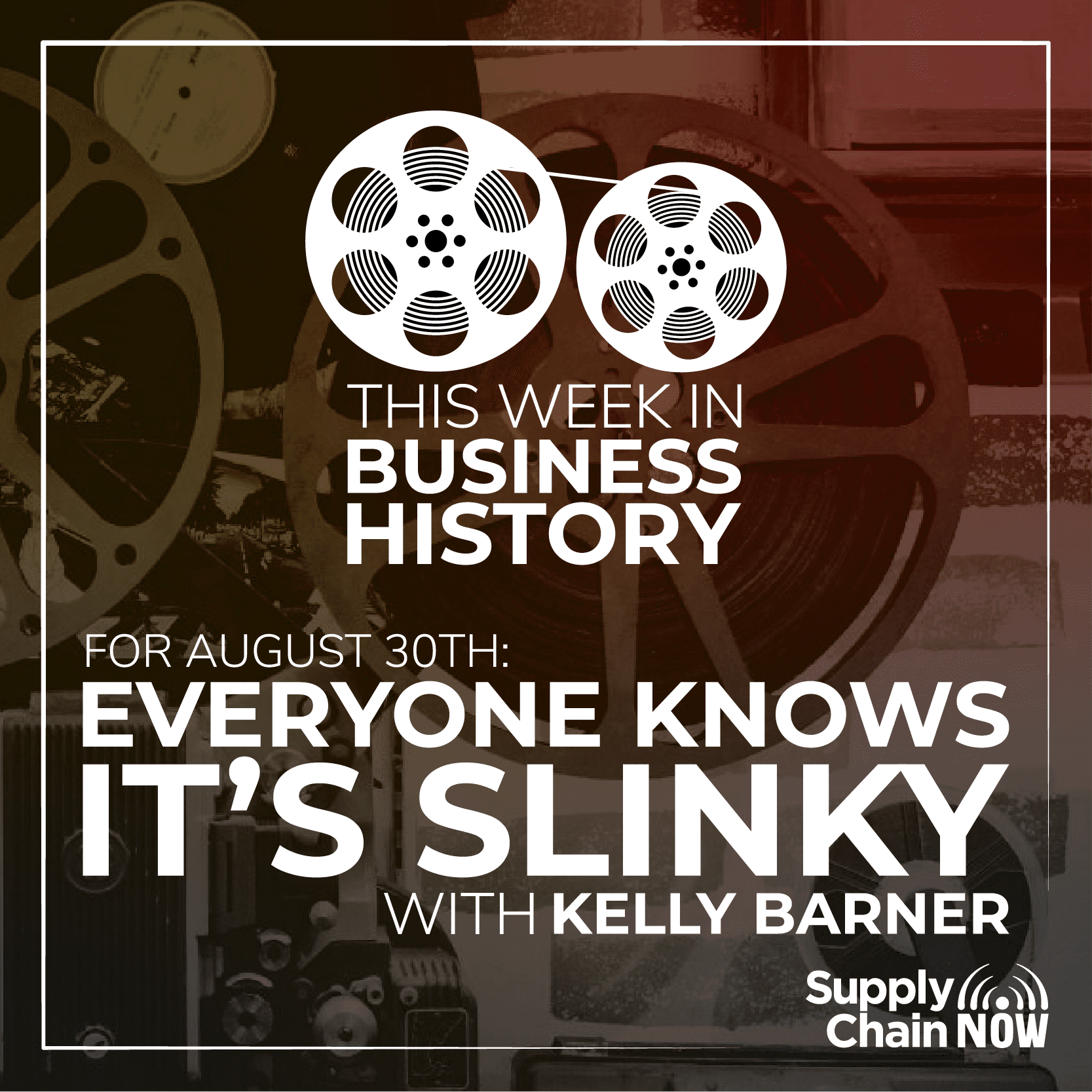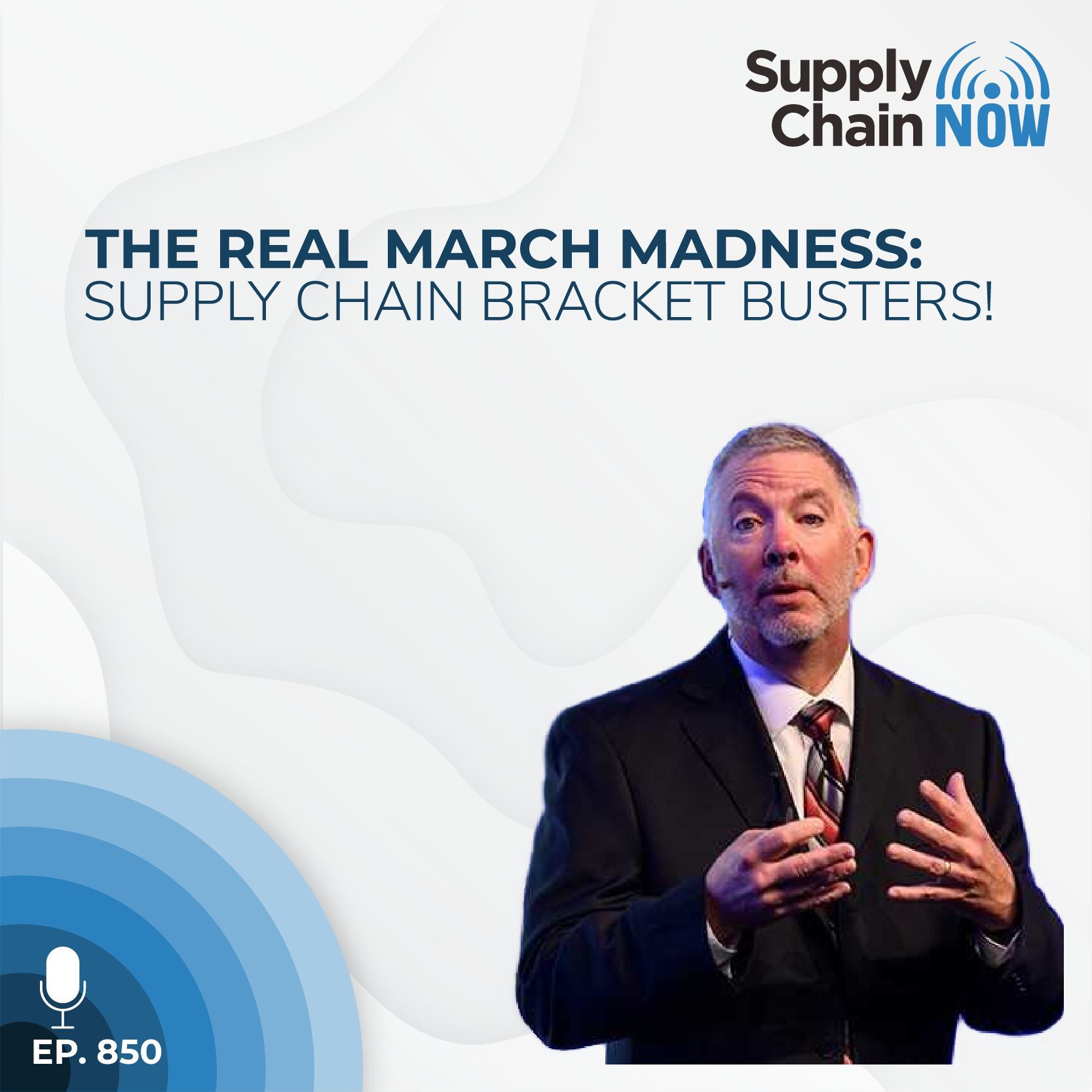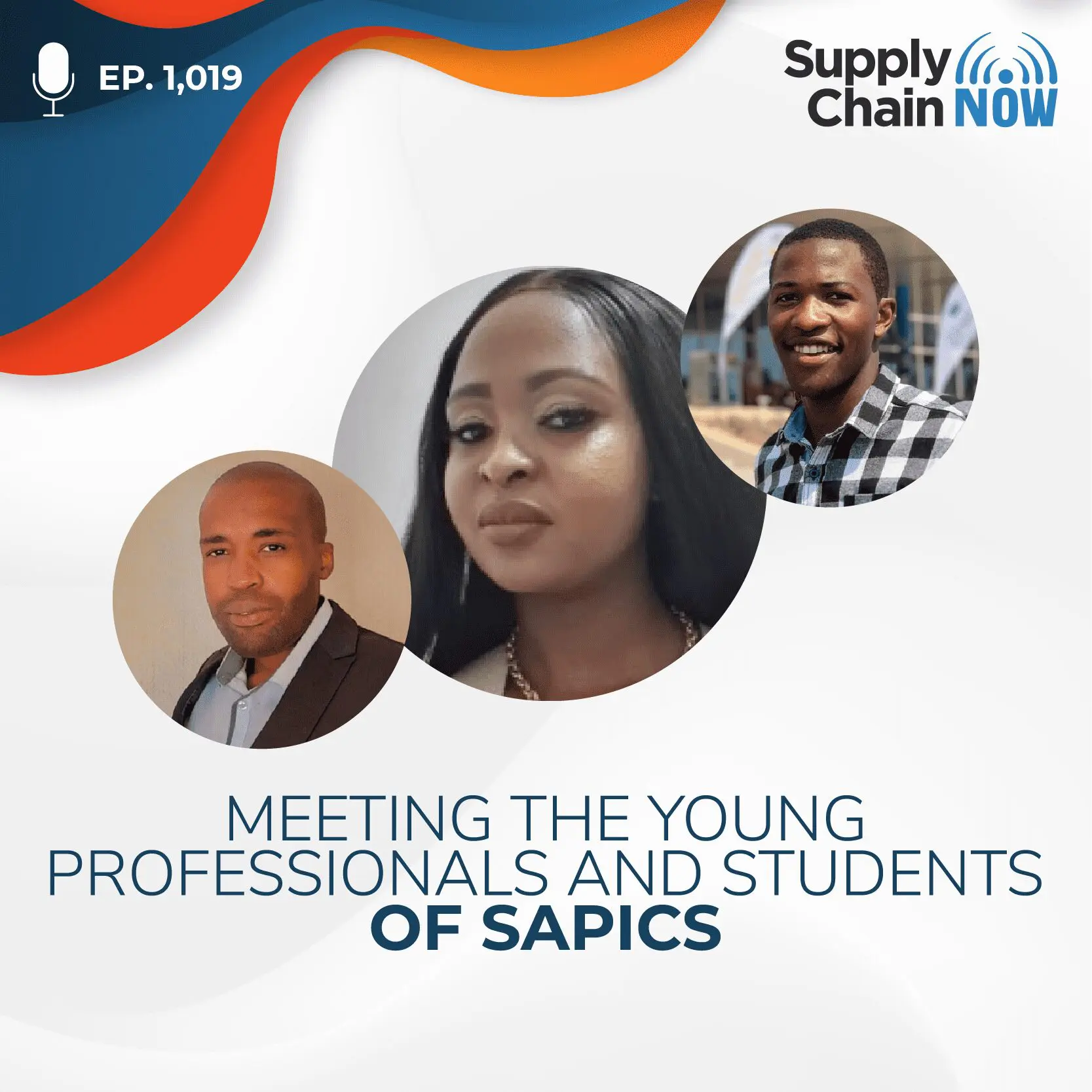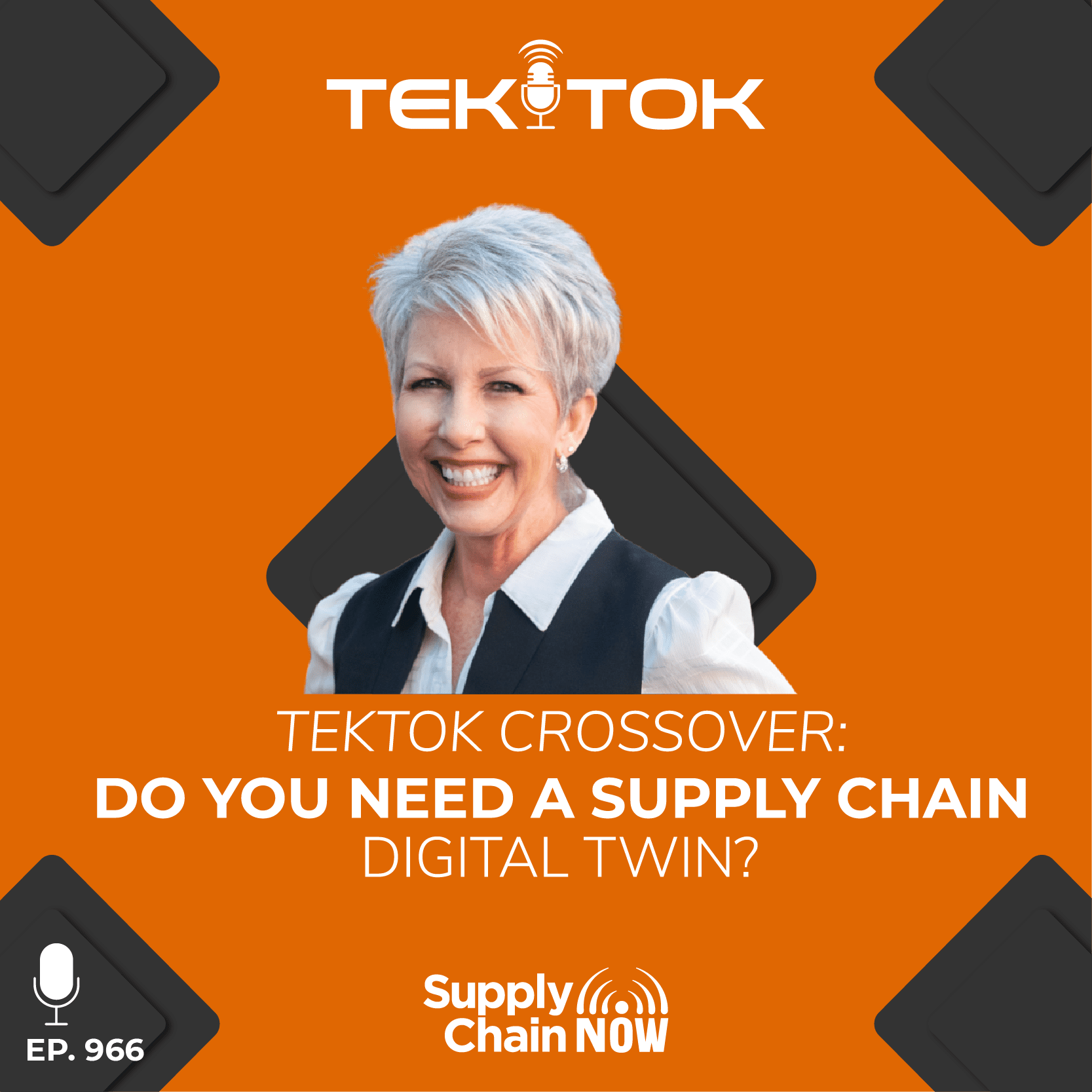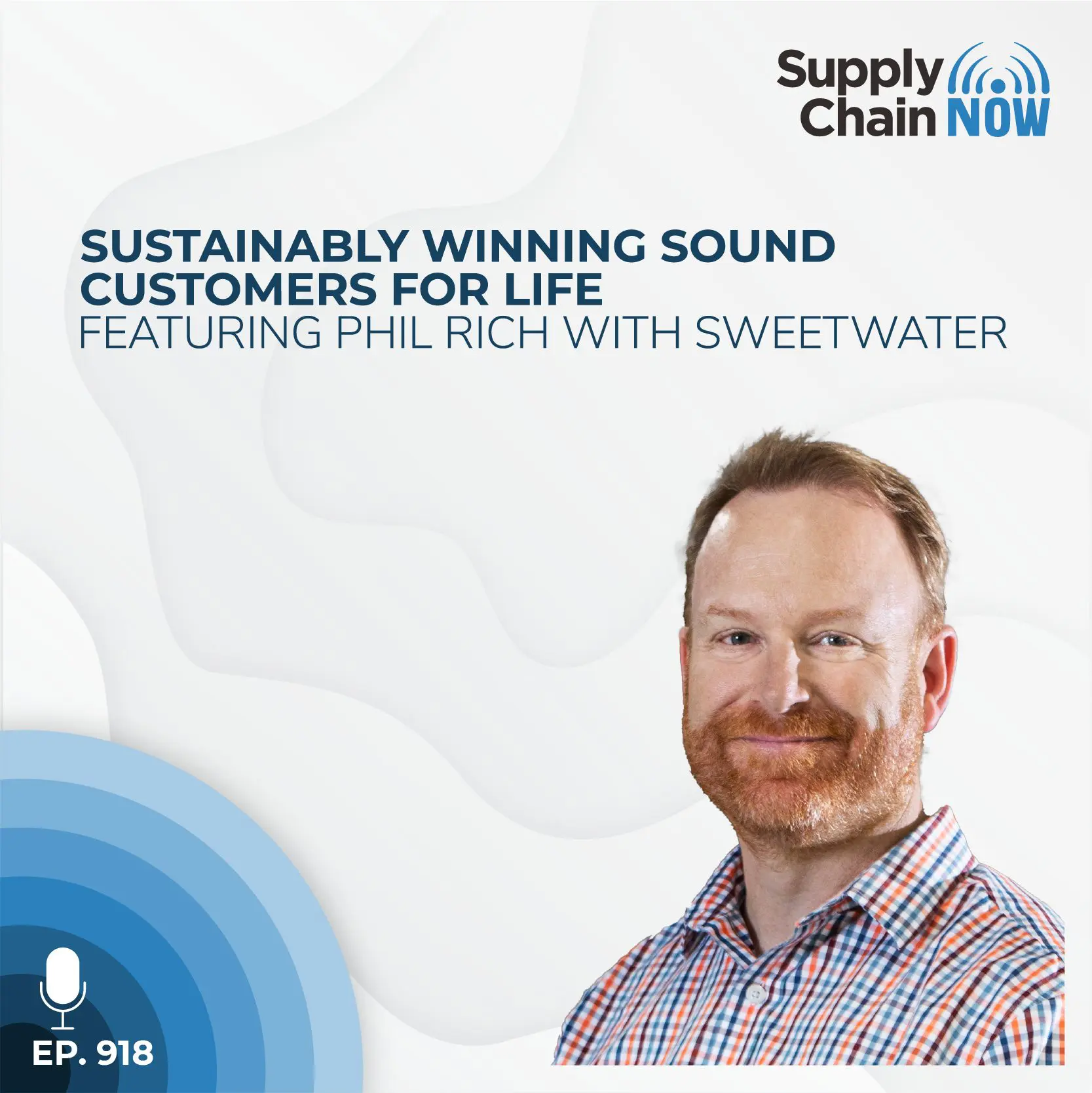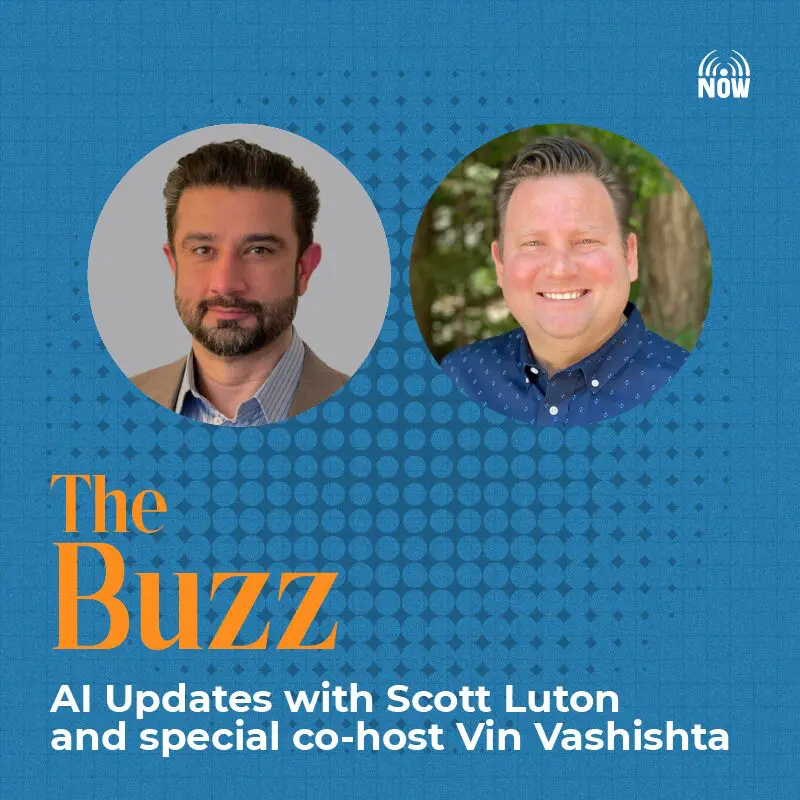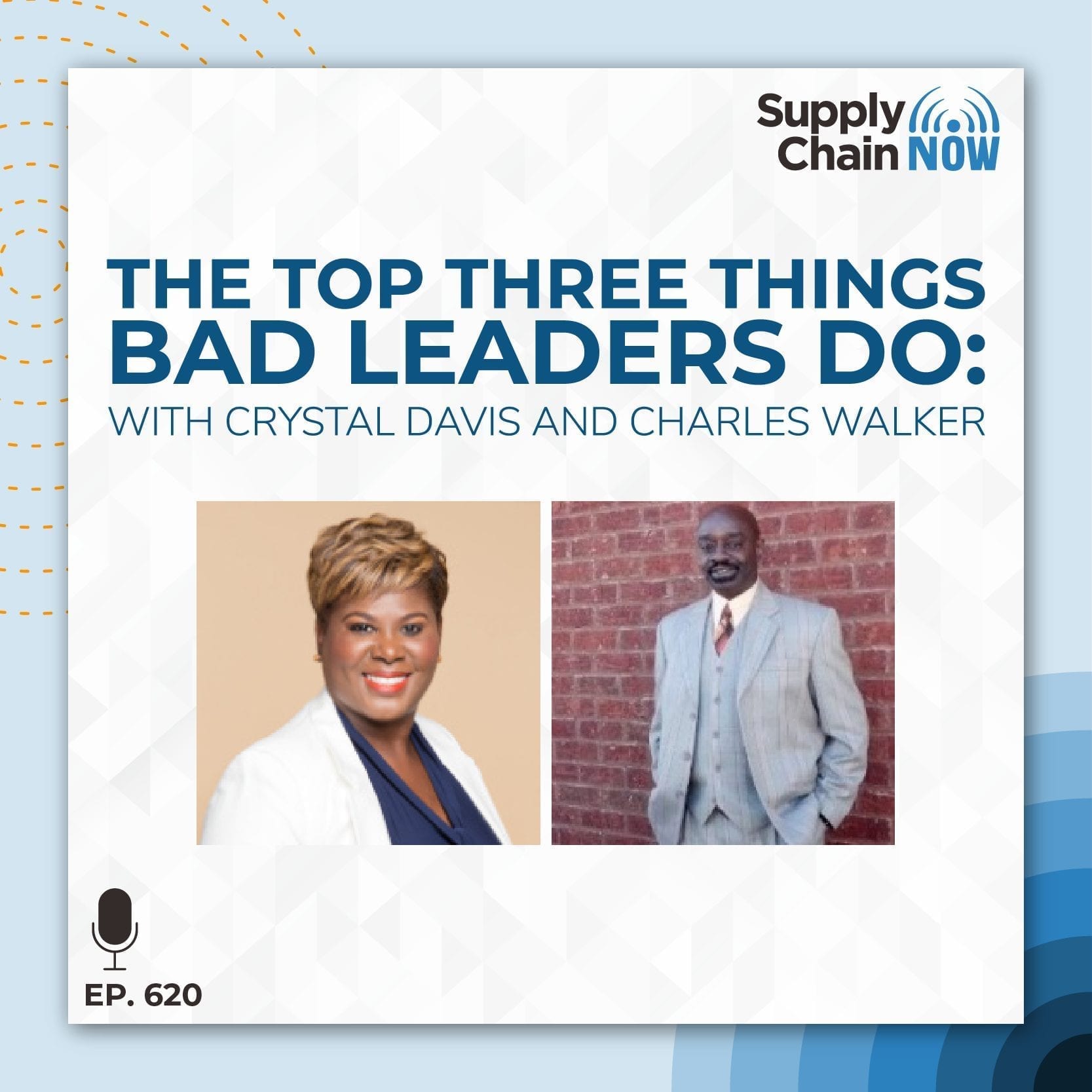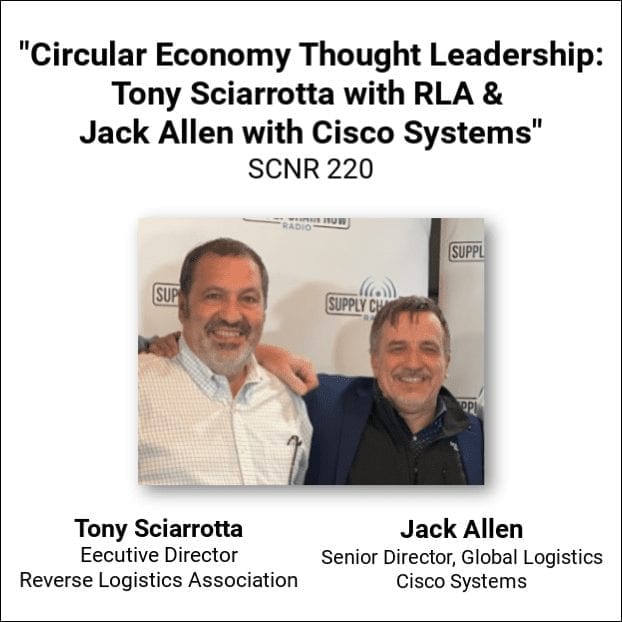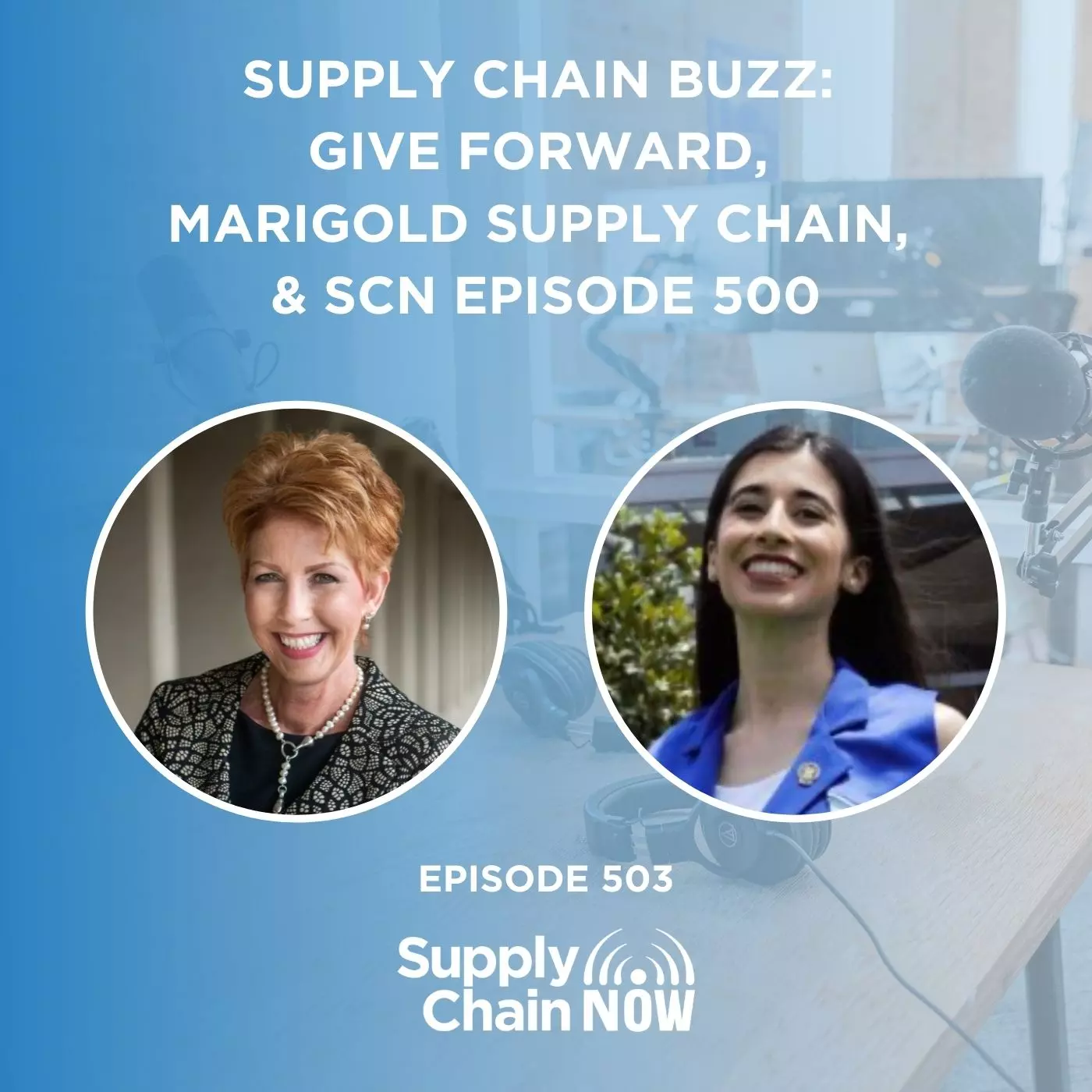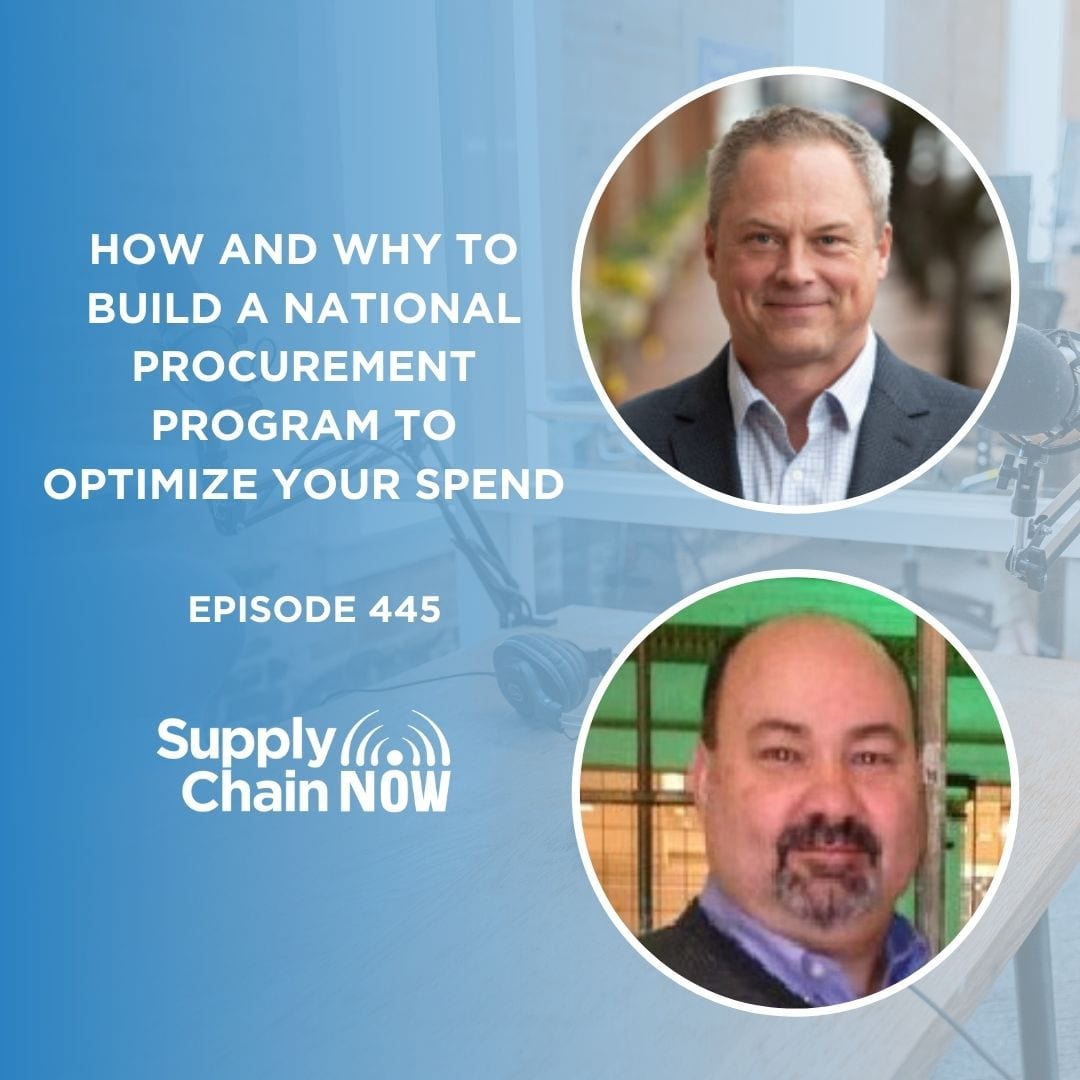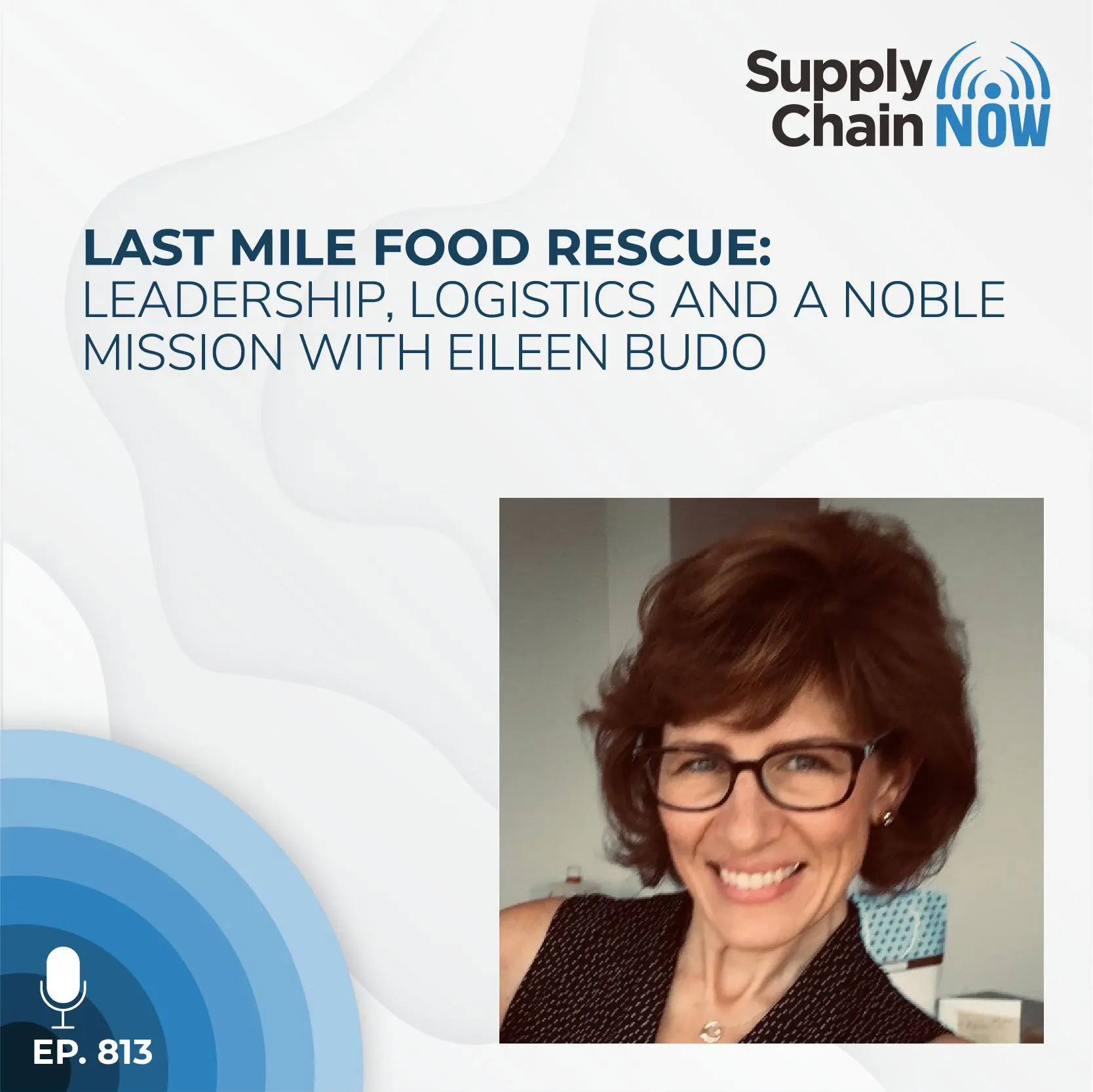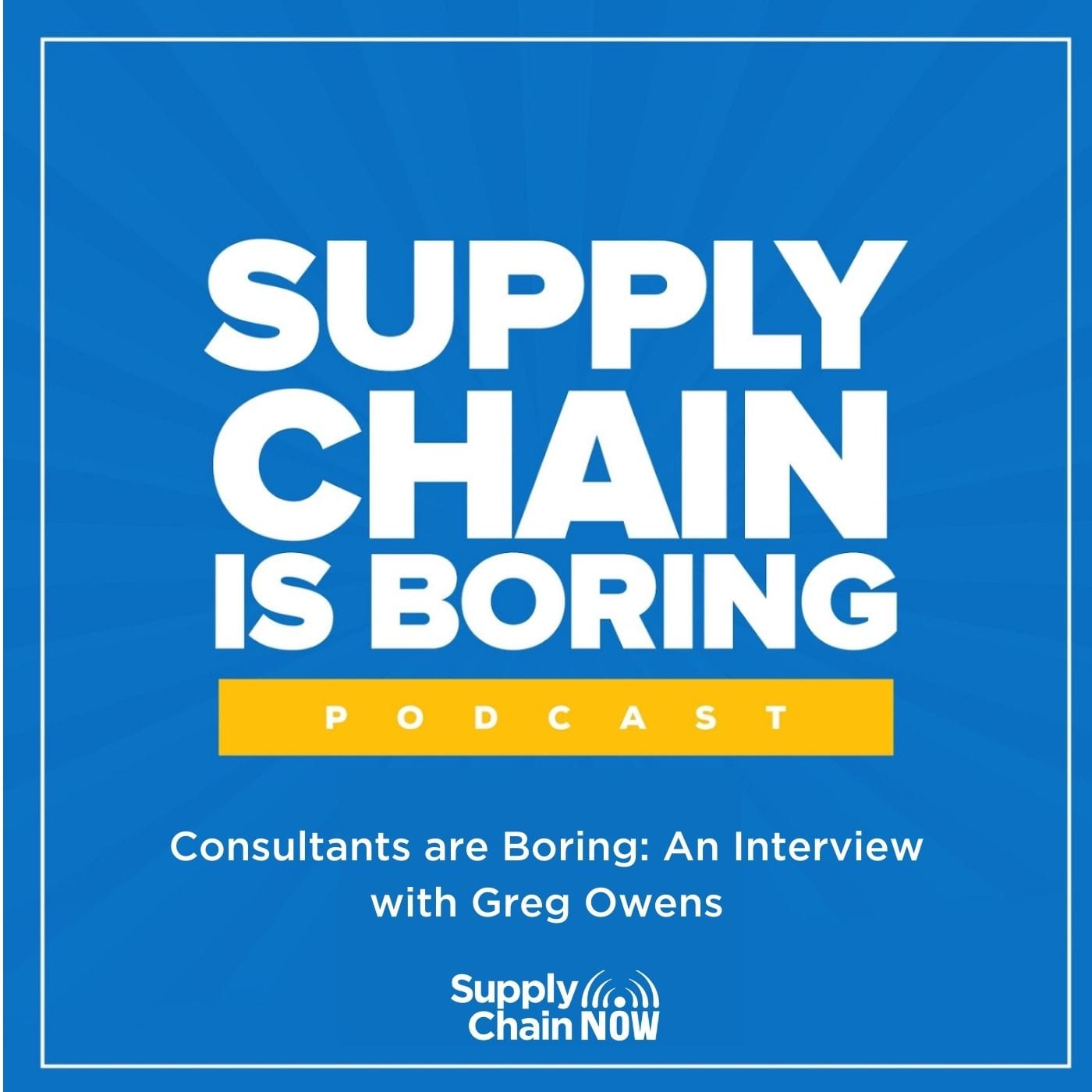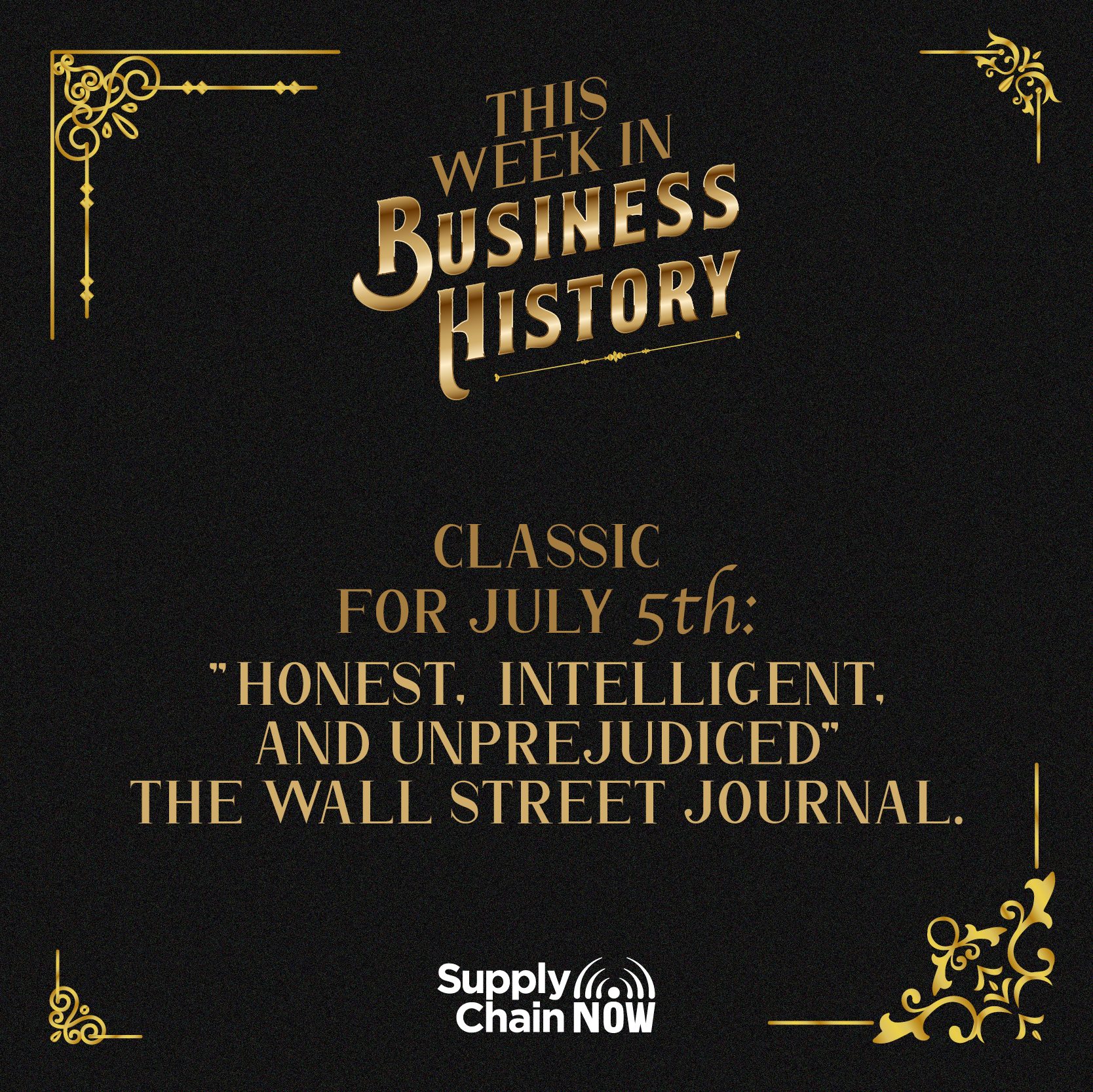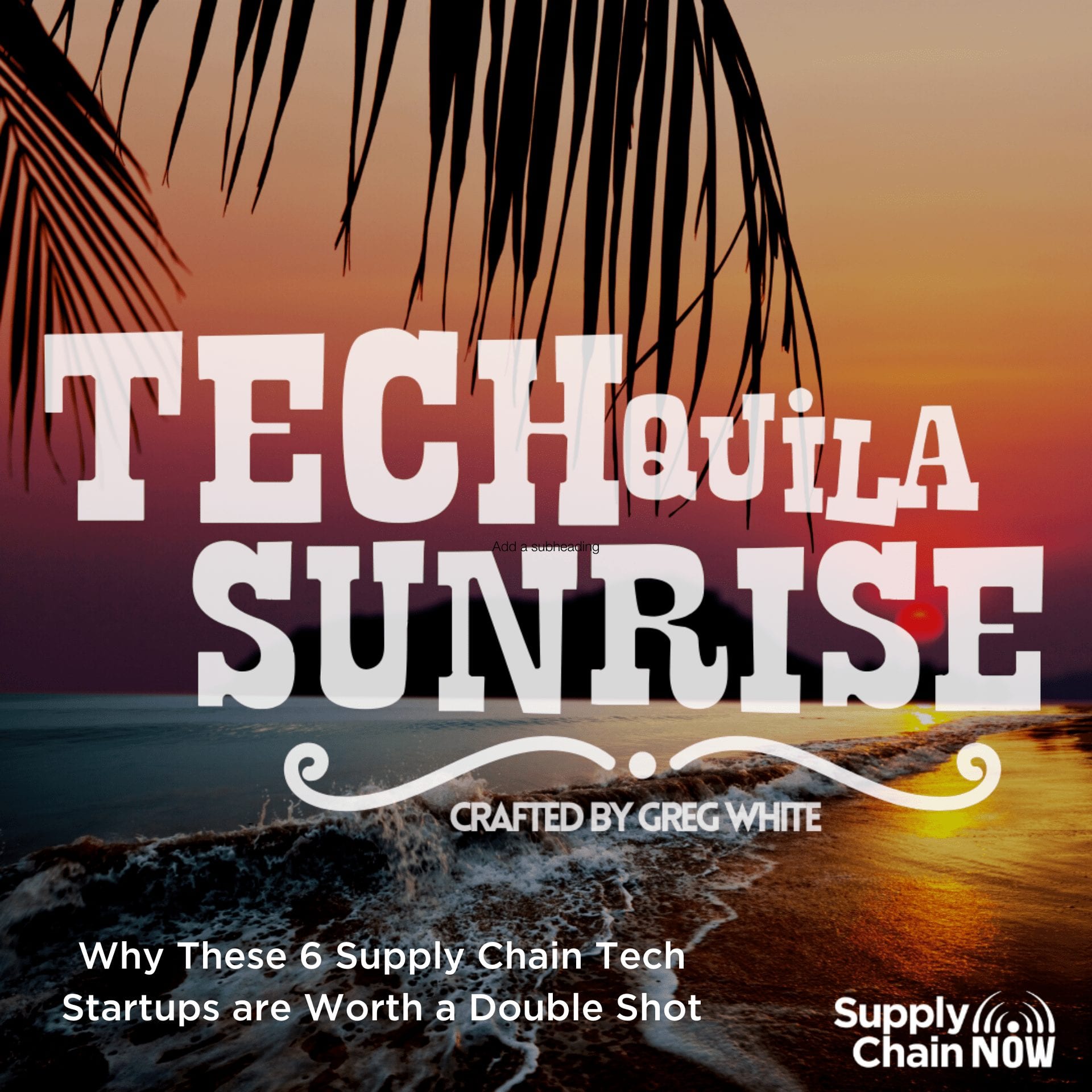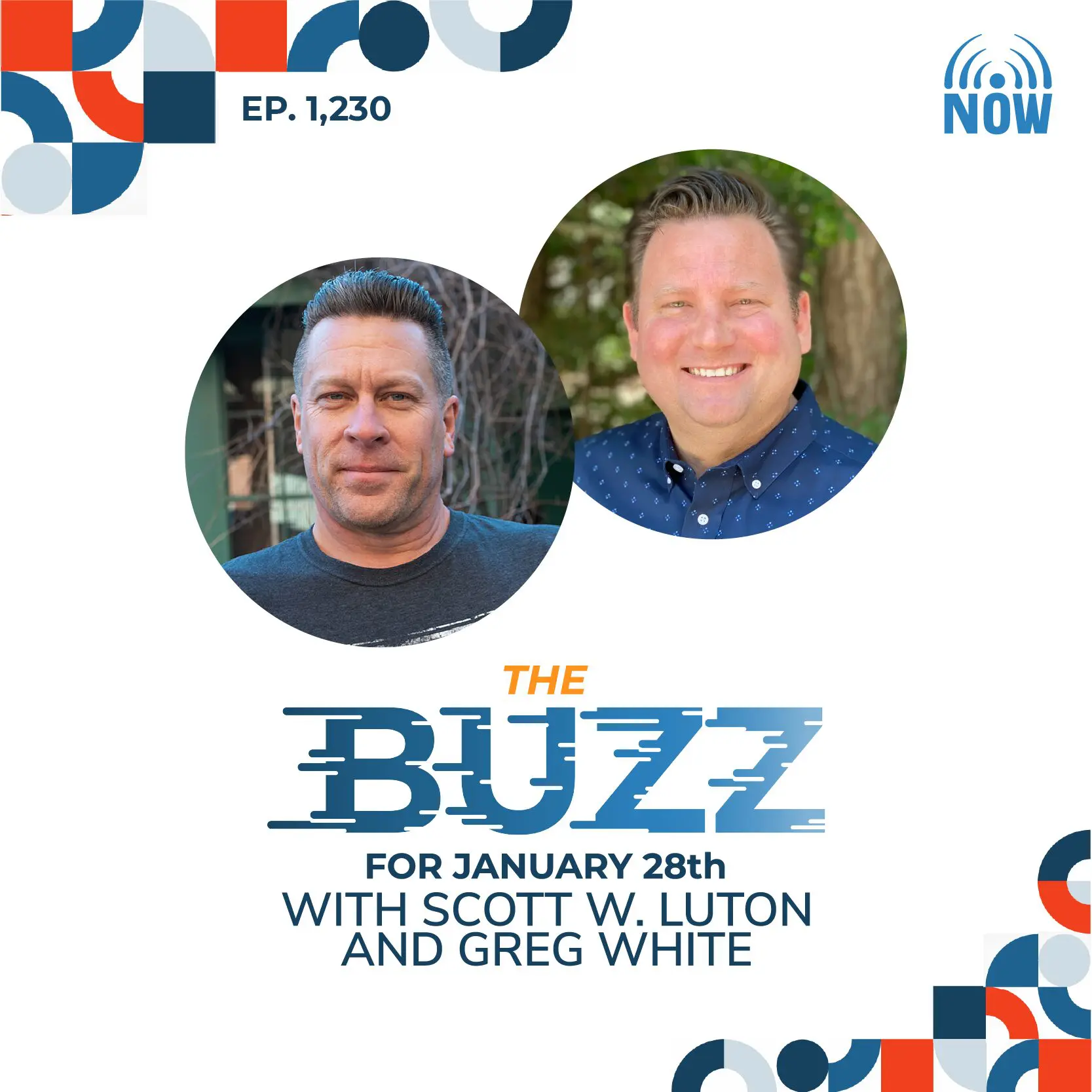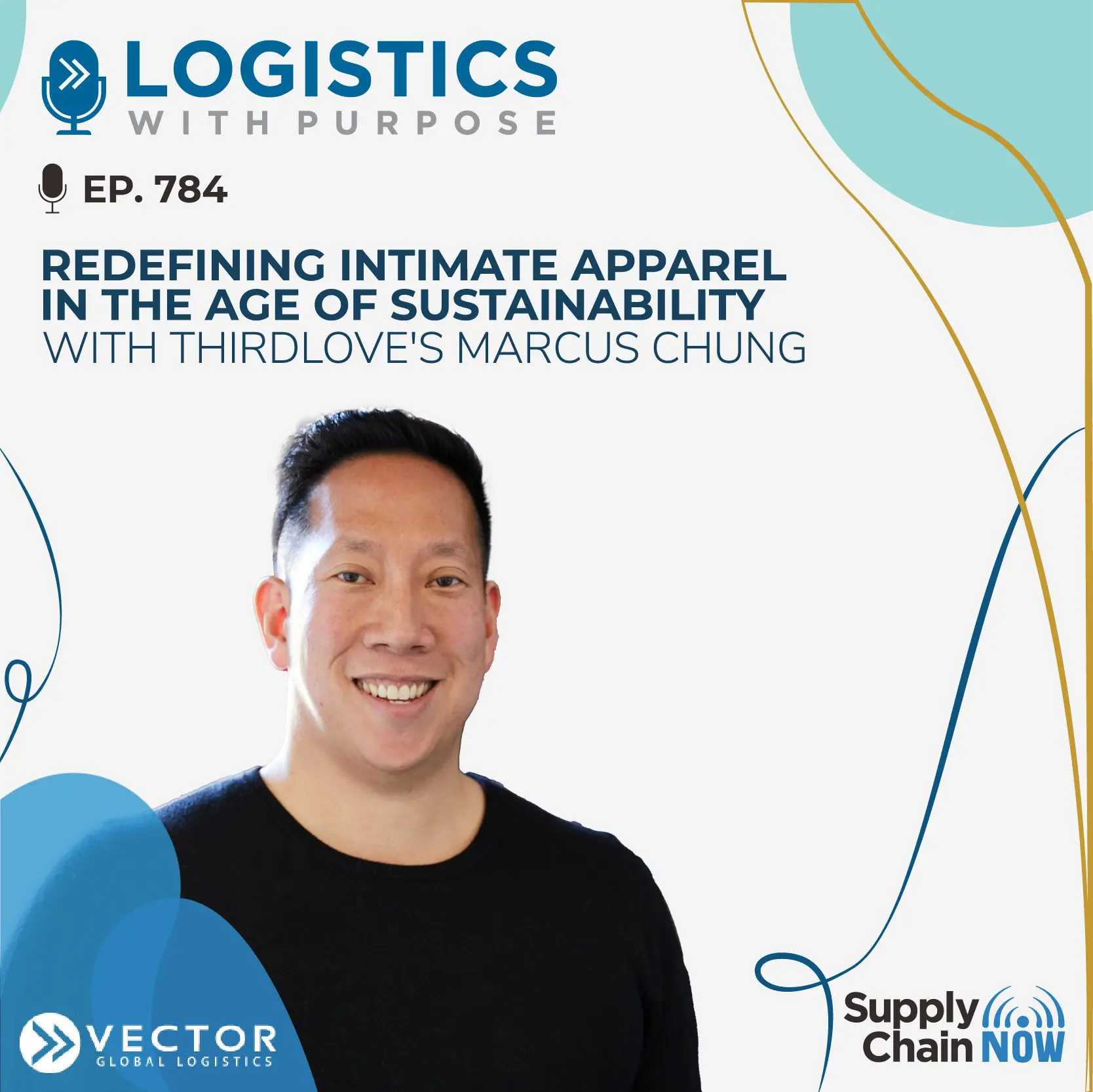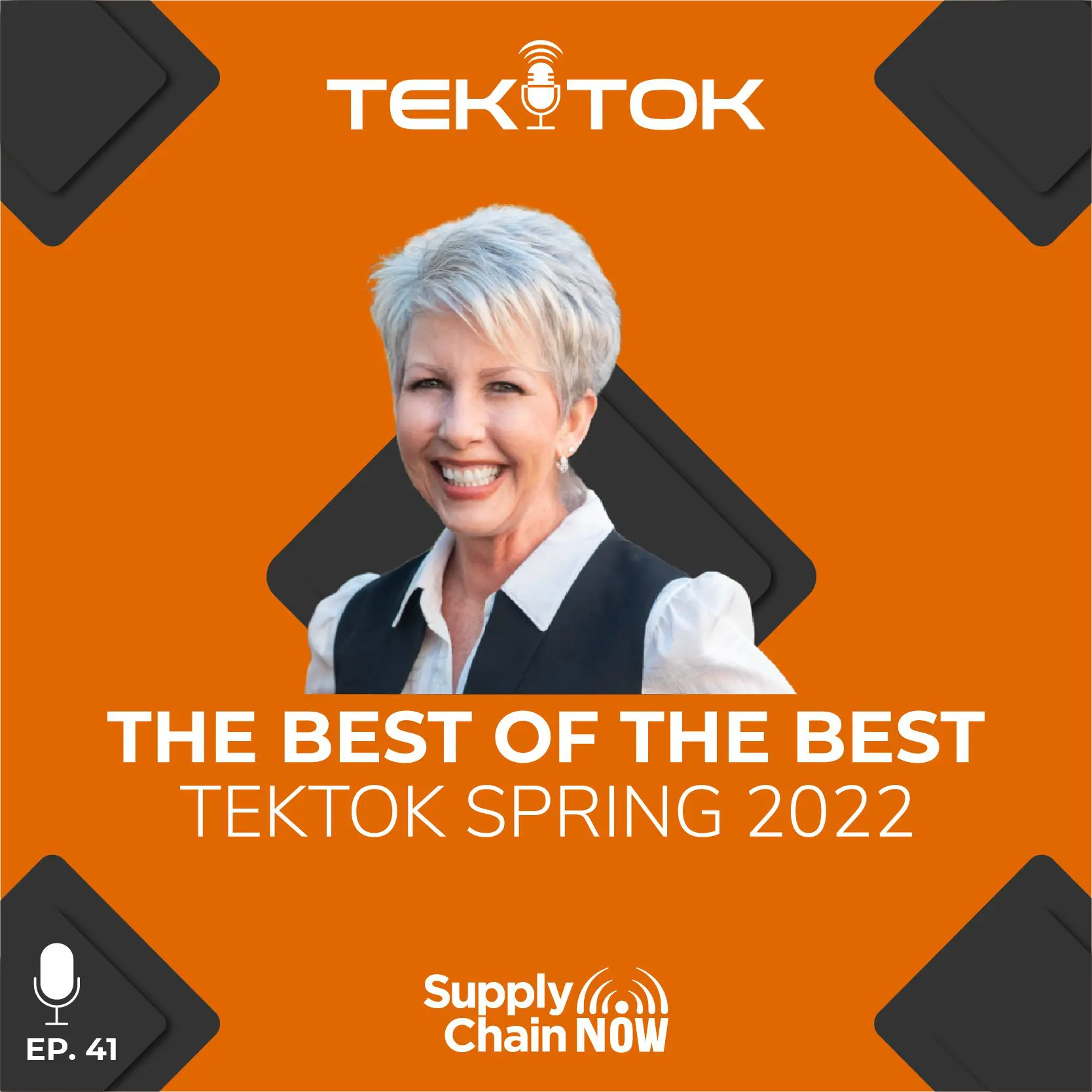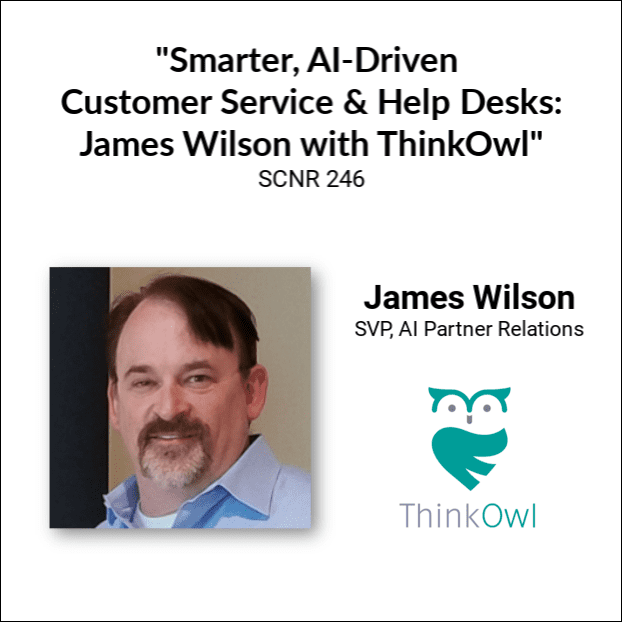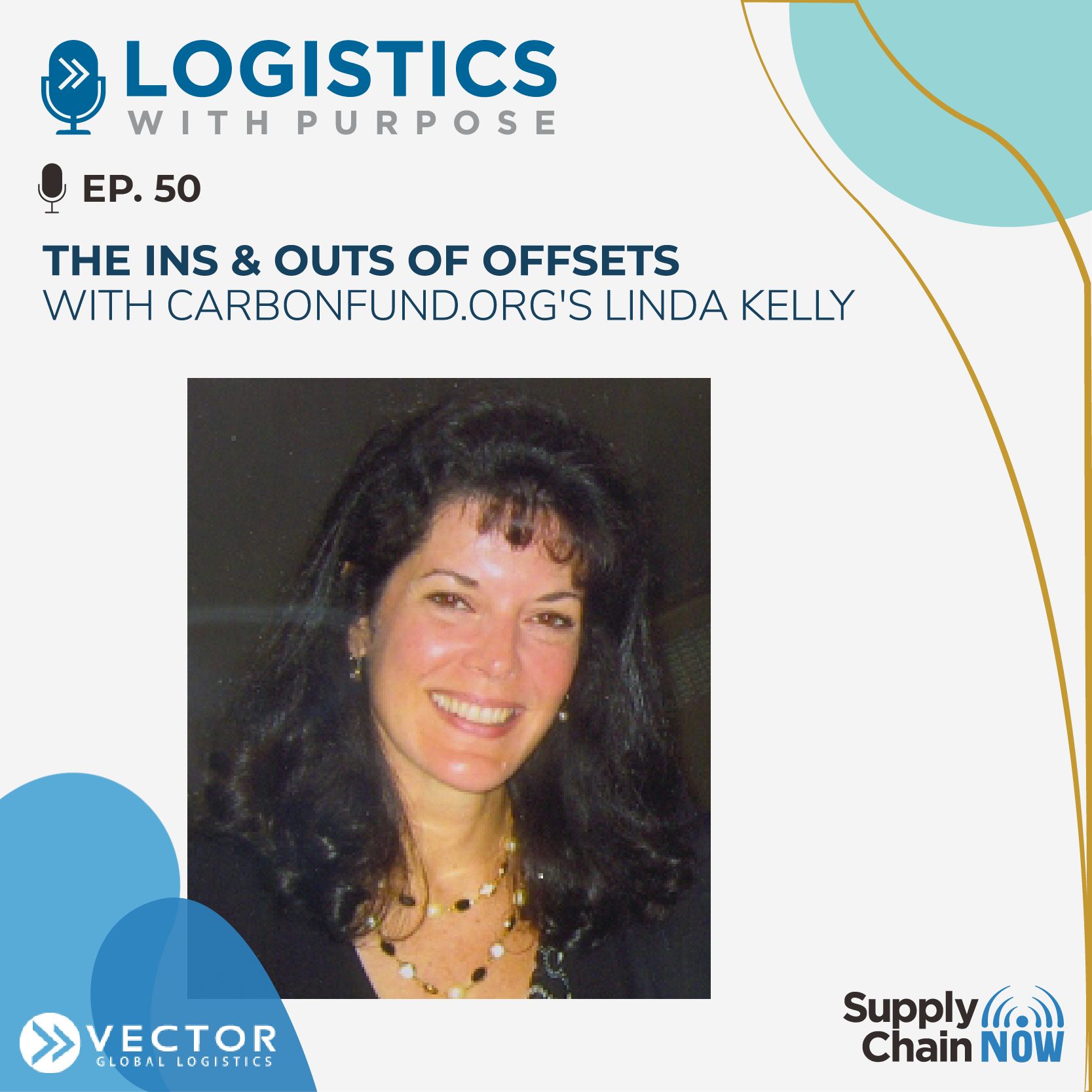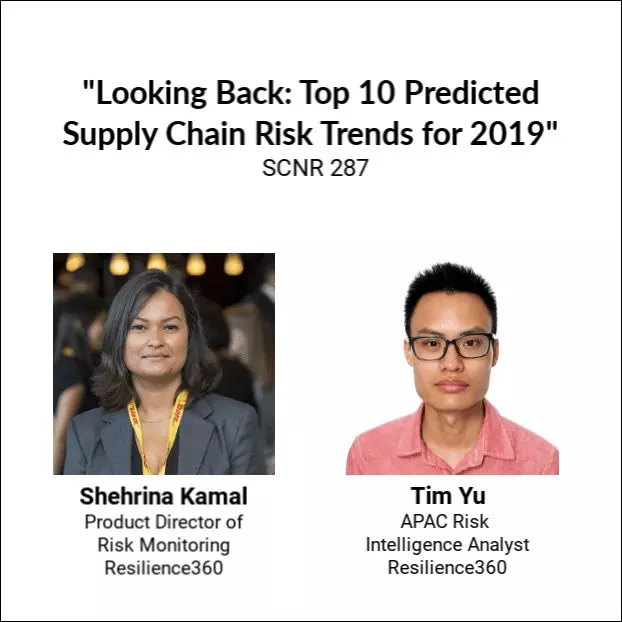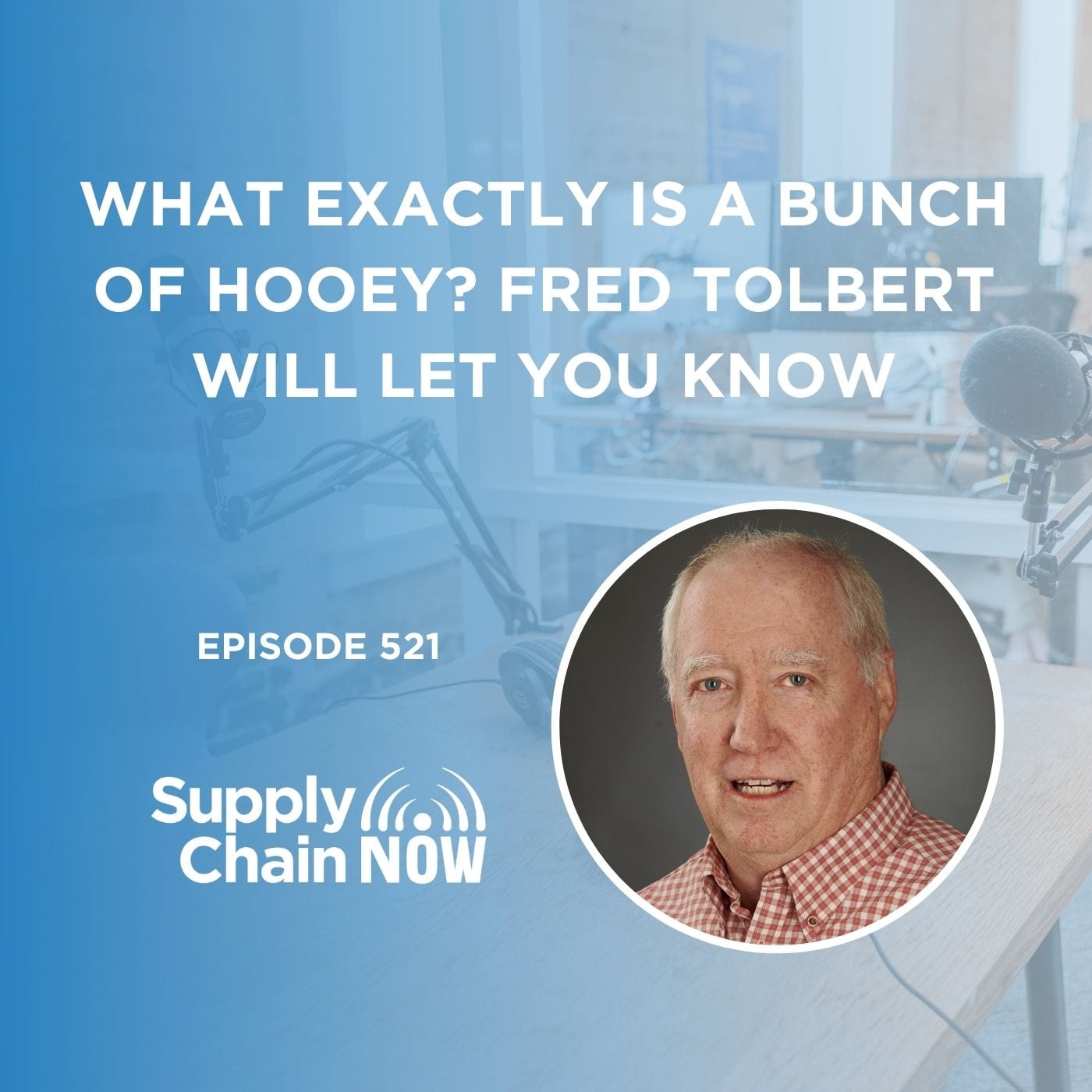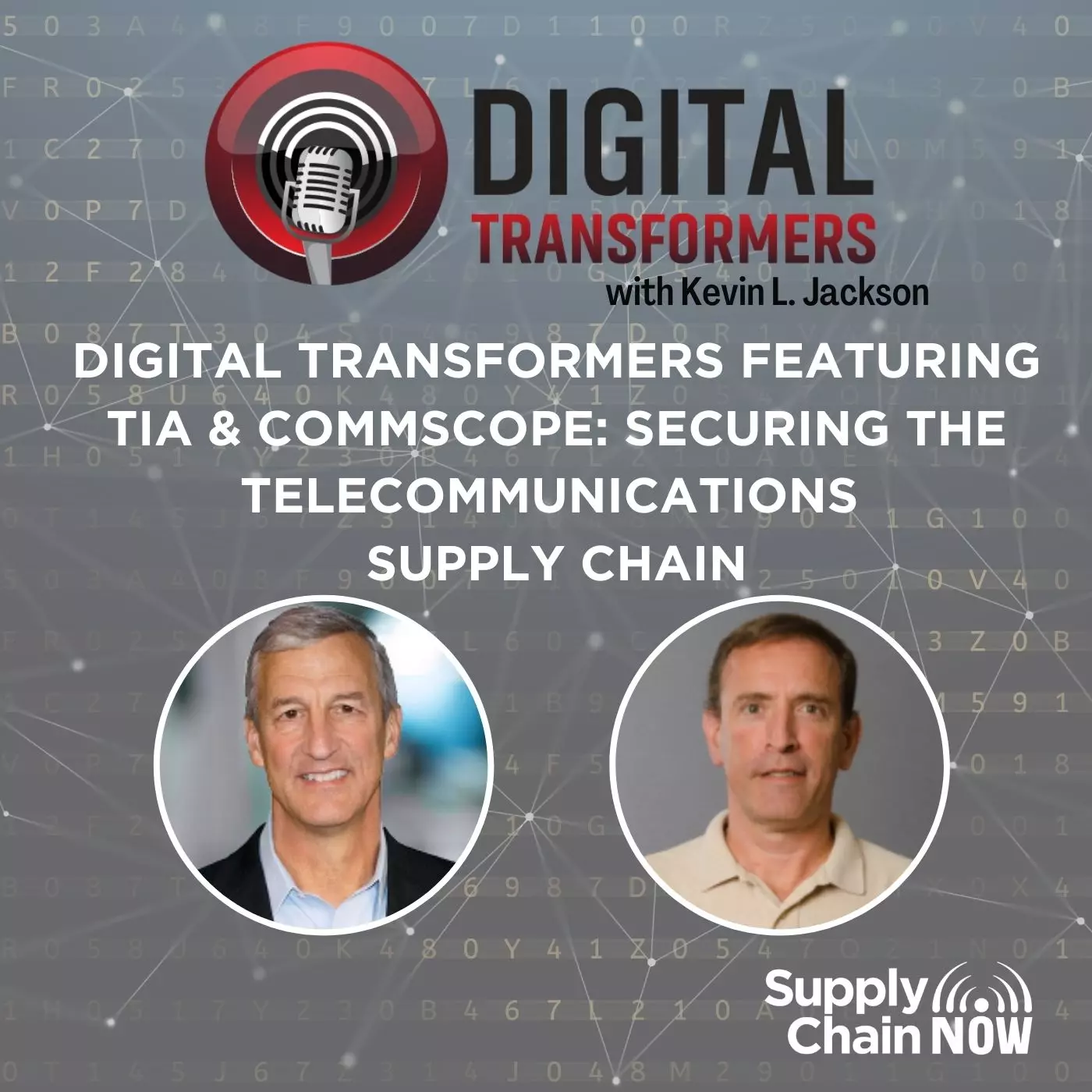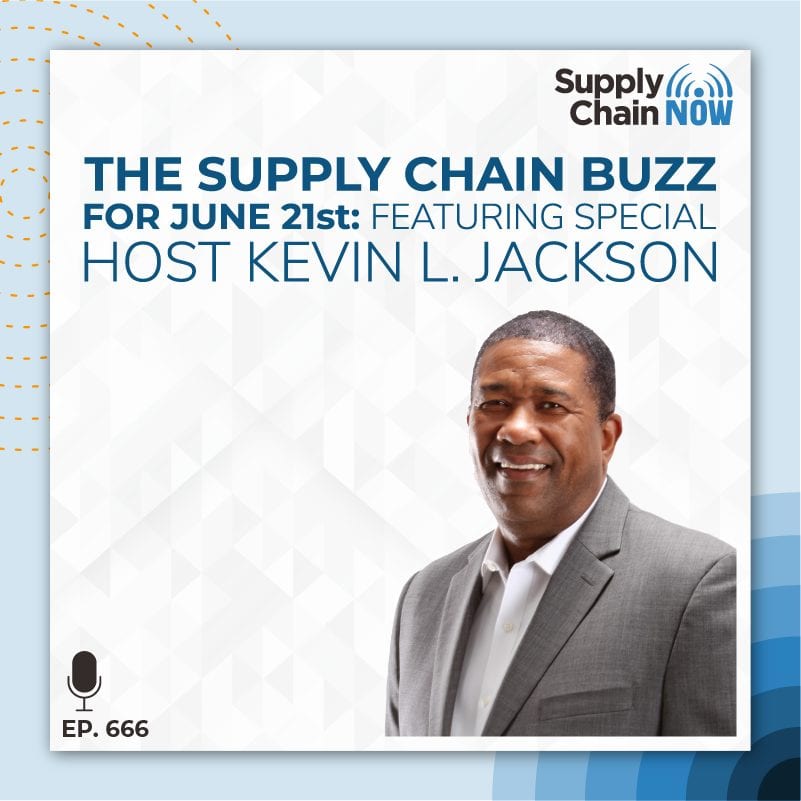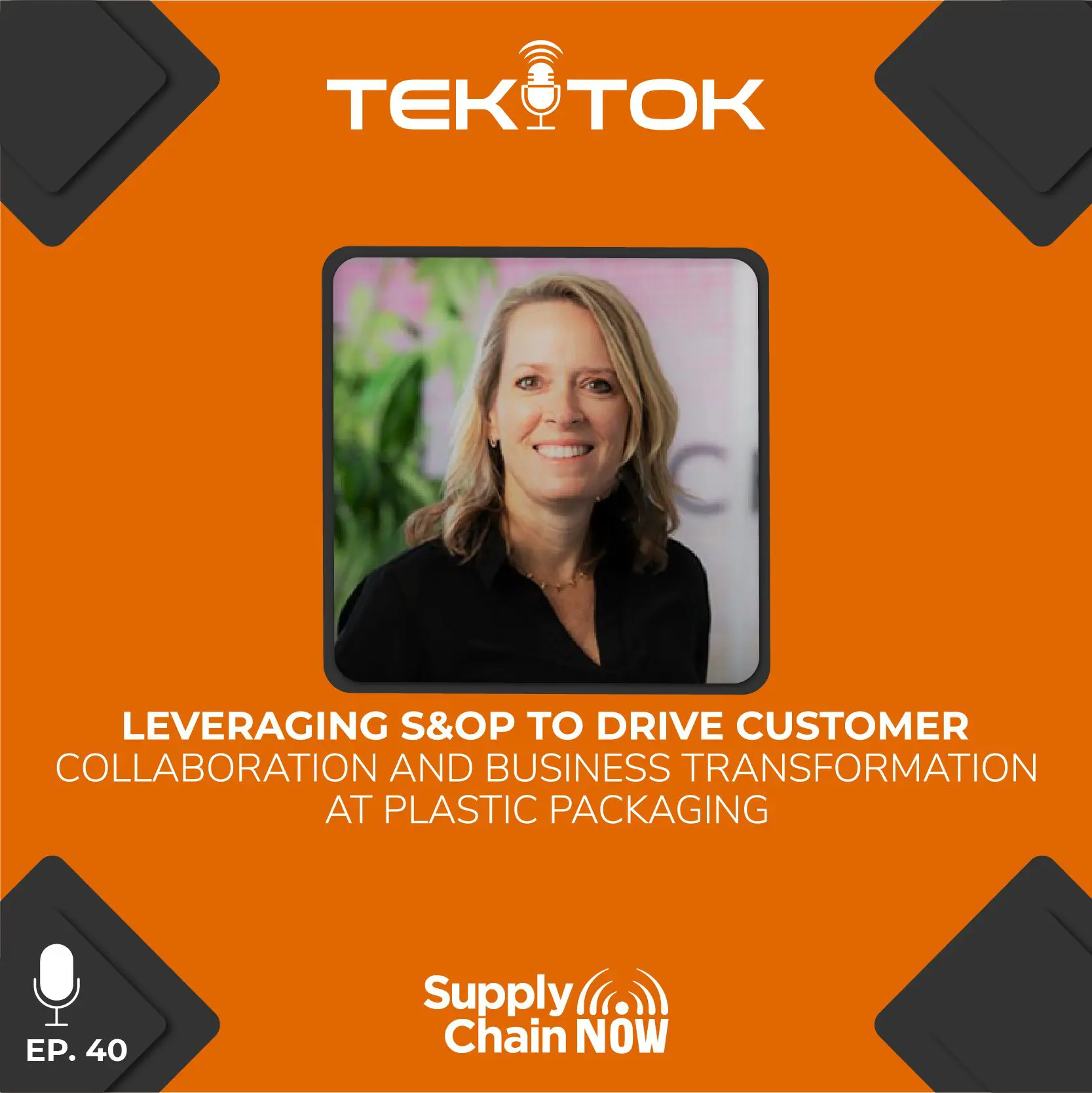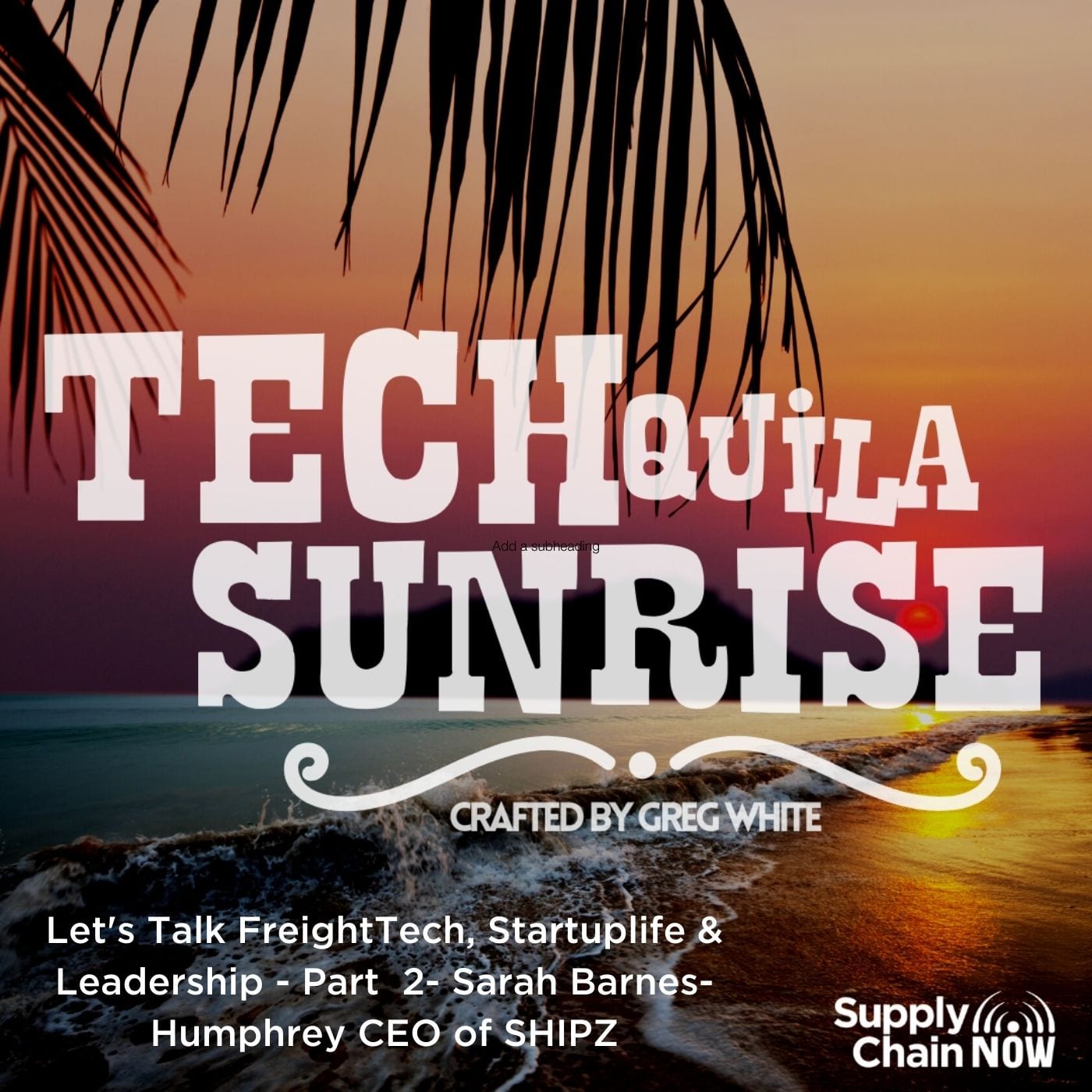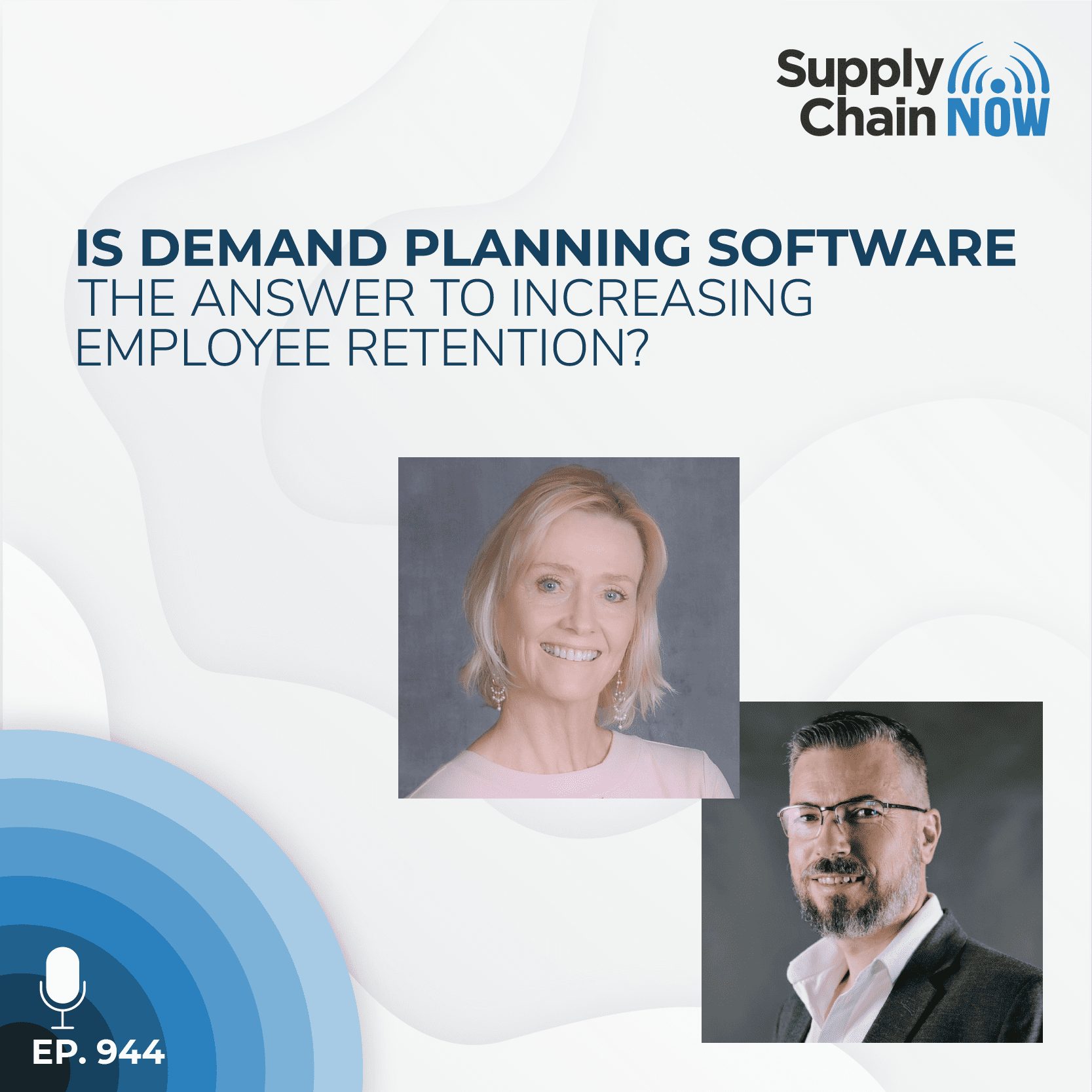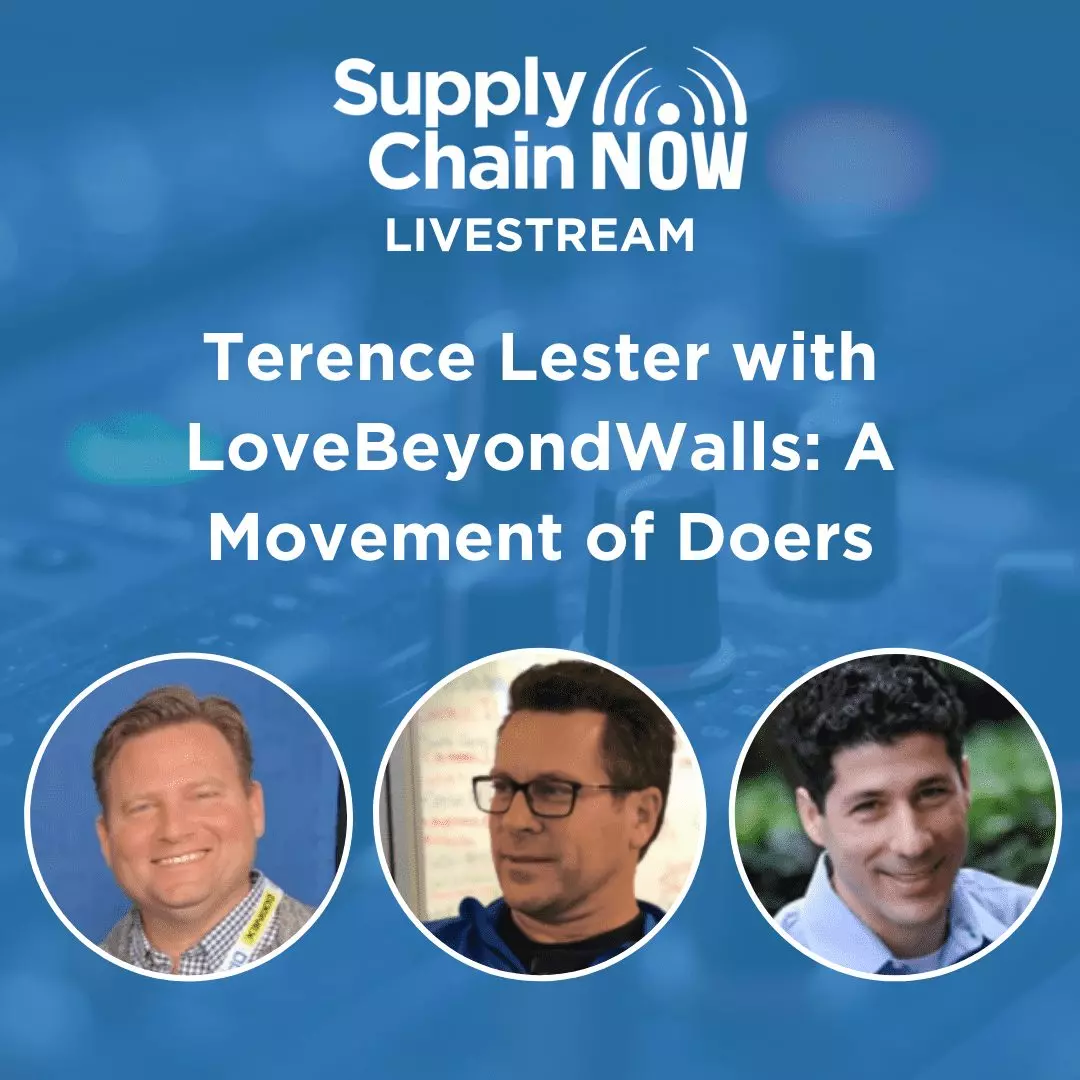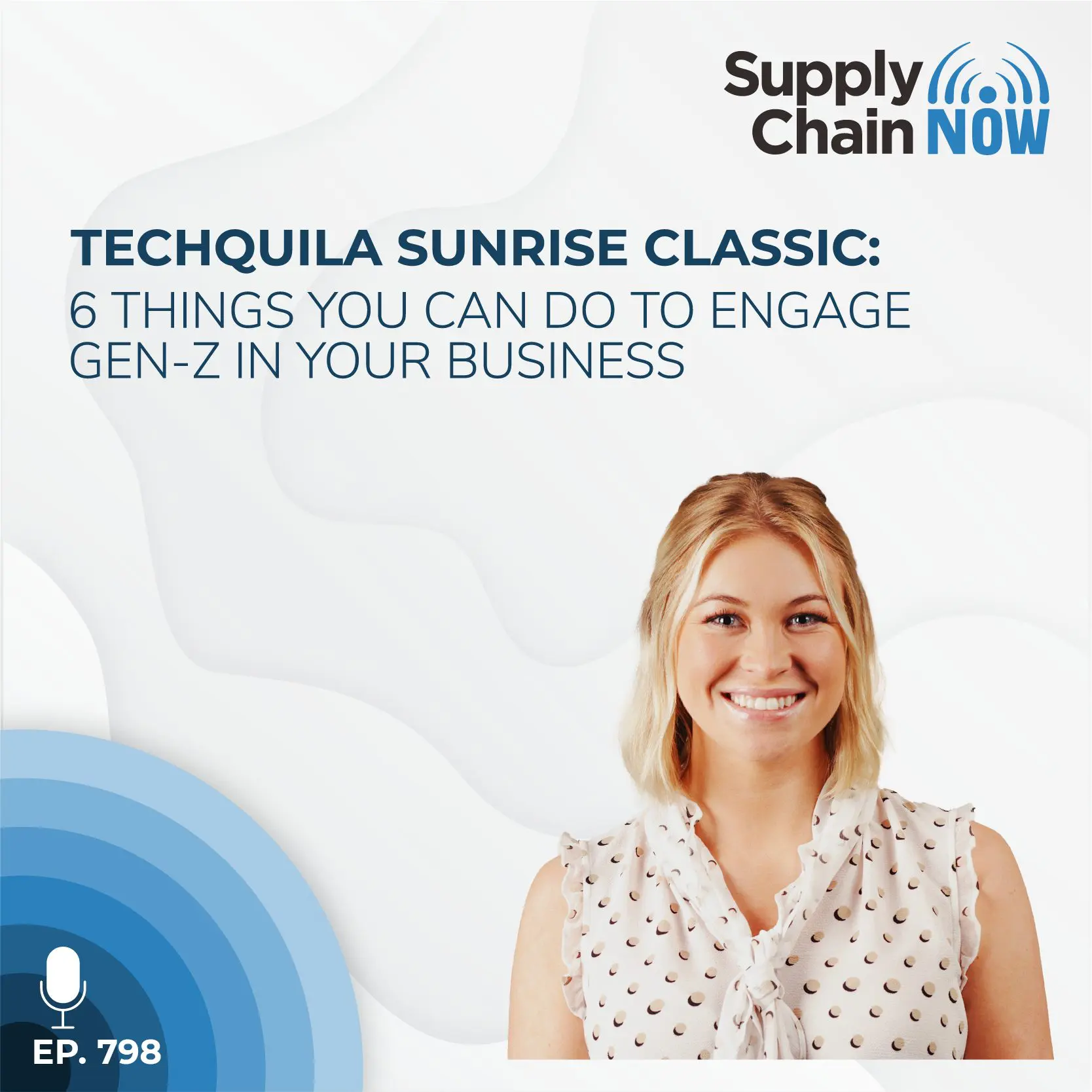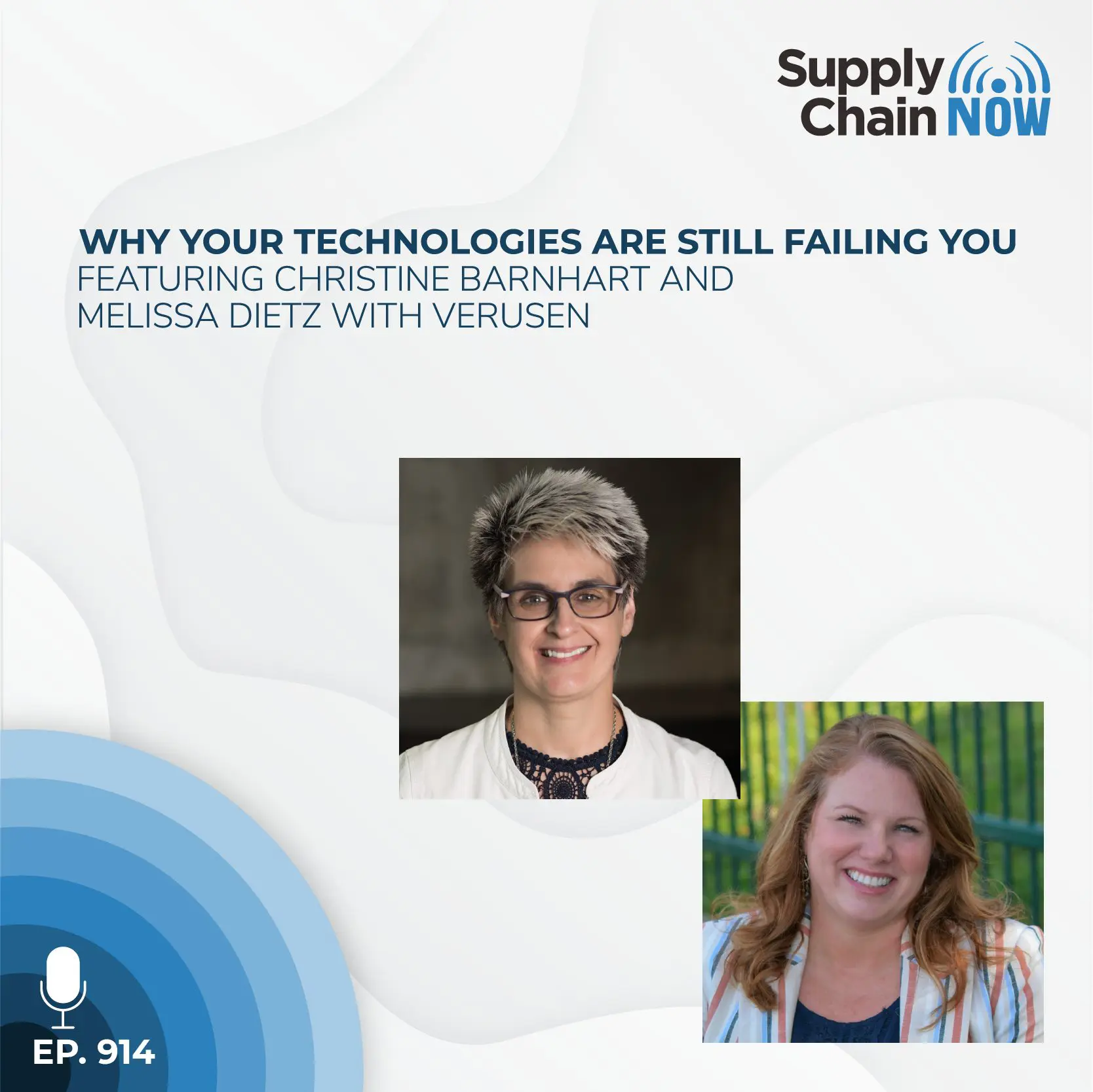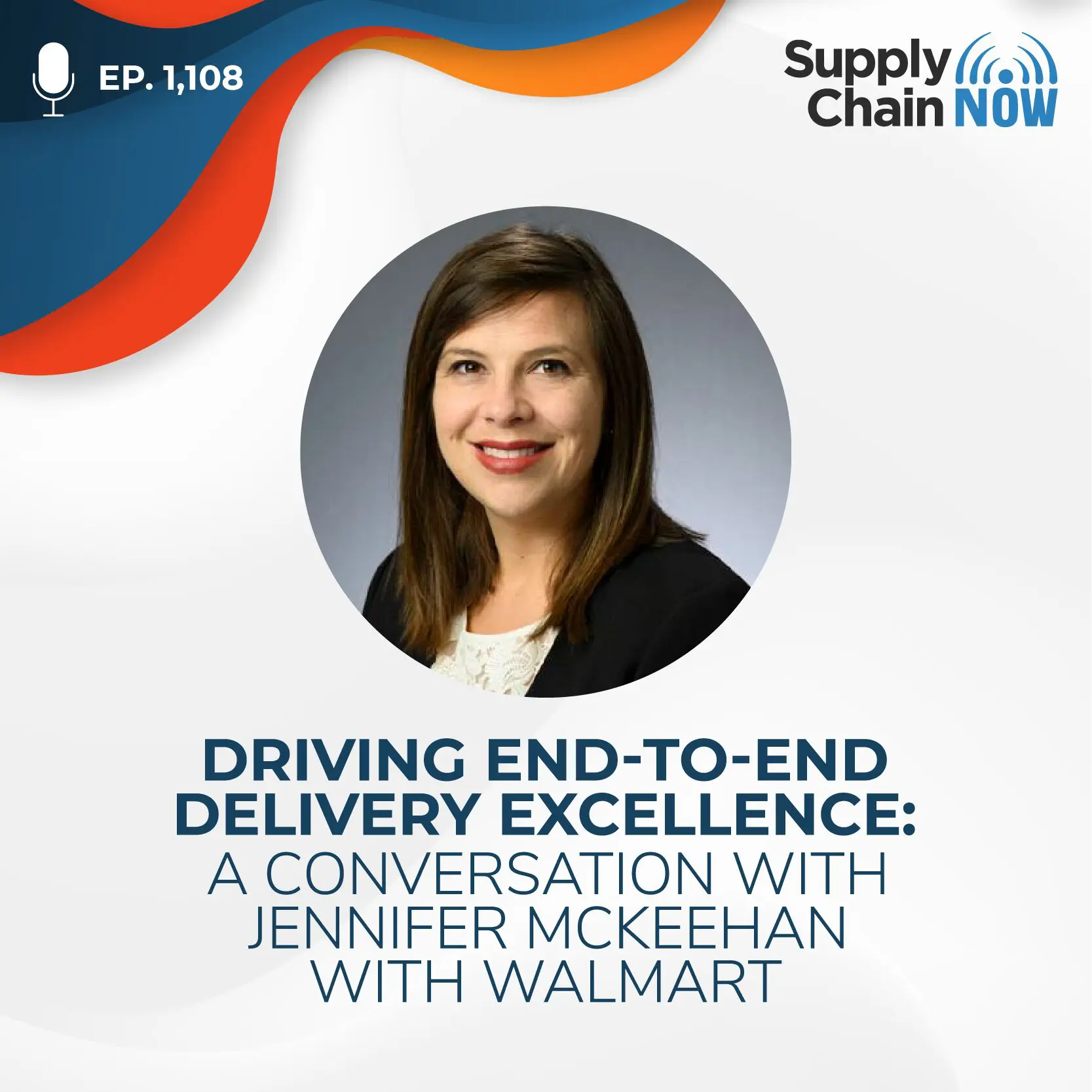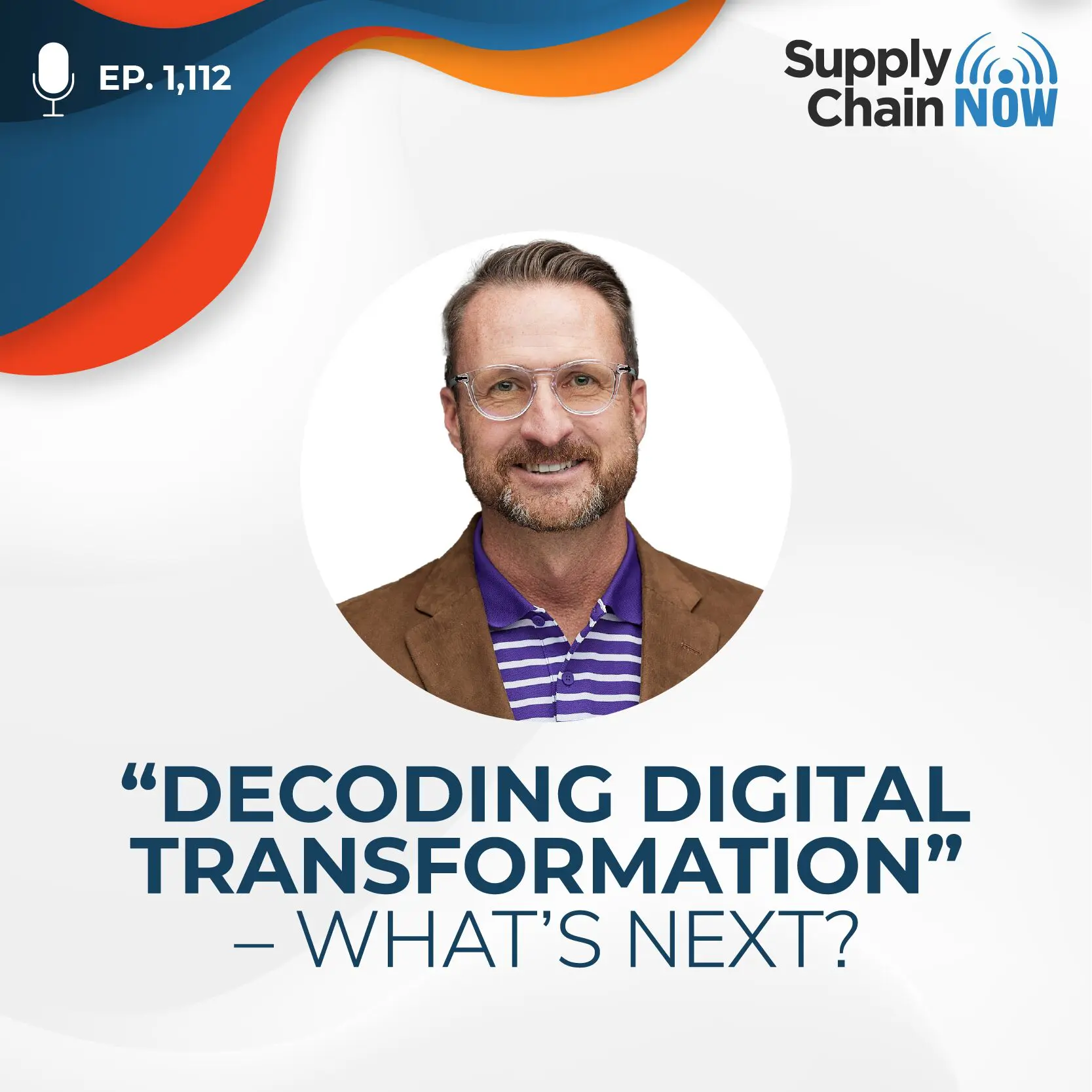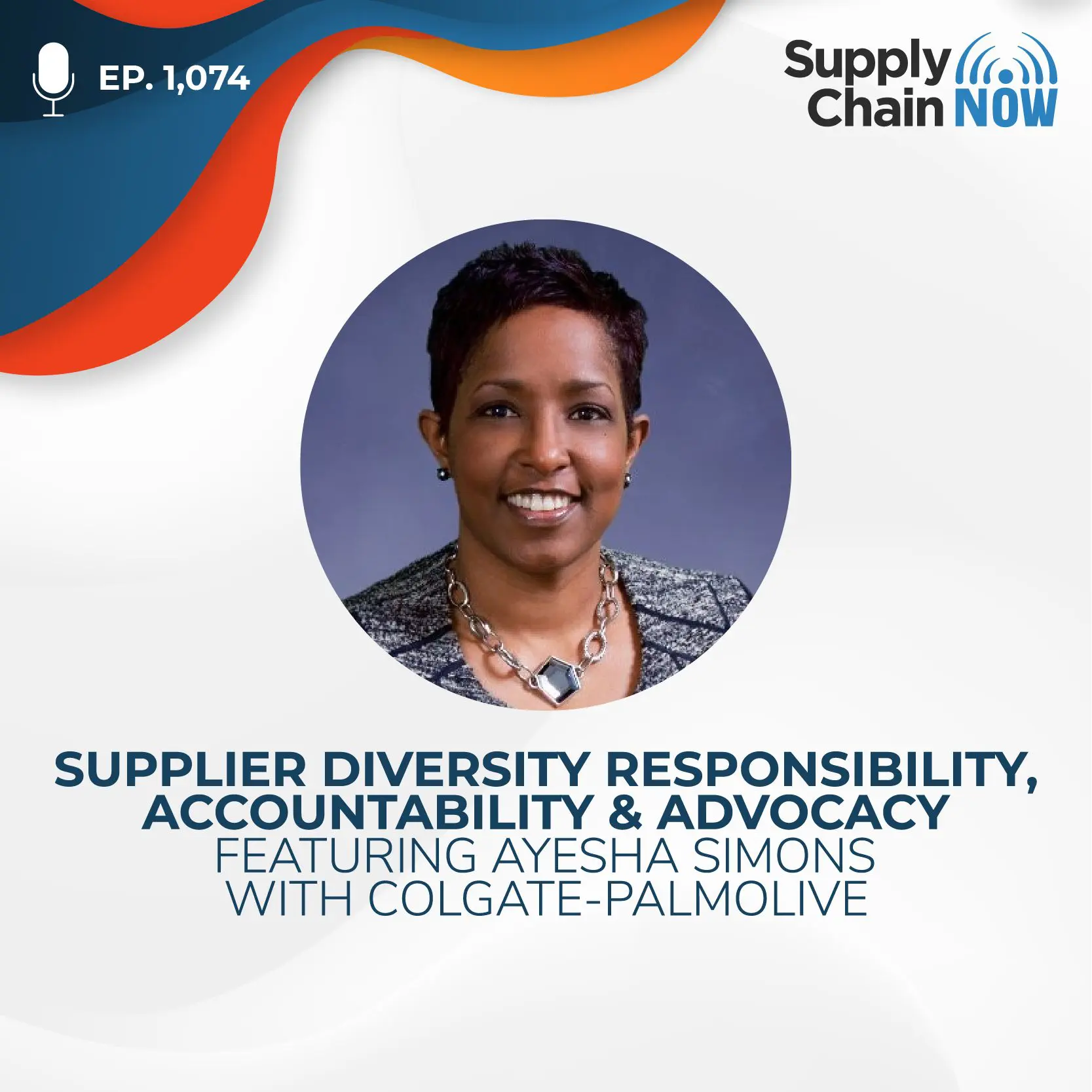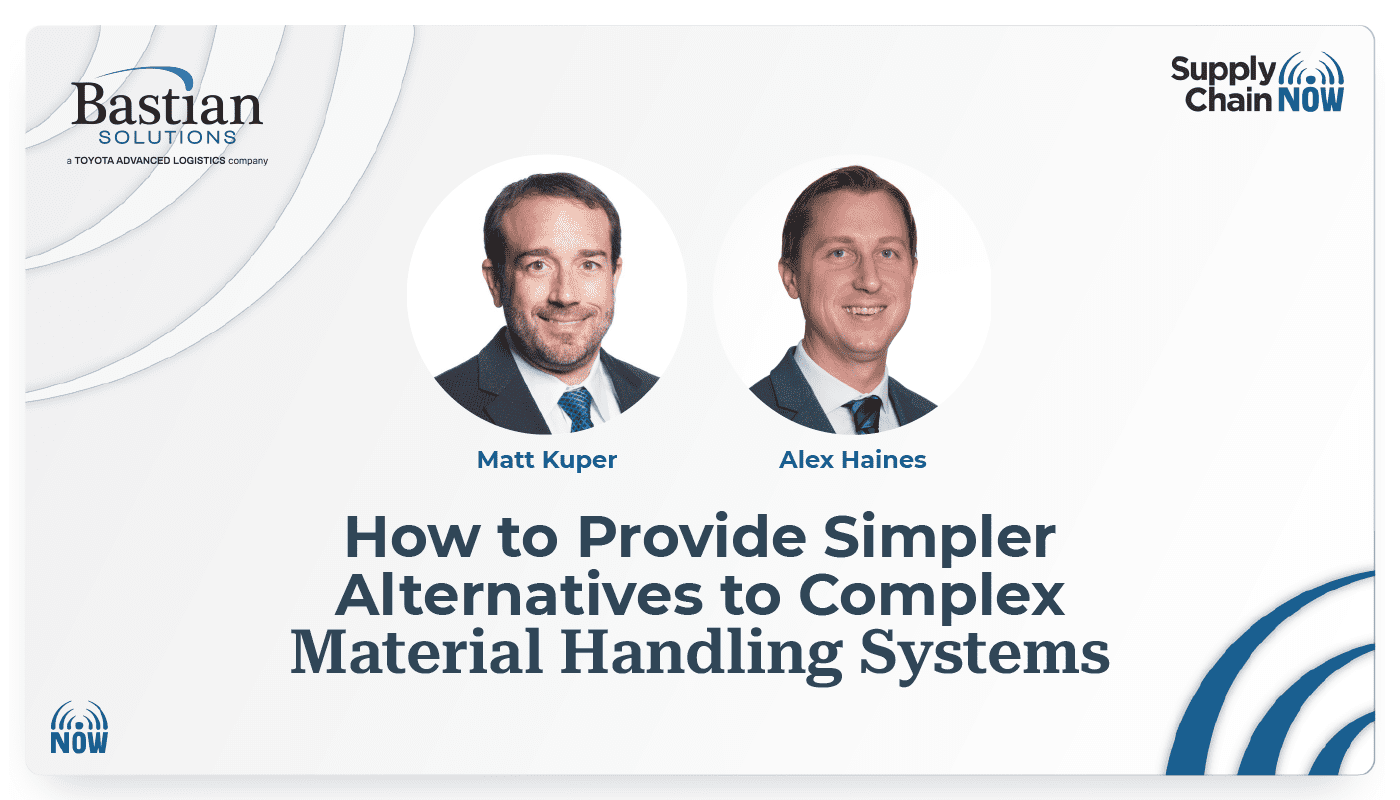
The big goal is to be around for a long time and make sure that you're supporting your customers. The only way to do that and to make sure that they're successful so that you can be successful.
- Alex Haines
Episode Summary
What are point solutions? What problems can they solve? Why is it a good approach for companies that are starting out on their automation journeys?
In this episode of Supply Chain Now, we have two experts with a combined experience of more than 35 years of experience in materials handling and global supply chain strategy.
Both are from Bastian Solutions, a Toyota Advanced Logistics company that specializes in the design and delivery of distribution and production solutions for clients in the United States, Canada, India, the Middle East, Mexico and South America. Alex Haines is the company’s Manager of New Business Development, and he joins hosts Scott Luton and Kevin L. Jackson alongside VP of Global Sales and Applications, Matt Kuper.
During the conversation, Alex and Matt introduce and explain the merits of a point solutions approach to automating supply chain and warehousing processes. With relatively few barriers to entry, they outline how ‘becoming smart’ can be broken down into manageable pieces and projects which can be taken care of one step at a time.
Tune in as the duo draws on their vast experience to provide valuable insights on this and a range of other topics. Listen out for…
· How organizations can cut through the sea of supply chain automation technologies and make sure they select the right options.
· The importance of having smart people around you.
· Why aftersales support is critical to making the most out of automation solutions
Episode Transcript
Intro/Outro (00:03):
Welcome to Supply Chain Now, the voice of global supply chain. Supply Chain Now focuses on the best in the business for our worldwide audience, the people, the technologies, the best practices, and today’s critical issues, the challenges and opportunities. Stay tuned to hear from those making global business happen right here on Supply Chain Now.
Scott Luton (00:32):
Hey, hey. Good morning, good afternoon, good evening, wherever you may be. Scott Luton and Kevin L. Jackson with you here on Supply Chain Now. Welcome to today’s live stream. Kevin, how you doing today?
Kevin L. Jackson (00:42):
I am doing great, man. You know what, I’m pretty sure winter is over. We had a great cherry blossom festival here in D.C., and summer is peeking around the corner, man.
Scott Luton (00:56):
Hey, don’t rush us. I’m not looking forward to those 114-degree days here in Georgia. But I like how you think and, you know, we’re moving fast forward into a beautiful springtime season. But Kevin, speaking of beautiful things, simplicity is a beautiful thing, am I right? Especially in this complex world we live in, global supply chain and otherwise for that matter.
Scott Luton (01:18):
Today, we’re going to be talking with a couple of business leaders as we look into simpler but effective and successful alternatives to material handling and a whole bunch more. Now, our challenges, Kevin, don’t always require the most complex, sophisticated, and expensive systems that sometimes can bring in friction into operations. Let’s keep it simple if we can. Am I right, Kevin?
Kevin L. Jackson (01:38):
It’s really important to try to go for that simplicity, especially in today’s world of constant change.
Scott Luton (01:46):
I completely, completely, wholeheartedly agree with you. So, folks, we got a great show teed up. Kevin and I are looking forward to talking supply chain and supply chain tech in just a moment. But hey, two last reminders before we get going here. Hey, let us know what you think. Share your comments throughout this live discussion. And of course, Kevin, if folks enjoy today’s show, be sure we want them to share it with their friend, their network, because they’ll be glad they did, am I right?
Kevin L. Jackson (02:11):
You know, these live streams are so much fun. But if you miss the live stream, it’s on demand too. So you can catch this later.
Scott Luton (02:17):
That’s right. On demand, baby. So, Kevin, I want to bring in our two featured guests today. Folks are in for a treat.
Kevin L. Jackson (02:24):
All right.
Scott Luton (02:25):
Matt Kuper, VP Global Sales and Applications with Bastian Solutions, and his colleague Alex Haines, director Biz Dev and Strategic Accounts and who I like to call the Ray Romano of Global Supply Chain. Stay tuned.
Scott Luton (02:39):
Hey, hey. Alex, great to have you back. How you doing?
Alex Haines (02:42):
I’m doing great and hopefully still sounding like the Ray Romano supply chain.
Scott Luton (02:46):
Oh, gosh. To our listeners and viewers out there, listen to that. I’m going to tell you, you’ll make the connection in just a second. And Matt, how you doing? Great to have you here.
Matt Kuper (02:54):
I’m doing great. Thanks for having me.
Scott Luton (02:56):
You bet. You bet.
Scott Luton
All right. Kevin, we got a lot to get into, but before we go any further, let’s start with a fun warmup question. So, folks, Alex, Matt, Kevin, all you all out there. Looks like we’ve got some Kansas City fans tuned in. Great to see you. Today is World Cloud Security Day. Kevin, that’s just for you. It is World —
Kevin L. Jackson (03:11):
- Yes, yes.
Scott Luton (03:13):
It’s World Party Day, I’m not sure where that started. And it’s American Circus Day. So, somewhere in the Ringling Bros. and Barnum & Bailey Circus and their relatives are celebrating maybe with a parade or two. But we want to dial it in, Alex and Matt, because Kevin and I have done our homework on “The Great Outdoors”. And that’s not just a great movie from the ’80s with John Candy and Dan Aykroyd, right? But both of you all, Alex and Matt, you’re big outdoors enthusiasts, hiking, mountain climbing, water skiing, who knows? So, I want to ask both of you all, I’ll start with you, Alex. What has been one of your favorite and recent activities outdoors?
Alex Haines (03:47):
Good question. I would say besides taking my kids out camping and doing a little backpacking, probably climbing Mount Rainier with my buddies. That was great. Wonderful achievement. A lot of fun and I loved it. Beautiful. Couldn’t ask for anything better. So, hoping to get to the top of Grand Teton this year, we’ll see.
Scott Luton (04:05):
- So —
Kevin L. Jackson (04:06):
Oh, wow.
Scott Luton (04:07):
— Mount Rainier. I’m trying to think of my geographic facts. That’s not the tallest peak in the U.S. is it?
Alex Haines (04:12):
It is not. Mount Whitney is, we did that last year. But Mount Rainier is the most glaciated peak. So, it’s — there’s no real easy way. You got to hike up glaciers and use crampons and axes and make sure you don’t fall in serac, which is cool. It makes it part of the adventure, right? So, hopefully —
Scott Luton (04:26):
Sounds like supply chain, Alex.
Kevin L. Jackson (04:28):
Yes, that’s sounds scarier. But it’s, kind of, interesting because my son lives outside of Seattle and they go up Rainier all the time, but they don’t bring all their gear unless you must go past the red line or something.
Alex Haines (04:42):
You got to go the top. You get up so high, but you go up the top and make sure you don’t kill yourself. Yes, it’s great.
Scott Luton (04:47):
All right. Alex, we’re going to have to get pictures or it didn’t happen. So, next time you join us you’re going to have to bring some pictures, all right? It sounds beautiful though.
Scott Luton (04:54):
All right. Matt, that’s going to be tough to beat. Alex over there climbing peaks from around the world. What do you do now? You’re on the lake a lot, I understand, Matt, is that right?
Matt Kuper (05:02):
That is correct. I like to keep it more on the ground level and not quite so high in the air. It’s not quite as dangerous.
Scott Luton (05:08):
Heard that.
Matt Kuper (05:09):
I love to be out in the water. I love to water ski, wakeboard, wake surf, anything on the water just is my happy place. And after a week of doing supply chain excitement, I like to pull off a little bit of steam on the water.
Scott Luton (05:22):
Oh, I love that. Kevin, I think one of the things he mentioned was wakeboarding. Have you ever wakeboarded behind a speedboat, Kevin?
Kevin L. Jackson (05:30):
No, I have not. You know, one of those skidoos dragged me behind it for a while. Would that count?
Scott Luton (05:37):
That wasn’t intentional. Is that what you’re saying, Kevin?
Kevin L. Jackson (05:41):
No, no, no. But, you know, I enjoy the outdoors, but I don’t know if chasing the neighborhood feral cat counts as an outdoor activity. And I was actually hoping we could go back to party day, hey.
Scott Luton (05:56):
Come Friday we will. OK? We’ll celebrate a couple days late.
Kevin L. Jackson (05:58):
All right.
Scott Luton (06:00):
Matt and Alex, thanks for sharing a little bit about what you all do when you’re not doing big things across global supply chain and then some because Bastian Solutions clearly has been on the move. And Alex, it’s great to have you back and get an update on a lot of things you all got going.
Scott Luton (06:13):
All right. So, to that end, that’s a perfect segue, Kevin, Alex, and Matt, perfect segue. Because we want to offer up some context here on the front end. So, Alex, as I mentioned, great to have you back. Let’s remind a few folks out there. I know Bastian Solutions has grown since the last time you were with us a year or two ago. But what does the company do in a nutshell? And tell us a little bit about your background.
Alex Haines (06:32):
Sure. No, appreciate you asking. So, Bastian Solutions been in business for 72 years. In 2017 we were acquired by Toyota, so we’re part of the Toyota Advanced Logistics Group. And really our focus is integrating multiple technologies for customers.
Alex Haines (06:47):
So, we’re a supply chain automation integrator. We’re focused on automating material handling, primarily in distribution centers, also in manufacturing plants. We’ve got sites across North America, Canada, Mexico, and we support our customers globally through Toyota. But we’re kind of focused on finding the right solution as an engineering company first.
Alex Haines (07:06):
In terms of my background, been with Bastion in a sales capacity. During my time, we worked with some of our key accounts, worked on what we call a solutions account executive, working on some of the bigger projects we did. And then I’ve been also supporting business development as well as some of our key customers. And my background’s really been supply chain across automation as well as inventory planning globally. So thanks.
Scott Luton (07:27):
Yes, Alex — I can tell you, Kevin, you may have picked up with us on the pre-show. Alex, first off, he’s a fellow space enthusiast like the two of us, Kevin. But that engineering focus he mentioned, it’s very evident in every conversation I have with Alex. Objectives, what are we doing here? And then we get started and I bet he applies that with laser-like approach to helping folks find the right solutions for the right business needs. So, Alex, great to have you here as always.
Scott Luton (07:51):
Matt, so now that we’ve kind of connected dots for folks about what Bastion does and a little bit about Alex’s background. How about your background?
Matt Kuper (07:58):
So, out of college I decided to enter the supply chain world and I’ve done everything in this space from straight engineering solutions to project management, to account management. I came to Bastian to do solution account executive like Alex talked about. And then from there went on to do more and more leadership roles inside of Bastian.
Scott Luton (08:17):
- Man. So, Kevin, what I’m hearing there from Matt is he’s done a little bit of everything across supply chain space. Did you hear that too, Kevin?
Kevin L. Jackson (08:24):
I was really surprised about the fact that he said out of college I went straight into supply chain. It wasn’t like, you know, I wanted to be a fireman. I wanted to be an astronaut. I want to go straight into supply chain. Like, wow. You know, how did you do that with your daddy and your daddy’s daddy and your mama’s mama in supply chain? It was in the family?
Matt Kuper (08:46):
Kevin, I’m a first-generation supply chain person. Truth be told more than supply chain was the fact the job was in Chicago and I wanted to live in Chicago. So that might be why we got into supply chain, but let’s keep that between us.
Scott Luton (09:00):
Well, I love that. And kidding aside, I think whenever I meet first generation supply chain folks, it just reminds me of the great work we all have to do to keep that pipeline coming in because there’s so much great talent that just isn’t aware of the immense opportunities that global supply chain offers, so.
Scott Luton (09:16):
And speaking of Kevin, Alex, and Matt, I was doing a little poking around. I’m good at that, doing some little homework. And Bastian Solutions, speaking of talent, has been named a best place to work this year in a variety of states coast to coast. So, I love organizations that invest in their cultures and their jobs and their people.
Scott Luton (09:33):
All right. So, I want to get in more into the supply chain focused discussion here today. And we’re going to be talking, Kevin, really focusing on successfully and powerfully finding some extra simplicity in our supply chains, which again is a beautiful thing, especially when it comes to keeping things moving. And Kevin, that’s the backbone of supply chain. We’ve talked about it in holistic terms, but we got to keep things moving, right? Movement is the name of the game.
Kevin L. Jackson (09:58):
Well, yes. But, you know, over the past few years we haven’t been able to figure that out. You know, respect the supply chain being onshore or going offshore or going midshore or multiple shore or, you know, do we just throw it all away or rebuild it? Simplicity is a challenging thing in that environment.
Scott Luton (10:19):
It sure is. There’s lots of friction and complexity out there and I thank you for bringing that back to our attention, you know. So, whenever we can find simplicity, especially simplicity that really works, that’s what we got to lean into.
Scott Luton (10:31):
So, Alex and Matt, to that end, I want to level set a bit. There are so many different phraseologies, I’ll put it out there, across global supply chain. We found some commonality in some places, but in other places we kind of talk about a pail (ph) on this end and a bucket on that end. So, let’s bring everybody together here. When we talk about automated point solutions and distribution process solutions, Alex, what are we talking about?
Alex Haines (10:52):
I think it goes to your theme of simple. That’s really what it is. So, point solution is something that’s typically simple to design, install, support. They’re typically solving a really specific problem. So, if you look at the distribution center, you’re doing a lot of different things. But this solution or these solutions are really, kind of, focused on looking at one area. And how do we solve that particular problem for the customer?
Alex Haines (11:15):
So, some people will call these as, like, productized solutions. So, it’s not a product like you would buy and you just drop it off and you start running it, but it’s closer to that than an integrated solution. So, it’s something you’re going to put on site, it’s going to need some type of engineering design and interface work, but it’s ready to go pretty quick. You can deploy them quickly, you can do it at a lower cost, at a lower risk. It’s something that’s going to solve that particular biggest area of pain.
Alex Haines (11:39):
And so, there’s been more — you’ve seen all this investment and focus on more of these, sort of, productized solutions. And looking at ways to say, we know this is a problem. Let’s find a more easy way to solve this problem with something somebody can do quickly and they can do it at a lower cost and lower barrier entry. Especially because a lot of customers that have these problems, you know, it’s harder for them to justify these types of investments over multiple years. How do you do it over a shorter timeframe? So, that’s why those types of productized solutions have seen a lot of traction. We’re talking about these things with customers and trying to just keep it simple.
Alex Haines (12:10):
And then on the other end you’ve got integrated solutions which are really typically more complex. They’re customized. They’re going to solve more challenges and more problems. They’re going to take more time to engineer. They’re going to take more time to understand the business requirements. That’s kind of the other end of the spectrum. And so, I think we’ll talk about that probably in a bit.
Scott Luton (12:25):
Yes. And I’m going to come to you next, Matt. But I love a couple of themes there from Alex. Focus is such a powerful thing, right? It’s such a powerful thing whether we’re talking about in a distribution center, manufacturing center, or in startups, right? And all points in between. And being able to size solutions with what you need, right scale, the right solution at the right time for the right pain in the business. I love that.
Scott Luton (12:47):
Matt, what else would you add as Alex was talking about those two different approaches?
Matt Kuper (12:52):
The point solution in general is really good for entering into that automation space. It’s starting your automation journey. Because as Alex talked about, it’s very simple. You can put that solution in place and get up and running very quickly and start to recognize that ROI right away.
Scott Luton (13:08):
I love that, Kevin. Hey, we’re all at different moments in the automation journey as Matt’s talking about, right? We’ve got some early movers, early adopters that are well down the path, right? And then you have other organizations that haven’t done as good of a job. Many of these groups are trying to get business done today and they’ve been a little bit slower in trying to find the right toehold in their automation journey. And I like how Matt says, this point solutions kind of allow you to toe dip it, right, and kind of crawl before you walk before you run. Your thoughts there, Kevin?
Kevin L. Jackson (13:39):
Yes, you know, listen Alex, the thing that came to my mind was, you know, you have to meet the customer where they are. You know, some customers are at the very beginning of the journey or they’ve been wayward and they’re trying to figure out how to automate and they need something to get a quick win, that quick hitter. So, the point solution, although we may address it as being simple, it’s effective, right?
Scott Luton (14:04):
Right.
Kevin L. Jackson (14:04):
And that’s the most important aspect of it.
Scott Luton (14:06):
That’s an excellent point. First off, whenever I hear wayward, I think it wasn’t the Boston tune, “My Wayward Son” or something like that. But secondly, and kidding aside, simple does not mean it’s not powerful or effective.
Kevin L. Jackson (14:19):
Right, right.
Scott Luton (14:20):
I mean, really —
Kevin L. Jackson (14:21):
Yes.
Scott Luton (14:21):
— it’s a very complex process, oftentimes, to find the simplicity that really makes it happen.
Kevin L. Jackson (14:26):
Sort of like a magician, right? It looks so simple, but when you understand what happens in the background, it’s very, very complex, right?
Scott Luton (14:37):
Yes.
Kevin L. Jackson (14:37):
But from the user’s point of view, it’s simple.
Alex Haines (14:41):
We like to make the analogy with customers that, look, everybody knows the cultural norms that Apple pioneered and the expectation is get there. I mean, the hardware in our pockets and the software is exponentially complex, but it’s very simple to us. And, so that’s where you see the market going.
Scott Luton (14:57):
Excellent point. I love that. So, let’s talk about it being more accessible. It’s a great segue to the next question. I want to start with you Matt. You know, what makes this automation point solutions, in your experience, much more accessible for organizations? You called it the — those that are really starting the automation journey in some cases. What helps with that? Making it easier to plug and play, so to speak?
Matt Kuper (15:19):
There’s just a lot fewer barriers to entry. If you think about automating a half a million square foot warehouse, it’s a very large CapEx investment. And so, if you think about, I want to solve a specific problem, it takes that CapEx down to a much more manageable size for a lot of organizations.
Matt Kuper (15:36):
Additionally, they’re normally a lot quicker to implement. When we do a large automated system, it can be a three year process between the analyzing, the design, the installation, and then the go live, right? There’s a lot of lead time in there. So, if you’re going to make that type of commitment, you don’t really start from that crawl space to then go into that, I call it sprinting, I guess, or running right?
Scott Luton (15:58):
Right.
Matt Kuper (15:59):
So, that quick turn is important, I think, and makes these solutions more attractive. Really, they’re just not as complex as that large automated system, right? You cannot be as disruptive to your operations.
Scott Luton (16:12):
Love that Matt. And Alex, as Matt was sharing his perspective there, what came to my mind is organizations where they’ve got a burning pain, burning platform. You find a point solution to address that as quick to implement or get immediate returns and it’ll help them take more steps forward into a more holistic automation journey is what came to my mind. Is that right? And what else would you add in terms of what makes these automation point solutions more accessible?
Alex Haines (16:37):
Yes — no, you’re spot on. I’ll give you a couple examples because I think that just always helps paint a big picture and add some color here. But, like, even really simple things such as we’ve seen a huge increase in just modular conveyor. So what is that typical conveyor? It’s a CapEx. You design it, you understand what your requirements are and you bolt it to the ground, you install electrical, you put controls, you do this whole thing and it’s fixed and it’s there for a specific reason.
Alex Haines (17:03):
I mean, now you look at it and you can go buy the standard spec modular conveyor. I mean, it’s got controls already embedded. The electricals ready. It’s ready to plug into 110. There’s an e-stop and you go, right?
Alex Haines (17:14):
So, you got a customer, real simple stuff. You know, I’m going to bring it off the truck. I’m going to put it in. I’m going to plug it in. It’s going to help me just be more efficient of maybe a sort or moving product through. I mean, even stuff like that.
Alex Haines (17:25):
So, you don’t have to even think automation in terms of robotics and AGVs and AMRs and all these other things. There’s really simple things like that. We tend to also think about, you know, some of these AMRs and AGVs, you drop them off, there’s a limited turn time in terms of understanding the facility and the operations. You map it, you set it up for what you want to do and you get it going. And when you want to make a change, it’s not that hard to make a change. The user interfaces are easy. It’s kind of like using your iPhone, right? Everybody’s trying to be like that. How do I make it more like my phone? Make it simple.
Scott Luton (17:55):
Man. OK. Kevin, that’s music to my ears. One of the element is making it easier on the people, the team, the human factor to have a successful day, right? Kevin, your thoughts?
Kevin L. Jackson (18:06):
Yes, my thought is that humans are always afraid, right? So, you have to address that range of fear. And I think these point solutions, while they’re very powerful, they are focused on, I guess, addressing or eliminating that fear of change. So, you could come in and say, no, you don’t have to, you know, change everything and bring an army of consultants in and take three or four years before you go live, you know. No, no, no. We can come in, we can address. We have the scratch for that itch right now.
Scott Luton (18:42):
Oh, I bet. Hey, when Alex and Matt back up the solution dump truck to the back of the facility, I mean what I’m hearing Alex and Matt talk, I mean it is set up and it’s quick. And Kevin, to your point, it’s not the three-to-four-year implementation. And hey, there’s some cases that that calls for that level of detail in that scope. We’re not —
Kevin L. Jackson (19:00):
Yes, yes.
Scott Luton (19:00):
— we’re all not taking anything away from that. But sometimes we’re in the beautiful position to keep things simple and see the problem and nail it with the right solution, right size for the customer.
Matt Kuper (19:10):
Yes, we’ve seen a lot of clients who are, especially with the e-commerce boom. They’re startups. They have a unique product or they have a unique solution and they just need to get marginally better to help improve the bottom line, right? It’s not an all-in we need to change the world. We just need to get a little bit better, and that starts their journey. And as they grow, then these solutions can be added as they grow. The solutions can grow and make them even more efficient.
Scott Luton (19:35):
- So, part of what I’m hearing you say is that ongoing relationship where you work with an organization, I bet, in one specific area. And then as they grow, the relationship part grows because their needs change.
Scott Luton (19:47):
Alex and Matt. And Alex, I want to start with you with this next question because my hunch is selection is so critical. The whole selection process as these organizations, distribution centers, manufacturing teams, you name it. Wide range of pain points and they’re looking at a wide range of solutions. So, let’s talk about selections, some best practices there.
Scott Luton (20:06):
So, when folks are evaluating both the pinpoint solutions, the automation point solutions, and the broader distribution process solutions, I think you all use a different name there. But what are some things that our audience has got to know when it comes to the selection and evaluation?
Alex Haines (20:20):
So, I love this question because it’s really easy to go to any of our industry trade shows and treat it like you’re going to a car dealership and you’re going, well, I like this one. I like the features of this one better and I think I’m going to buy this one. It will get a little more torque or, you know, higher end or whatever it is, right? And the challenge is —
Scott Luton (20:38):
Bucket C.
Alex Haines (20:40):
There’s truth to that. At the end of the day, the problem is all of these have really important nuances and you have to understand what particular technology fits for whatever those unique problems are. And the more problems you’re trying to solve, the more information, data, and understanding of your business requirements you have to have to say, OK, are we going beyond a point solution? Do we need to look at other things? If we do start with the point solution, let’s make sure what we do is we don’t box ourselves in and we have the ability to expand it.
Alex Haines (21:08):
So, what Matt’s talking about is growing over time. If you build something and don’t think about the future at all, you can run into challenges of how do you expand it? So, what you want to do is really think, all right. I’m here. I’m going to be here. If I go big, it’s going to be here, but if I go small, it’s going to be here. Maybe it’s somewhere in between.
Alex Haines (21:23):
But you want to talk to people that understand how to, kind of, look at it objectively and give you options, right?
Scott Luton (21:29):
Right.
Kevin L. Jackson (21:29):
Yes.
Alex Haines (21:29):
You could do this. You can do this. If you want to grow over time, great. We can start small and we can grow into it. So, a lot of it is just, like — it’s like anything. Finding a trusted advisor in the sea of, you know, options and technologies and things like that. How do you figure out where to go and how to start?
Scott Luton (21:43):
I love that. Matt, what would you add to that?
Matt Kuper (21:46):
I mean, I think it’s important — or you’re looking, as Alex said, I’m going to use the car lot or the car lot. You have a guide with you, right? Because if you’re not thinking holistically and you’re not working with someone who’s thinking holistically about doing this and does this day in and day out, you may go to the car lot and get what the car person wants to give you, not necessarily what you need. You might need four wheel drive, but you might not know you need four wheel drive. So, all of a sudden you’re getting a two wheel drive car and it’s not going to get you to where you need to go, right?
Matt Kuper (22:13):
So, having the experience of integrating systems like we do, I feel like it gives you that holistic view and holistic understanding of whereas the customer you would like to end up. And then once we understand that through a data-driven approach, the single integrator type model can help you get through some of the noise that is out there.
Matt Kuper (22:33):
You know, we walked the MODEX show here recently. There are AMRs on every single street corner, so to speak, on that MODEX walk, right? Which one’s right for you? What is the next step for you? Having, like, an integrator who’s able to really understand objectively obsess, objectively assess and then help guide, I think, is very critical in this situation.
Scott Luton (22:52):
Completely agree. Completely agree. Especially as you put it this tidal wave of solutions or really cool robotics that are on a lot of corners, you know, automation, you name it. And by the way, Alex, what I mentioned as you were starting your response, I loved your car analogy. And Kevin, I’m coming to you. You’re right next. But I’m looking for bucket seats and that clear coat finish, right? Our friends from Fargo.
Scott Luton (23:15):
Kevin, I love how Alex and Matt are offering their perspective and expertise on the selection process because there’s so much truth there. So many business leaders and teams, I’ve been there and done it. We’re in so much pain. We see something we like and we want to, kind of, mail it in fast forward through the selection process and that’s how we can lose sometimes. Your thoughts, Kevin?
Kevin L. Jackson (23:33):
So, Matt was talking about, he may not have said it, but he was addressing the experience, the importance of experience. I mean, Bastian has had so customers, so many clients. They’ve seen so many different processes. They’ve seen successes and they’ve seen the failures. They’ve seen what works and they see what doesn’t really work. And if you’re going to go into this automation, you need that Sherpa. You know, you need someone who’s been there, has done that, and can tell you which way to go. I was wondering if Matt was helping Alex when he went to the top of Mount Rainier. Is Matt a Sherpa and his — on the route of his other job?
Scott Luton (24:19):
Sherpa, what a great — I’d forgotten about that word completely, Kevin. Kevin, you always help me expand my vocabulary. I love it when you co-host with me. I’ll tell you — and Alex, of course we’ve had the benefit of you being with us a while back and kind of seeing you in action again. But that Sherpa approach, that holistic approach that I’m going to sell you the right thing. I’m going to implement the right thing. If you only need solution A, I’m not going to give you the whole alphabet. That is so important. And when it comes to building trust in these relationships that all of us are talking about, that’s a big part of it, right?
Scott Luton (24:43):
Alex, I’ll get you to respond to that really quick before we keep on moving. Trust is such a big part of the — not just the selection process but the whole relationship. Would you agree?
Alex Haines (24:58):
It’s really important to call this out. And it’s funny because, you know, I think when I first started my career, I was very transactional. Probably like a lot of people are, right?
Scott Luton (25:06):
That’s right.
Alex Haines (25:07):
You think you’re smart. You think you can figure everything out, you know. I’m going to do my own due diligence and no problem, right? And I’ll just treat everybody like somebody who’s going to provide me with everything I need and then I’ll make the decision. And, you know, I’m not that old, but as I’ve gotten older, I quickly realized that I need to have people that I can listen and learn from. Take notes and understand how to trust them. And not just from selection but, like, at the end of the day, well-established organizations have a goal to meet their shareholders’ needs. Everybody does.
Alex Haines (25:36):
But the big goal is to be around for a long time and make sure that you’re supporting your customers and it’s the only way to do that and to make sure that they’re successful so that you can be successful. And it’s easy to say that, right, and it’s common for people to say, we’ve got to make our customers successful.
Alex Haines (25:50):
But I’d say, like, at least from my personal experience, that is one of those things where working with companies who have experience, decades of experience, and are going to be around for a long time. Other OEMs, you know, understanding their roadmap for the next five, 10 years tells a lot about how your selection process should function. Are they planning on being around? And if they are, they’re most likely going to be trying to do the right thing.
Scott Luton (26:12):
Excellent comments there, Alex. Kevin, you were nodding your head a little bit. Before I move on, anything really sticks out to you what Alex was sharing?
Kevin L. Jackson (26:20):
Yes. I mean, in order for a business to have longevity, that business’s customers have to have longevity, right? So, they’re successful, you’re successful. I mean there’s a linkage. There’s a linkage there. There’s a reason why companies have been around for hundreds of years because their customers have been around for hundreds of years.
Scott Luton (26:39):
Right. Excellent point. Strong linkage.
Matt Kuper (26:42):
Got to go back to that Sherpa idea, right? Because I really do like that Sherpa idea. If you’re out looking for an individual point solution, you want to understand how these different point solutions can all play together as you grow and expand. What you don’t want to create is separate islands in your warehouse and not have it be a cohesive system as you grow and need it to be all functioning together.
Scott Luton (27:04):
Matt, that’s an excellent comment. Because we want to invest in solutions that can grow with the business, they’re not good for a year. But to your point, they all play nice in the sandbox and they can serve the ecosystem, the enterprise for a long time to come. And finding that kind of expertise, Kevin, right, that is not shortsighted, you know. That’s really the big picture, that roadmap that Alex was talking about. That’s critical, Kevin.
Kevin L. Jackson (27:28):
Yes, you don’t want to have the Sherpa taking you down that path that ends in the dead end, right? A point solution may look good right now, but you go that way then you run into a dead end from the business and expansion point of view and you have to go all the way back to the beginning.
Scott Luton (27:46):
That’s right.
Kevin L. Jackson (27:46):
I think Sherpa is right. I like that thought.
Scott Luton (27:48):
I do too. I do too. All right. And I’m glad you added that, Matt, because, you know, going back to Alex’s front end of this response there about being transactional, you know, we need to be holistic. We need to think from a roadmap perspective. You know, there’s a lot of practitioners out there in these operations that are thinking of today’s pain. And what I’m hearing is both of you all look to have these big picture conversations so that we’re making the right decisions not only for today but for the longer term. And that’s really important.
Kevin L. Jackson (28:15):
Yes, sure.
Scott Luton (28:15):
- Got to ask the million dollar, the billion dollar question, I’ll use the right analogy there. Finance options, right? I know you all work with a whole range of businesses, the younger businesses, the more established businesses and all points in between. How can we make the finance options, Alex, more accessible for business leaders out there?
Alex Haines (28:34):
I would just say it’s a byproduct of the market maturing. So, there’s a lot of investment companies, a lot of banks that are now very open to providing really unique financing options that didn’t exist five years ago. There’s a lot of robots as service models. There’s a lot of automation financing. So, some of these solutions, they can amortize it over longer periods. They don’t assume it’s going to have residual value and get sold somewhere else. They know you’re going to be around for a while. They’re willing to take a risk. They’re willing to help you finance it. They’re looking for ways to turn that CapEx into an OpEx.
Alex Haines (29:03):
They know the gap rules. They understand it better now. How did they get the CapEx away or a mere balance sheet on automation and shift it to an OpEx if that’s what you’re looking for? We’ve got companies we work with that are now looking at financing the full building plus automation inside of that. And when you combine those two, you go an overall lower monthly lease and that helps justify better buildings, better solutions, or saving some of that CapEx and putting it somewhere else. So, what we’re seeing is just a rapid change in how some of these companies and these investments are adopting this and we’re trying to just help connect our customers. Those are what people are thinking after those conversations.
Scott Luton (29:41):
That’s right. Blessed are the connectors. Kevin?
Kevin L. Jackson (29:43):
I think it says another thing that even the monies people know that businesses have to go to automation, you know. If you’re not going to automation, you’re not going to be a business for much longer. So, the accountants are looking at your decision as a good thing. So good they’re willing to give you and put together that unique financial package to make it good for you for the long term, then you can better believe that others are doing it as well.
Scott Luton (30:13):
Yes, excellent point. Matt, I’m coming to you just a second. Kevin, you and I talked about our immense passion for the human factor in the industry, right?
Kevin L. Jackson (30:20):
Yes.
Scott Luton (30:20):
But at the same time, to your point, you just mentioned in some portions of global supply chain, there’s no other way to do it than to lean into innovative technology. There’s just — you can’t throw enough people at some of these problems out there. It’s come up in previous shows. So excellent point there, Kevin.
Scott Luton (30:35):
Matt, anything else to add on the finance side? What we’re hearing from Alex is that there’s a lot more options these days because as Kevin put it, automation is such a big part of where business is and where we’re going. Anything else to add, Matt?
Matt Kuper (30:46):
I mean, there are a lot of options now. It has really surprised me how the financing has helped enable companies to start their journey into automation or continue their journey into automation depending on where they’re at in the balance sheet, you know, this year or next. So, having those options for all of our customers really just opens the doors to helping them solve all their problems. It’s been a great change in the industry.
Scott Luton (31:07):
Excellent, excellent point there. And for long, we’re going to be having — Kevin, you called it the money people. They’re not going to be the money people. They’re going to be the money bots before long.
Kevin L. Jackson (31:16):
The money bots.
Scott Luton (31:17):
Money bots. OK. That’s good to know, Alex and Matt. It makes so much sense. I’ve never really thought about the financial piece there, but I bet there is a ton more options. And clearly part of what you help in your suite of services is helping to make those connections, which I think is really, really valuable. What were you going to say, Kevin?
Kevin L. Jackson (31:32):
That’s that experience, right?
Scott Luton (31:34):
That’s right.
Kevin L. Jackson (31:34):
They know the pain points, not just from the business point of view, but from their revenue, top line and bottom line aspects. That’s better.
Scott Luton (31:42):
That’s right. So, this next question is maybe as much as I’ve enjoyed you all’s perspective thus far and having Alex back with us and meeting Matt for the first time. PDCA, plan, do, check, and act, right? I’m a big old fan of that cycle. I spent several years of my life living every day, a Lean Six Sigma lifestyle. And I stole this cycle from how you all do business. And I think I got this right. And Alex and Matt, I’m counting on you and tell me if I don’t.
Scott Luton (32:05):
Let’s see here. Define, design, engage, execute, commission or go live and then support. And so often, Alex and Matt, support is not a part. Less so these days and it wasn’t while back, but support is not oftentimes part of that cycle. And I think that’s one of the areas that you really invest a ton of resources, time and energy and expertise into.
Scott Luton (32:28):
So, when it comes to that critical aftercare, we’ll call it, what should our audience members be looking for when it comes to technical support with you all or with any of the providers you’re evaluating out there? Matt, let’s go with you.
Matt Kuper (32:39):
I think support is key. We talked about the show and walking around and seeing all these different shiny objects. That’s the exciting part, right? Getting excited to see what’s out there and saying, we can make this work for our solution. We can make this improve our business.
Matt Kuper (32:52):
What kind of gets forgotten is how do you support this once it’s in? All of a sudden you have this monument of automation into your building. And how do you make sure that it continues to work the way that you intended it to work over the years, right?
Matt Kuper (33:05):
And so, one thing to be cautious of is who is the support network for that point solution? Is it the salesperson and one other engineer, or do they have a team of people that are actually able to support those products? Because the last thing you want to have, and I know personally have an example where the customer had a solution that they brought in and there was one person that could support this technology and that person loved to ride horses.
Matt Kuper (33:29):
So, when that person was on board to get through wasn’t getting support, right? So, you have to wait to get off his horse, get back to where there’s internet connection and he can dial in. But it was crippling for the organization and they didn’t make that connection that not having that support way down the road. Again, the sales and installation, everything was great, but having that support down the road is critical because you actually spend a lot of time and this is your business. This is critical for you. And not to be able to keep it running and keep that support is huge.
Scott Luton (33:57):
Yes. Matt, excellent, excellent point. And I got to throw this in, Matt, Alex and Kevin, you brought up horses. Matt, we just — me and Amanda spent some time in Columbia last weekend and a 20-year-old horse that was being used in the sheriff’s department for PR and appearances. Well, the horse passed away, this is a real story. And the horse’s name was Naked. And the whole reason he was named Naked is so they could promote, come out and see the sheriff ride the horse Naked throughout all those appearances. So, go back to your — and this is what the local news covered when I was there last week. I’m from South Carolina. We get it. That’s really funny.
Scott Luton (34:31):
But, Matt, kidding aside, it’s — what does that support team look like? And is it just one person? What if they fall off the horse or get hit by the bus? What’s the contingency plan. Ad contingency plan aside, if it’s just so limited? Are you going to have enough support, you know, when you need it? As T-Squared says — great to see here at T-Squared, while support is key, that continued engagement during support is so critical. And if there aren’t enough resources to support the support efforts, where do we find ourselves? Alex, what else would you add to aftercare? And Kevin, I’ll come to you next.
Alex Haines (35:01):
I think it’s a couple of things. One is just to be blunt, nobody gets it right. So, everybody struggles with making sure you have good support. The goal is to get to great support. And so, I would say, there’s usually — it’s a two-handed approach. One is you want to make sure who’s ever working with your systems from a supplier standpoint has a support base. And that the companies that they’re using or the technologies that they’re using are going to be around for the long haul.
Alex Haines (35:26):
Are they going to have support for their software, their controls. They’re going to have support for their parts aftermarket? Are they going to be a viable organization? So, you want to make sure that the technology companies sell it and people supporting it have the right resources allocated.
Alex Haines (35:38):
The other thing is you want to try to make sure you have people on site, whether they’re part of the customer’s team or whether they’re part of the provider’s team who really understand the system and they get involved early. They get involved in more detail. They really understand the system. They understand the nuances. Because you want to make sure you’ve got people who are invested in it. If they’re onsite, especially if they work under the company that owns the equipment, they would then — interest to keep this up.
Alex Haines (36:04):
So, you want to make sure they’re trained. They’re ready to go. And then you’ve got a backroom of people that are supporting as well. So, you kind of got full coverage. So, you want investment from the customer as well as the vendor to make sure you work towards getting great.
Scott Luton (36:14):
Alex, I love how you keep it real there because support is an industry struggle, right? It is an industry struggle. Kevin, your thoughts on all things aftercare.
Kevin L. Jackson (36:24):
You know, maybe I’m getting jaded or it’s just so point for me. But, you know, when you say support, my first question is, OK. What’s the telephone number that’s answered by a person when I have a problem? You know, I’m just so upset when you have a problem and there’s no telephone number. You know, it’s fill out this forum or — chat bots are great. I use them all the time, but sometimes you get to a point where you say, OK, give me a real person who knows this, you know. and it’s not an answering service somewhere. That’s what I mean about support. Somebody who cares about the quality and cares about you getting back to your business. And that’s critical. That’s what’s important.
Scott Luton (37:17):
Excellent point. And Alex and Matt, my hunch is — we didn’t talk about this earlier, my hunch is the human factor is alive and well in your approach to supporting your customers and providing aftercare. You all both are smiling and nodding. Alex, that’s a fair assumption to make, don’t you think? OK.
Alex Haines (37:33):
Yes, I do.
Scott Luton (37:34):
Thumbs up.
Alex Haines (37:35):
We have a help — we have a telephone help.
Matt Kuper (37:37):
The other thing too is if you’re starting out with a point solution, and let’s say you’re doing a robotic depalletizer, for example, that’s fine, and you can call that person for support. And let’s say they have good support. But then you add in a small goods to person or you add in some conveyor and some sortation. Now, do you have three numbers, to Kevin’s point to call, and do all three numbers have that live person there. If you’re working with, like, an integrator, you’ve got to call the integrator. The integrator answers and supports all three of those technologies for you. So, there’s one back to pat or throat to choke, depending how you look at it.
Kevin L. Jackson (38:10):
Yes, that’s right.
Scott Luton (38:12):
I love it. Man, the power of integration from an aftercare standpoint. Can’t sleep on that. It’s really important. Appreciate you all’s perspective here today. Really have enjoyed our catch-up chat. Alex, it’s been too long. Now folks out there, did you all hear Ray Romano? If you’re listening or watching? Did you hear that? It’s almost if you close your eyes, he could be delivering punchlines for everyone loves Raymond, I’m telling you.
Scott Luton (38:35):
All right. So, Alex and Matt, you all are out there moving mountains, but you’re also out at shows. You’re doing keynotes. You’re in facilities, I bet. Staying on the go. But if folks want to connect with you all — and Alex, let’s start with you. If folks want to connect with you, if something you said here today resonated with them, maybe resonated with something they’re struggling or trying to solve, or if they just want to pick your brain. How can folks connect with you, Alex and the Bastian Solutions team?
Alex Haines (38:56):
Appreciate that. It’s great. We’re absolutely ready to take any kind of an inbound phone call. Whether it’s just a question of, hey, what do you think about this, or tell me what direction to go. We’ll happily provide any kind of advice or guidance. All the way up through someone who says, hey, I think I’m kind of serious. Can you give us your thoughts and maybe come check out our site or do whatever we need to do. So, LinkedIn is always great. I think our contact info’s in here, e-mail, phone numbers, you can call me, you can text me. My team’s responsible for making sure we follow up and talk to people ASAP. So thanks.
Scott Luton (39:27):
I love that. And to your point, Alex, we’re going to drop it right here in the chat. So folks, you’ll be one click away from connecting with Alex on LinkedIn and his contact information. Some of those other things will be in the show notes as well.
Scott Luton (39:38):
Matt, how about you? How can folks track you down whenever you’re not on the lake? Maybe you want to leave your e-mail and phone on the shore, but Monday through Friday, I’ll call. How can folks connect with you, Matt?
Matt Kuper (39:49):
Same as Alex. LinkedIn is always great. I’m on there. E-mail, call us. You can always go to Bastian Solutions and just click on contact us and find us that way too. So, there’s many ways to get ahold of us. We’re obviously very excited to talk about supply chain, everything automation. We look forward to talking to anyone who has a need or has a one.
Scott Luton (40:07):
And beyond all the supply chain cool stuff that we talked about here today. I bet Matt might talk Purdue basketball with you. And Alex might talk some space stuff as he and his daughter attend some really cool NASA events he was telling us about pre-show.
Scott Luton (40:23):
- Kevin, before I get your patented key takeaway and there’s a lot, I’m going to give you a little extra time to figure out which one because there’s — I got 17 pages of notes —
Kevin L. Jackson (40:30):
Oh, this is a lot of stuff, yes. Yes.
Scott Luton (40:33):
I want to share a couple resources from the Bastion team here to belabor their point. So up first, check out this link here. If you want to learn more how to lead your market with smarter and the right automated warehouse systems. Hey, we’re dropping a link to a lot more resources and information here. You’ll find that momentarily. And secondly, we’ve got a link to an entire digital library of resources at Bastian Solutions, which will help your organization increase productivity through proven, it’s an important word, proven automation, information systems, and sound operating procedures. You can check out that link as well.
Scott Luton (41:05):
And we touched on, folks, we encourage you to connect with Alex and Matt. Alex, I love when you — folks hear you say blog. You know, it’s like when folks hear you say webinar. But I love you all’s blog series and I love how it comes from all different points in the team based on what I’ve seen. So, a lot of good stuff. So, you all check out Bastian Solutions website out there as well.
Scott Luton (41:24):
OK, Kevin. Man, we have run the gamut — no, I like to pride myself on knowing a good bit about a lot of different aspects of global supply chain. But I got to tell you, with Alex and Matt, I learned some new things here today. Kevin, what are your patented single key takeaways here today?
Kevin L. Jackson (41:41):
The word of the day is Sherpa. OK. You want to find your automation Sherpa. The one that won’t send you down that dead end path that you can’t expand. The one that understands the road from taking where and meets you where you are so that you can get from here to there safely and profitably because they also understand the — what the accountants need. And they can get that whole package together, you know. Sherpa for your operations, Sherpa for your automation, and a Sherpa for your financial needs.
Scott Luton (42:23):
Man. Beautifully said, Kevin. And to your point, don’t end up in the ditch. That’s not the place you want to be. That dead end, the ditch, whatever. But really, kidding aside, Alex and Matt, really have enjoyed today’s conversation. Alex Haines and Matt Kuper both with Bastian Solutions. Alex, thanks for being here. And Matt, great to see you.
Matt Kuper (42:43):
Thanks guys.
Alex Haines (42:44):
Thanks for having us. Boiler up this weekend.
Scott Luton (42:46):
That’s right. That is right. Kevin, always a pleasure knocking on these conversations. This has been a great one here. Thanks for being here, Kevin.
Kevin L. Jackson (42:54):
Yes, thank you very much. This was exciting. I really enjoyed — you know, when you talk about automation, that’s really at the heart of digital transformation.
Scott Luton (43:02):
That’s right. That and the human factor that we talk about quite a bit. So, you all check out Digital Transformers wherever you get your podcast. Thanks to everybody for tuning in. Make sure you connect with Alex and Matt. Check out the resources. And most importantly, take something that Alex and Matt and Kevin shared here today. Put it into action. Your team’s hungry for solutions that work. And especially if they’re simple, right? Deeds, not words. That’s the name of the game.
Scott Luton (43:25):
And with that said, on behalf of the entire team here at Supply Chain Now, Scott Luton challenging you to do good, to give forward and to be the change. We’ll see you next time right back here at Supply Chain Now. Thanks everybody.
Intro/Outro (43:36):
Thanks for being a part of our Supply Chain Now community. Check out all of our programming at supplychainnow.com and make sure you subscribe to Supply Chain Now anywhere you listen to podcasts. And follow us on Facebook, LinkedIn, Twitter, and Instagram. See you next time on Supply Chain Now.
Featured Guests

Alex Haines is the Manager of Business Development at Bastian Solutions. Alex’s team works with customers across various industries, looking for opportunities to help automate their supply chain to address both the pain points and opportunities posed by rapidly changing customer demands. Alex has 15 years of experience in global supply chain strategy, operations, automation, and sales. Recently, Alex was recognized by MHI’s Young Professionals Network as their Outstanding Young Professional for 2022. Connect with Alex on LinkedIn.
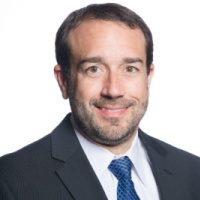
Matt Kuper has nearly 20 years of experience in the material handling industry handling a variety of systems projects and technologies including high-speed sortation, pick modules, goods-to-person, and pallet handling systems. He joined Bastian Solutions in 2013 and has since overseen some of the company’s largest and most complex integration projects. Connect with Matt on LinkedIn.
